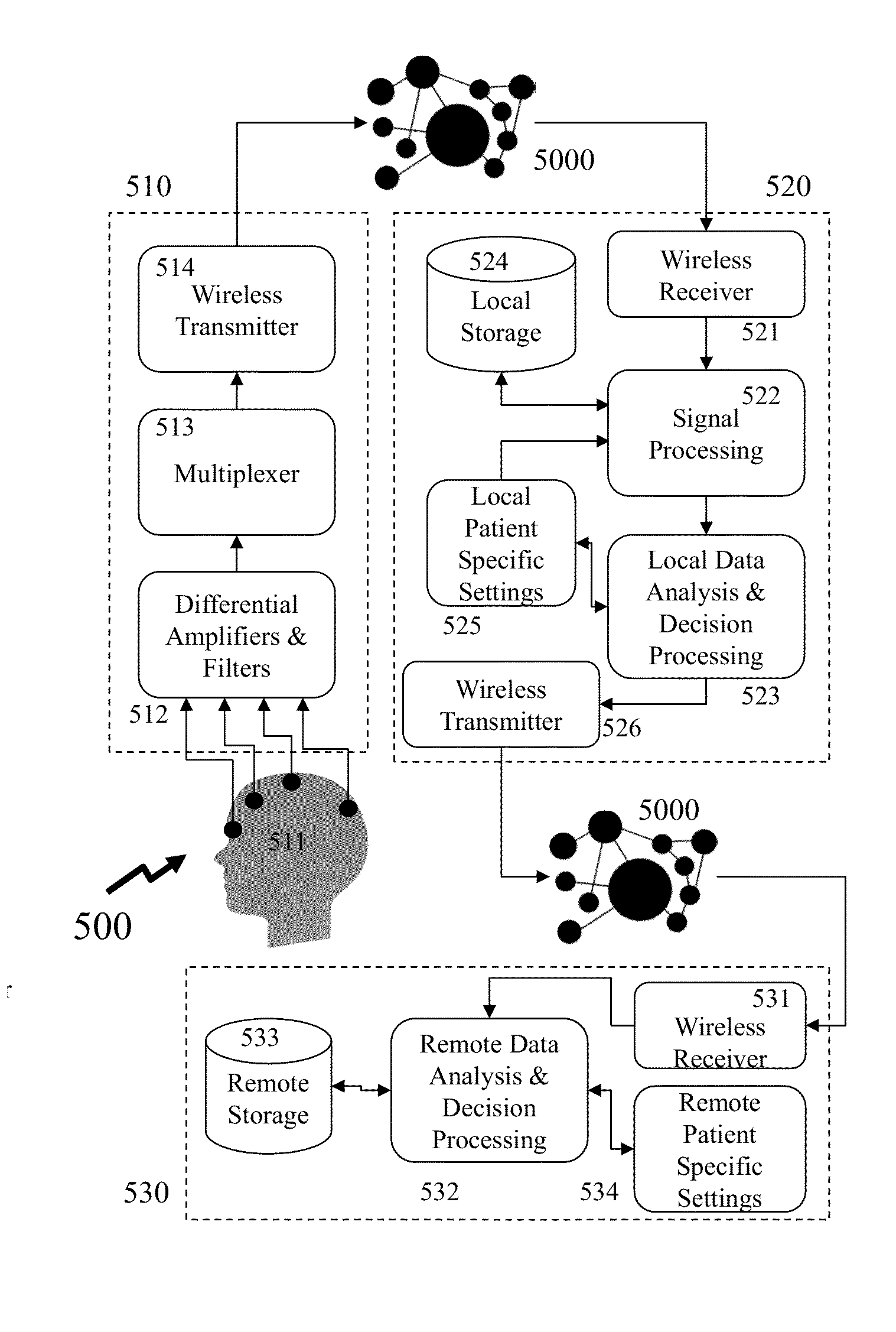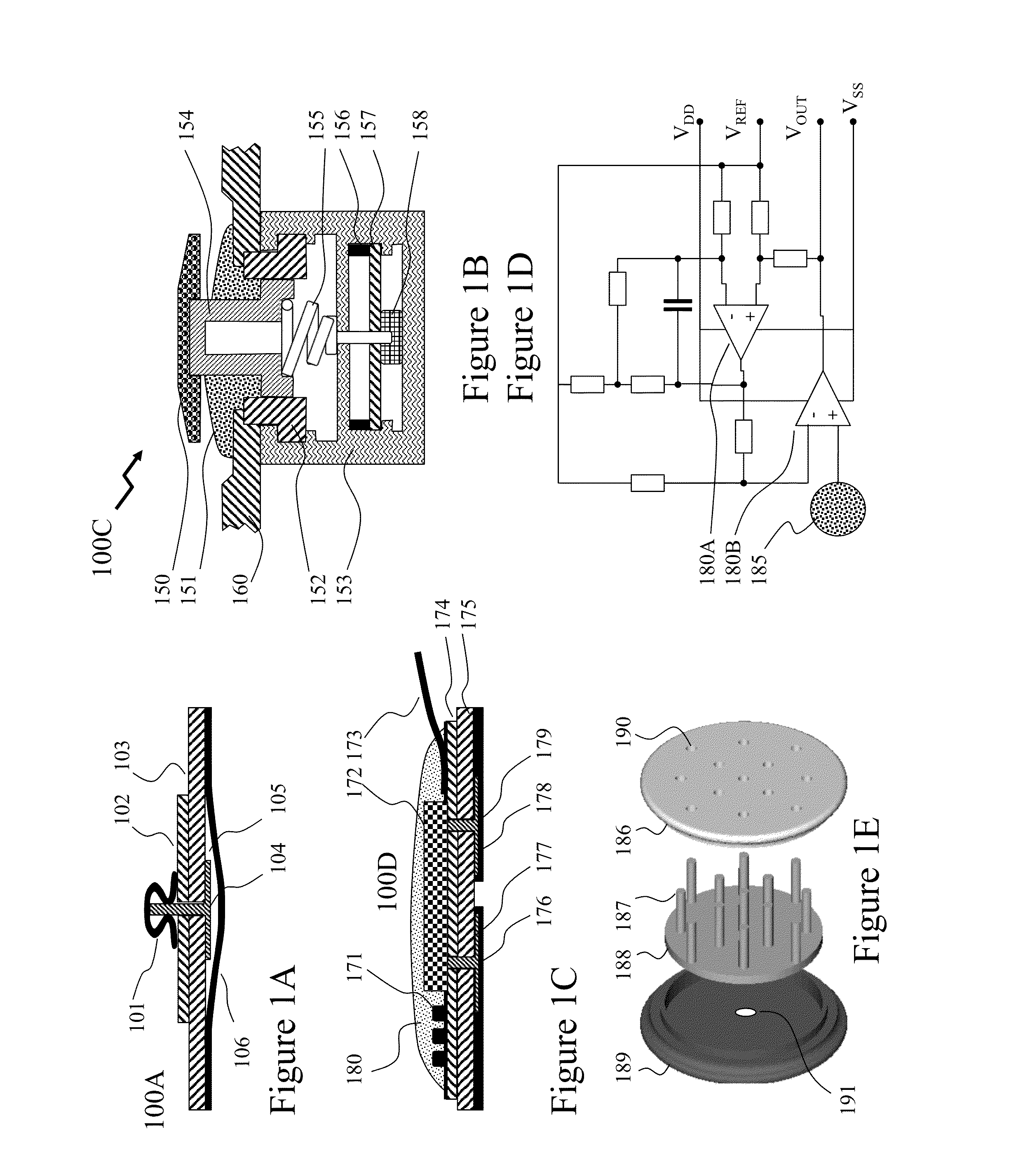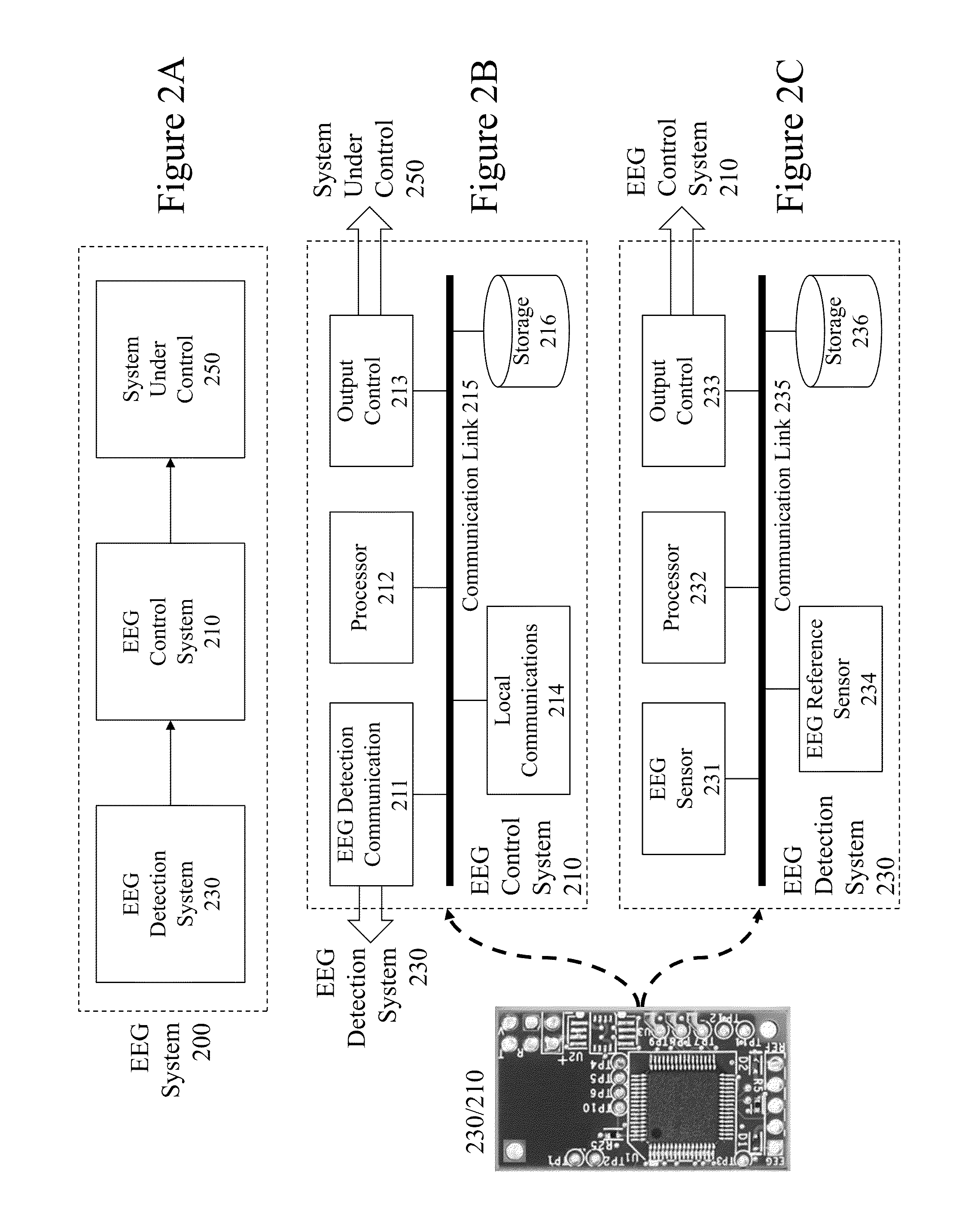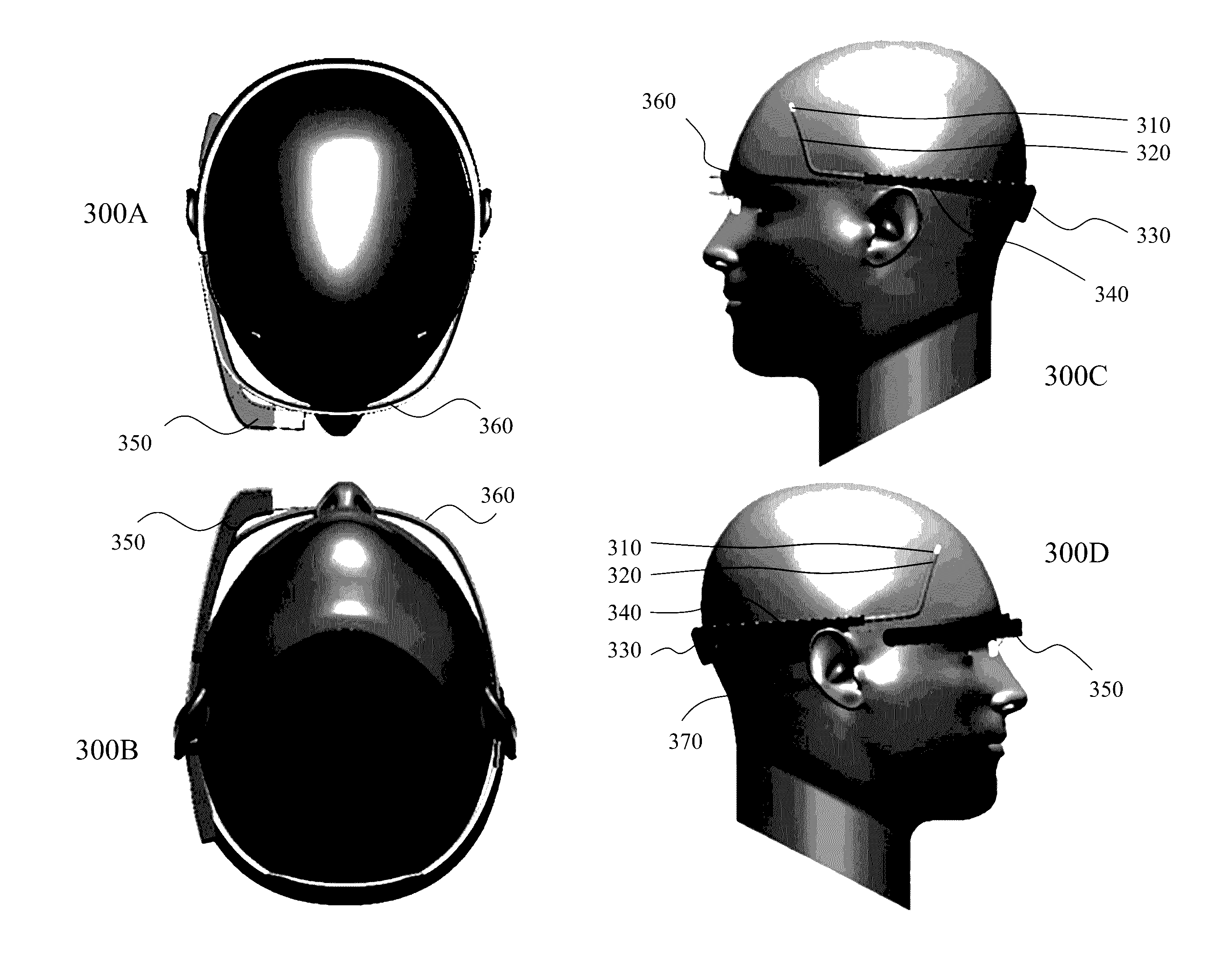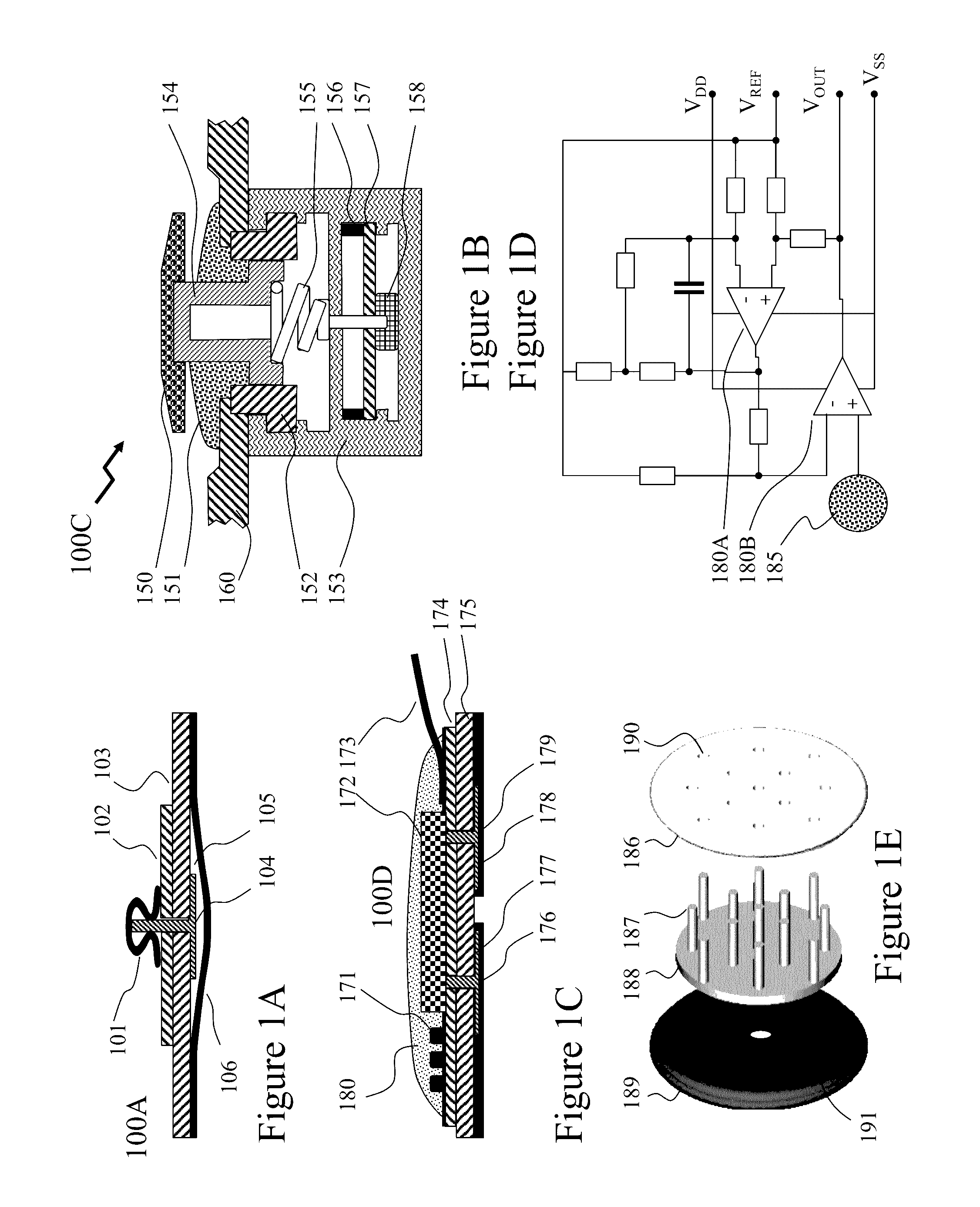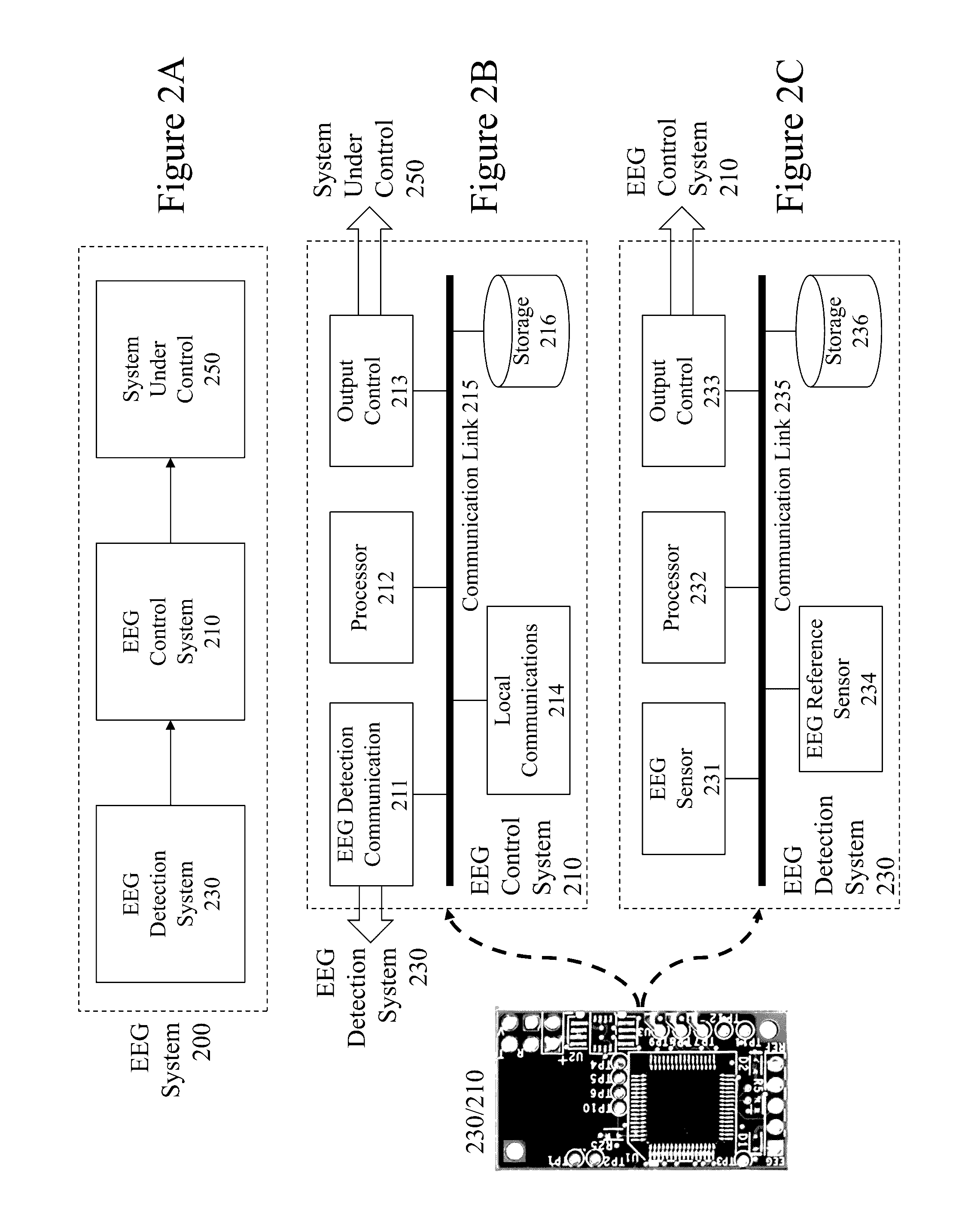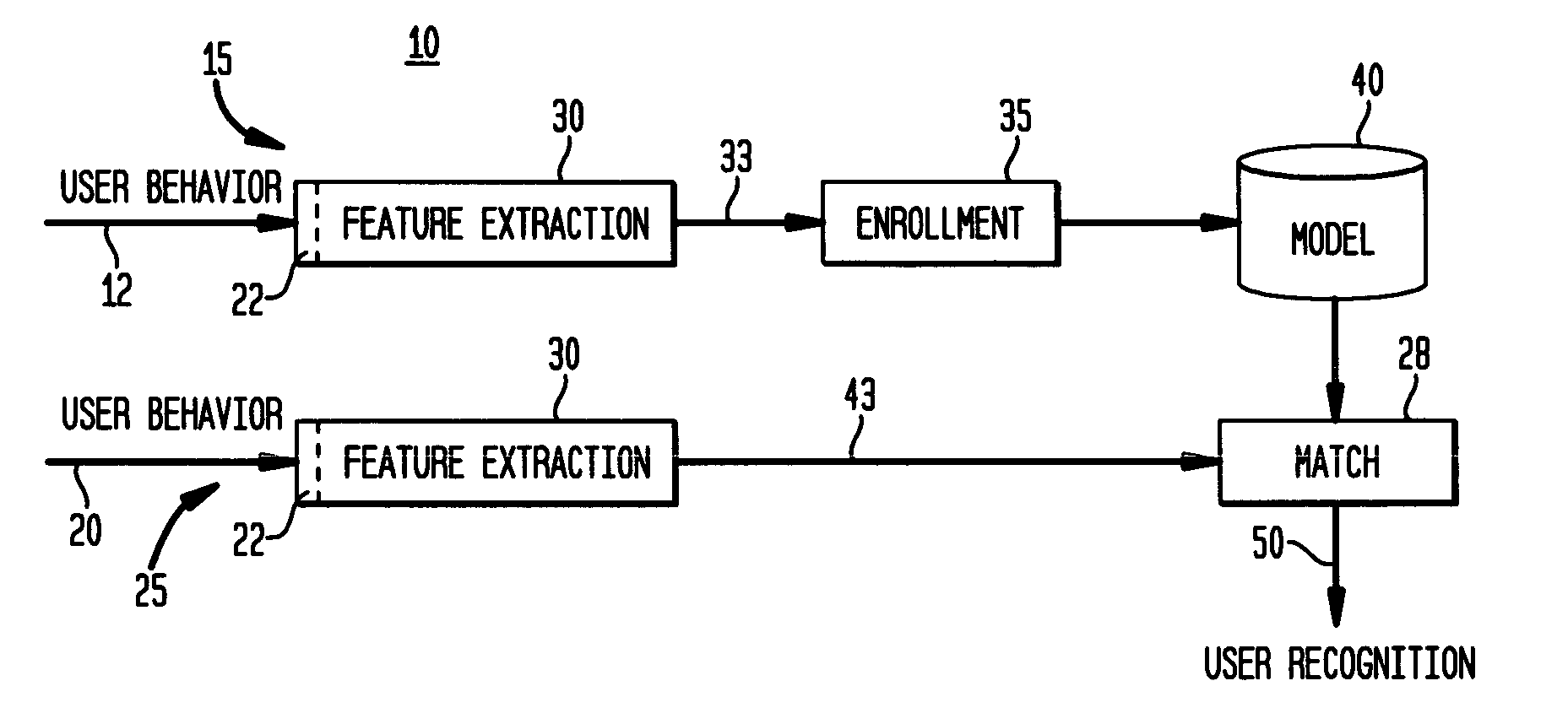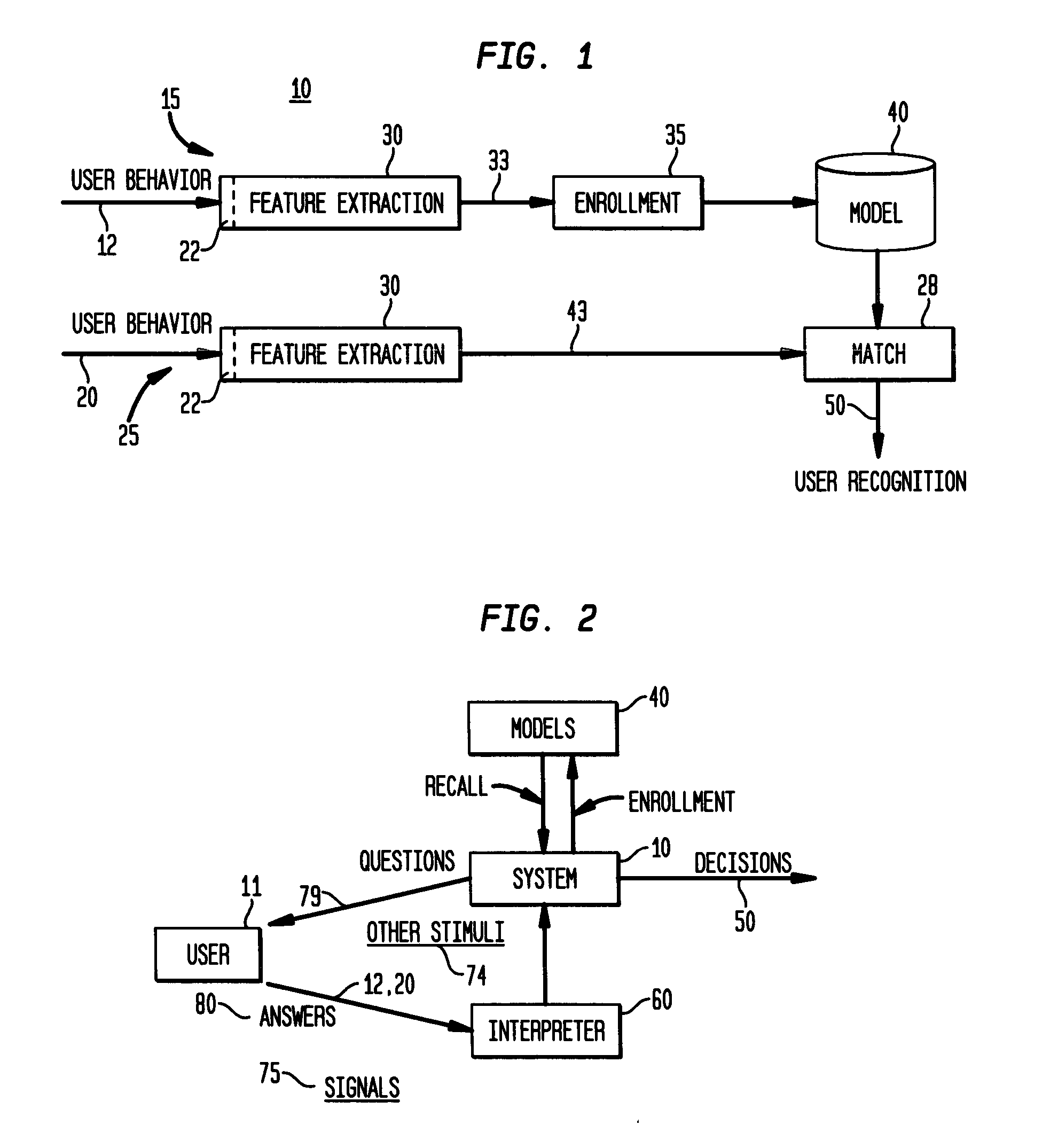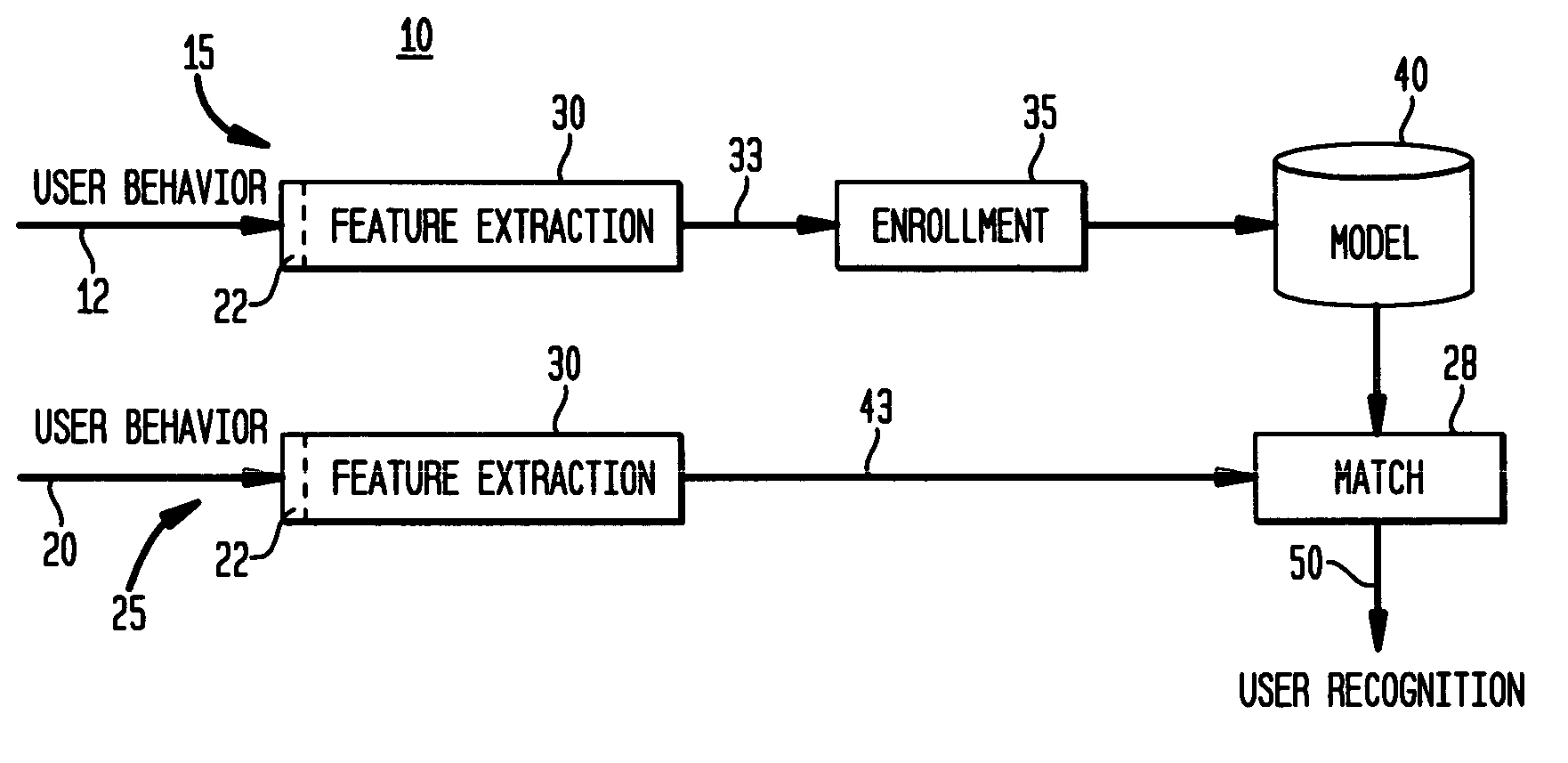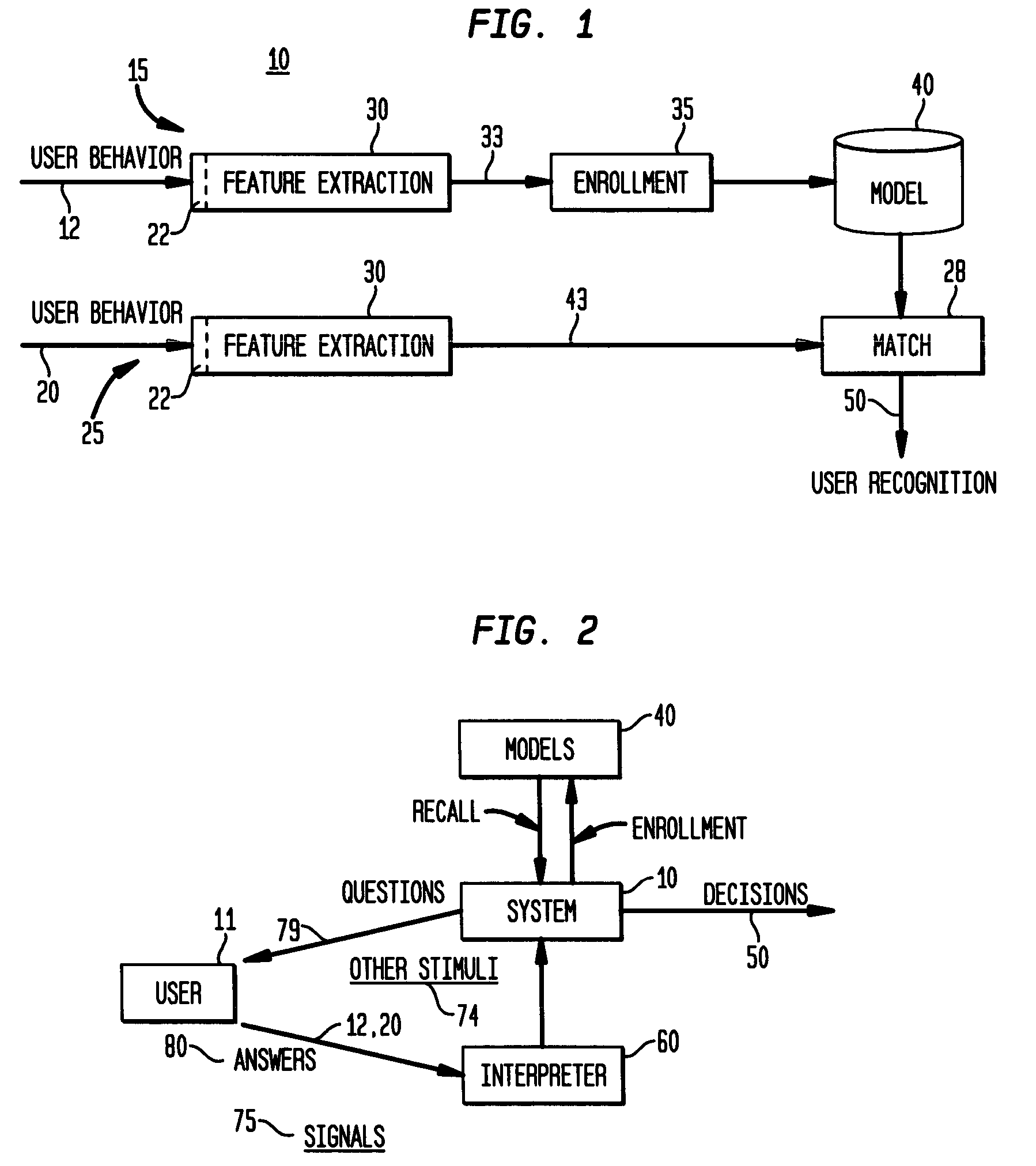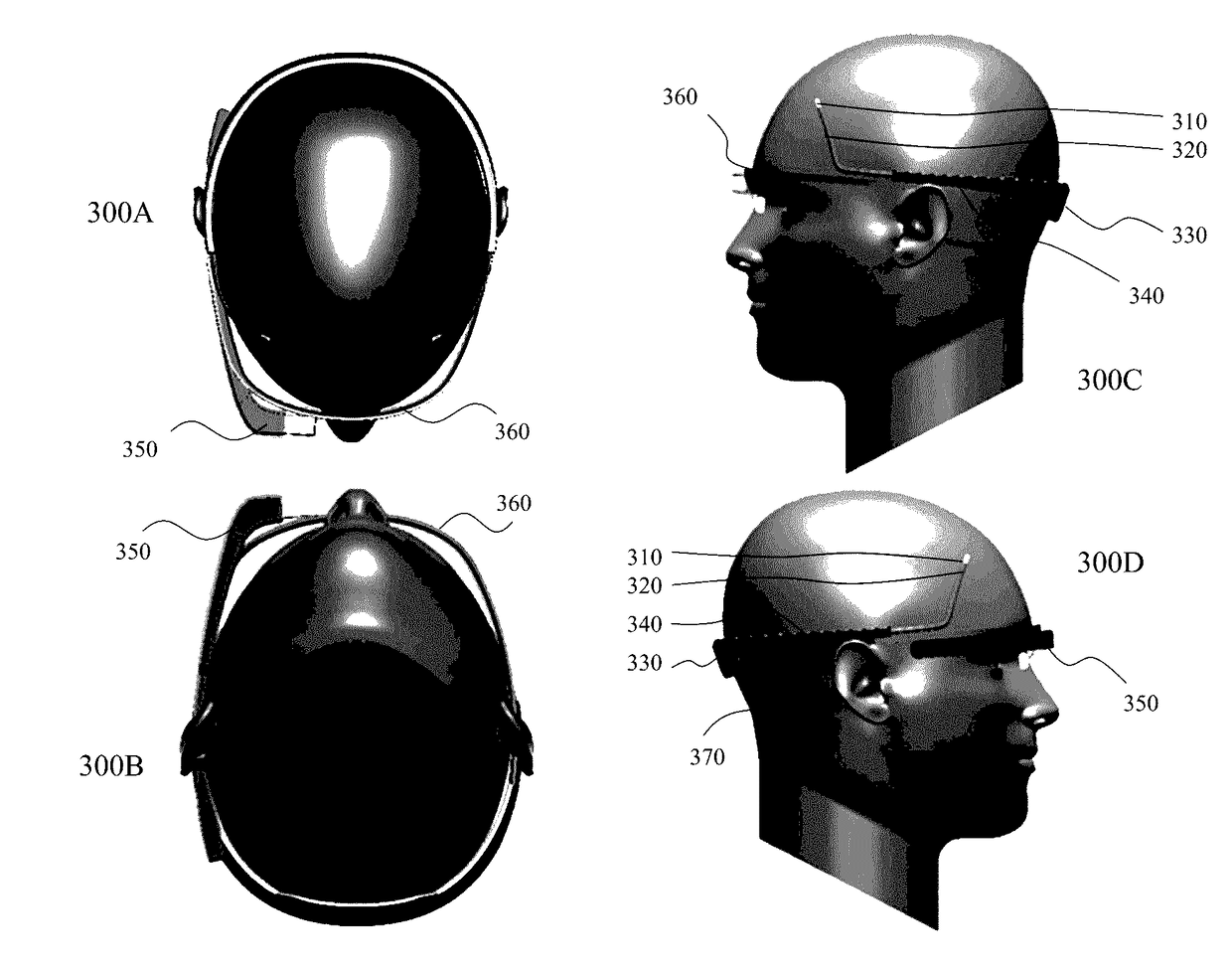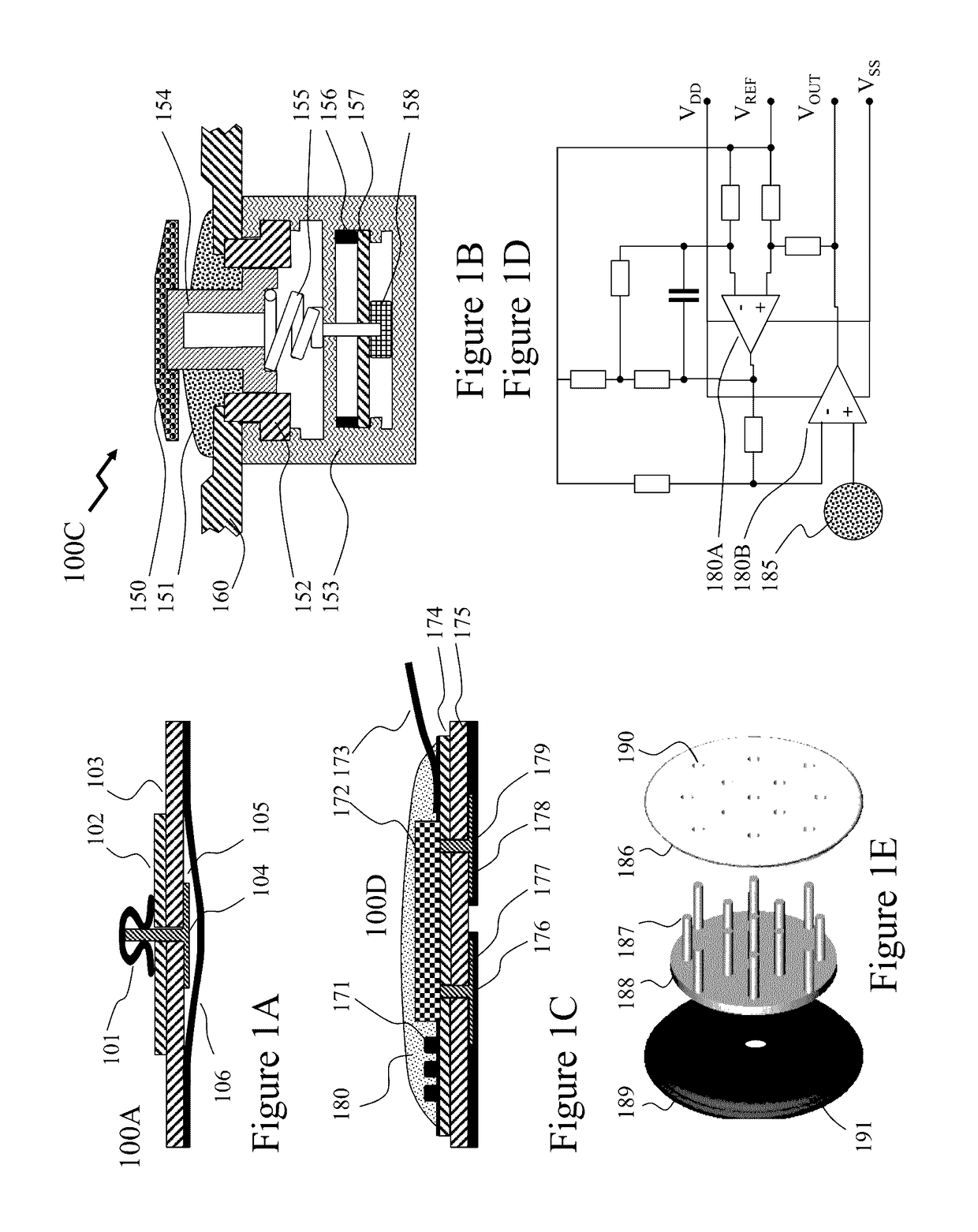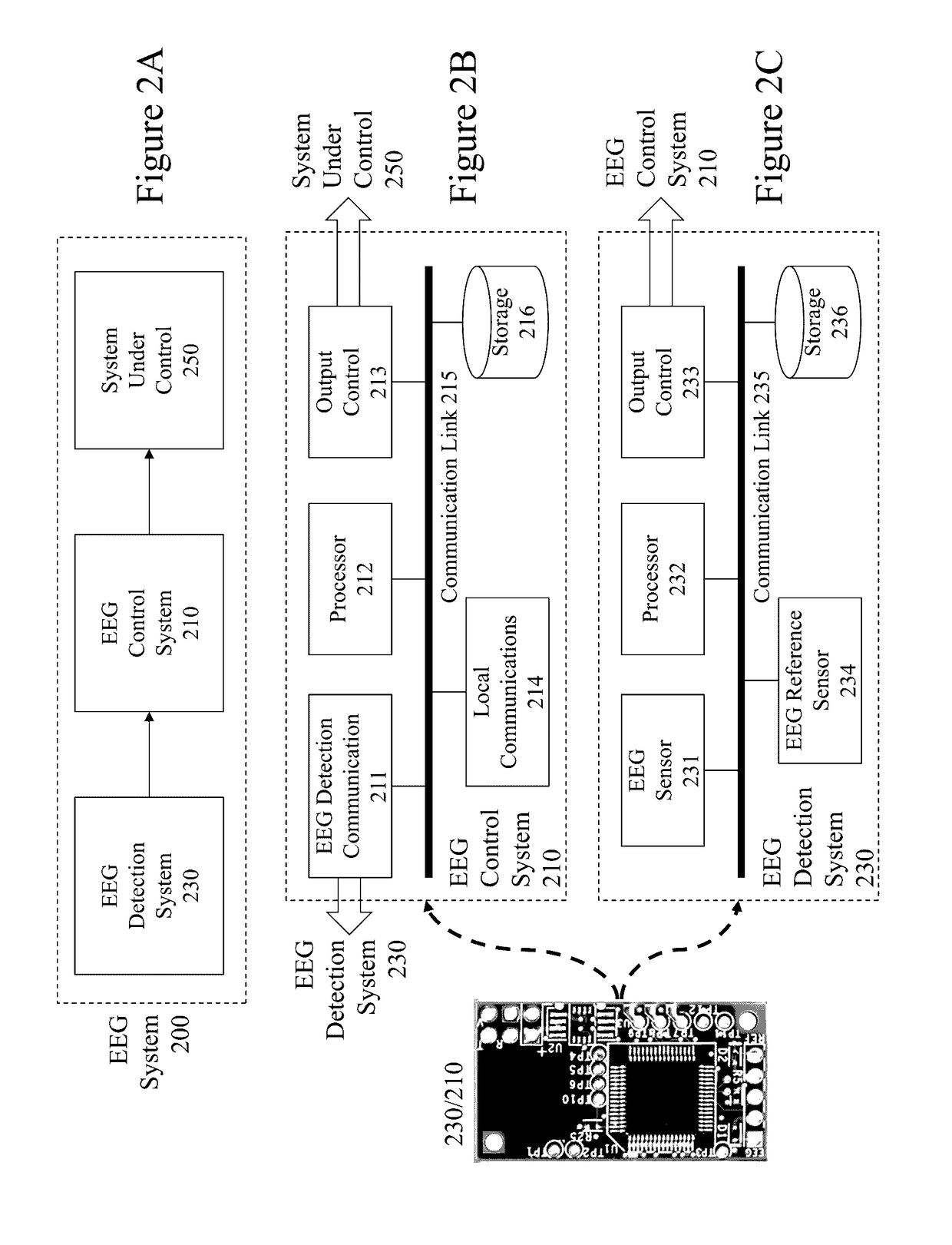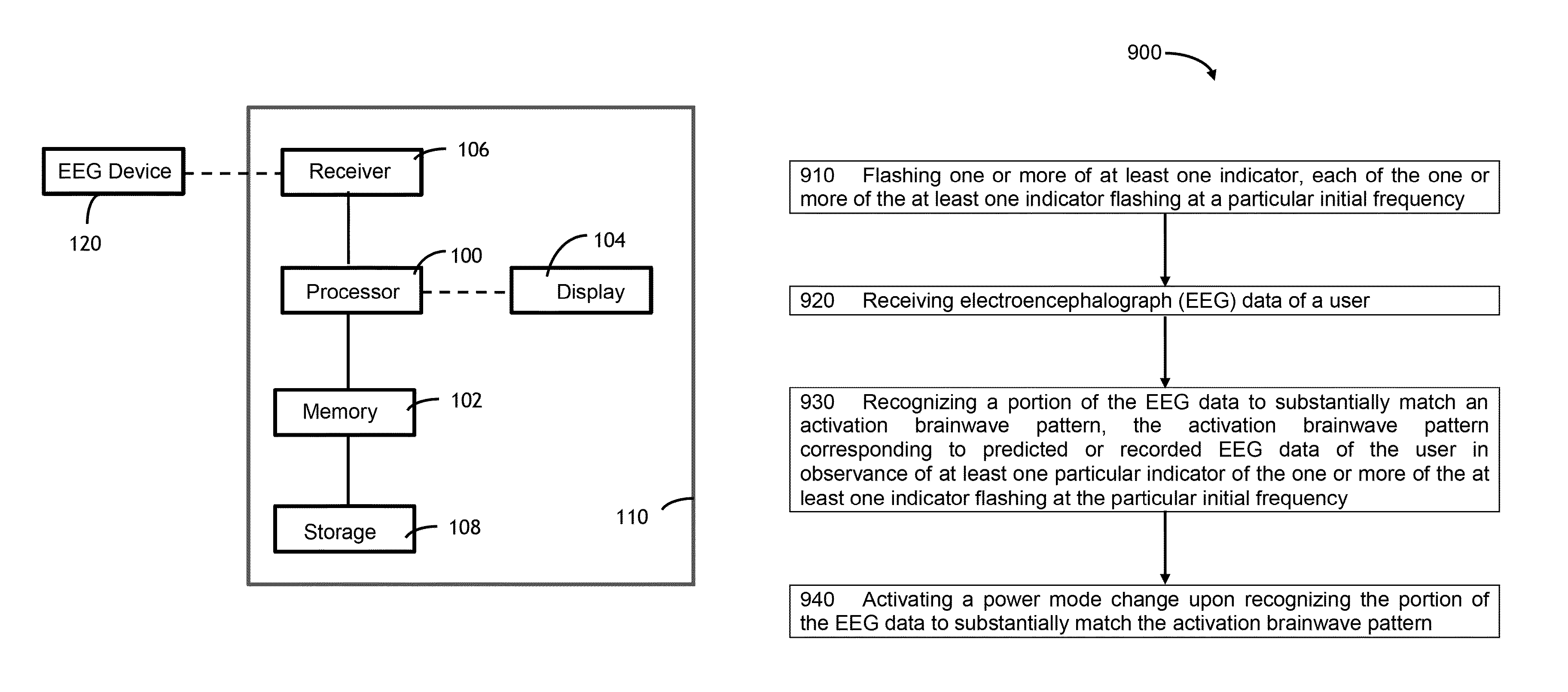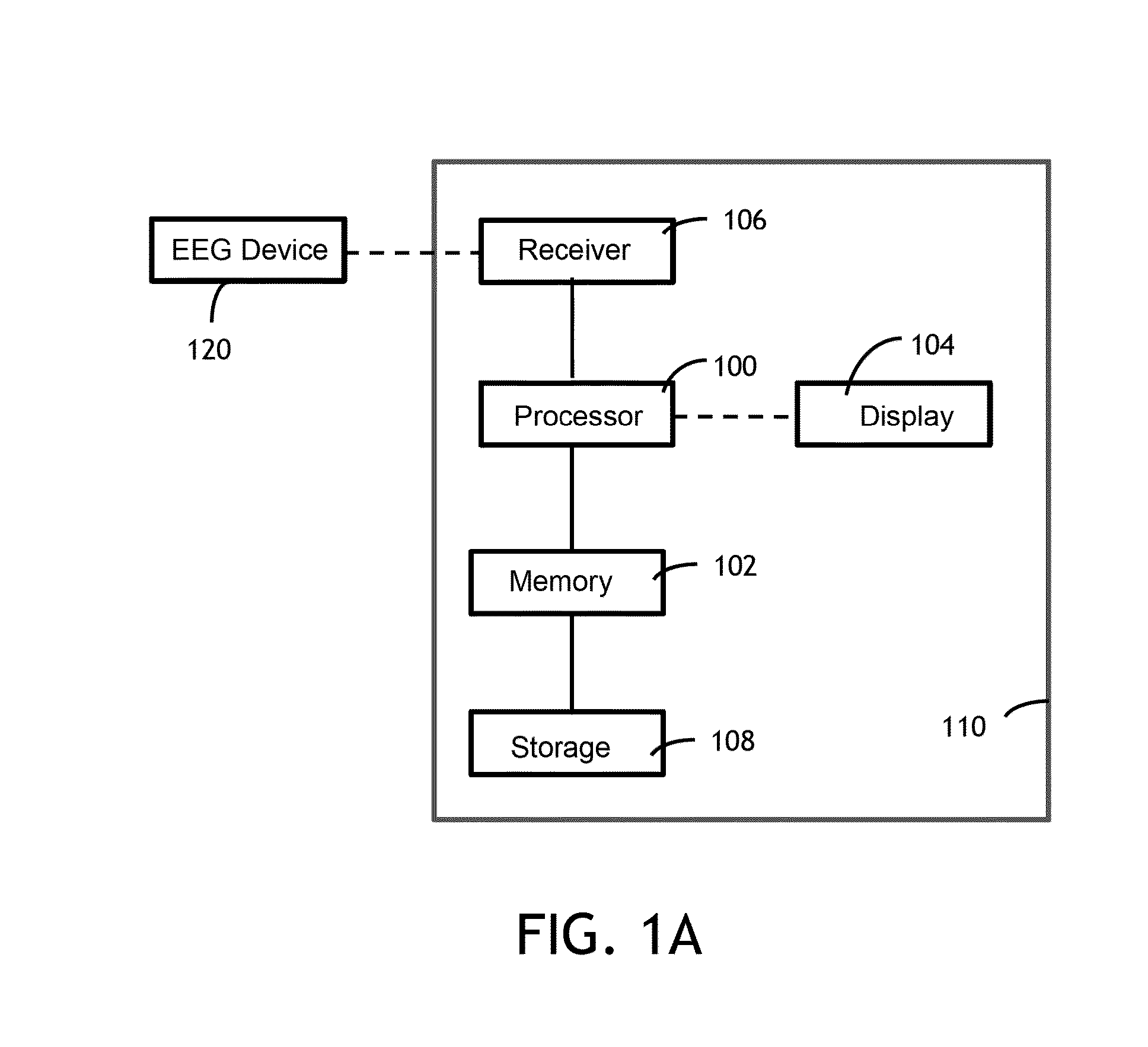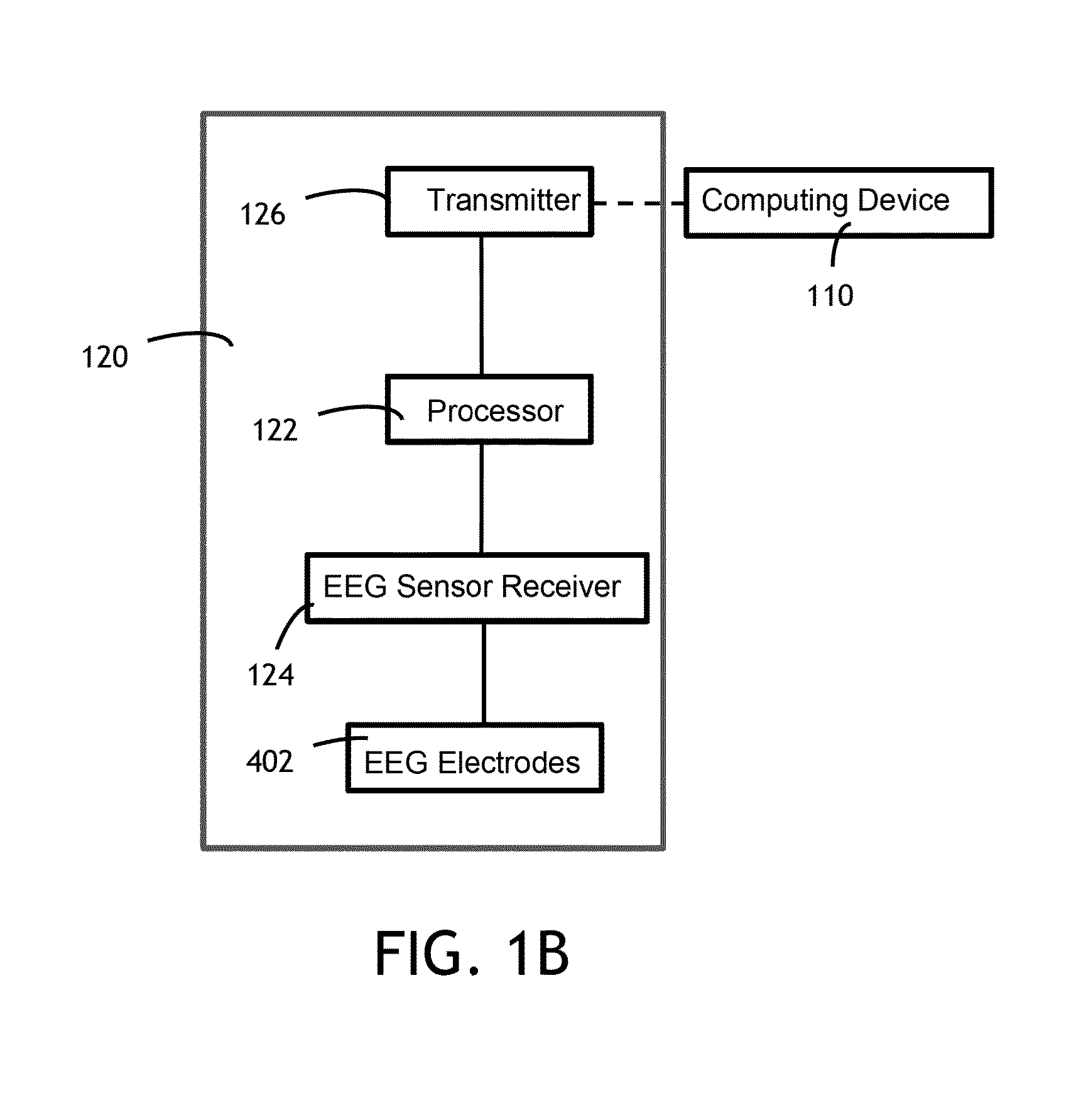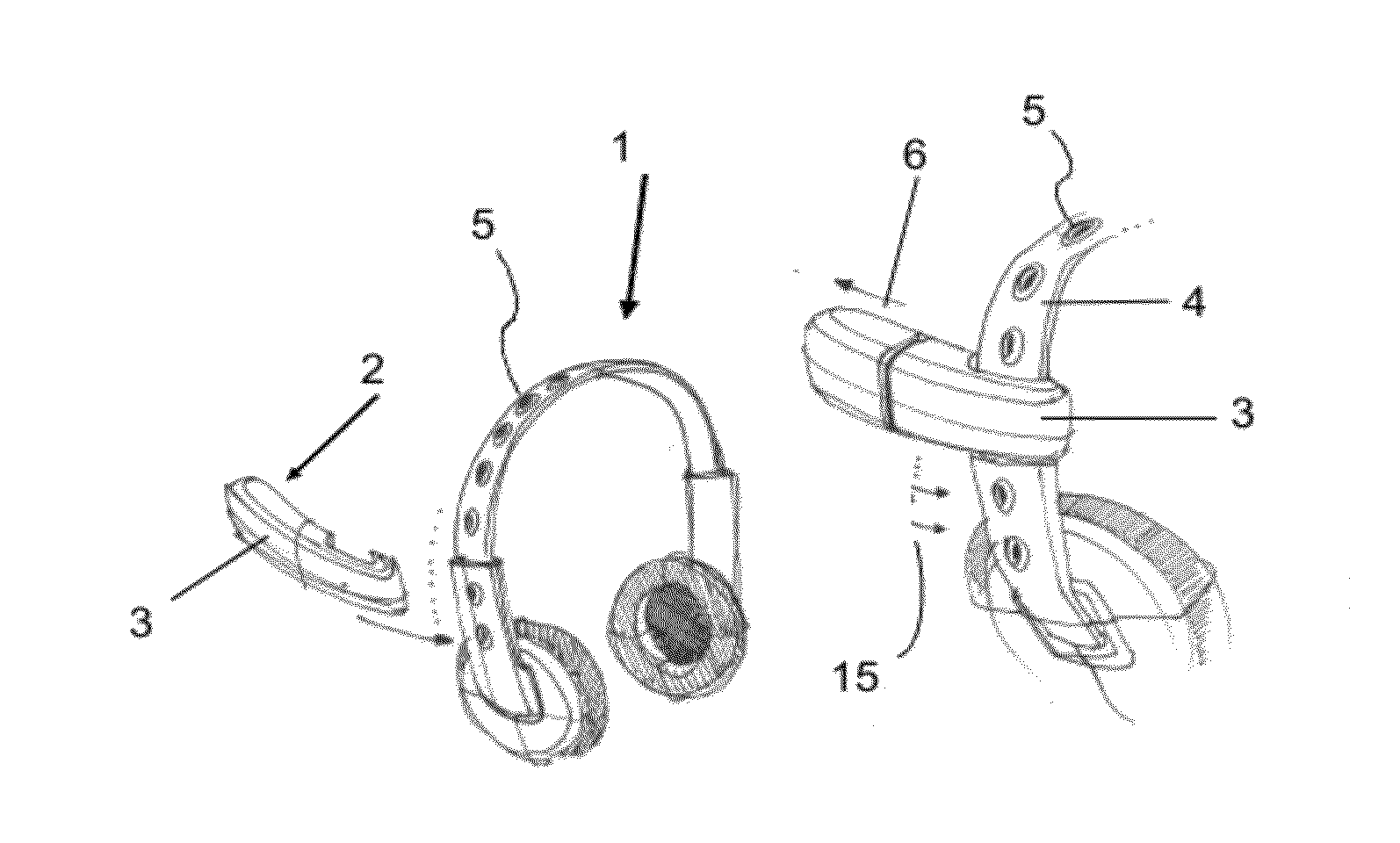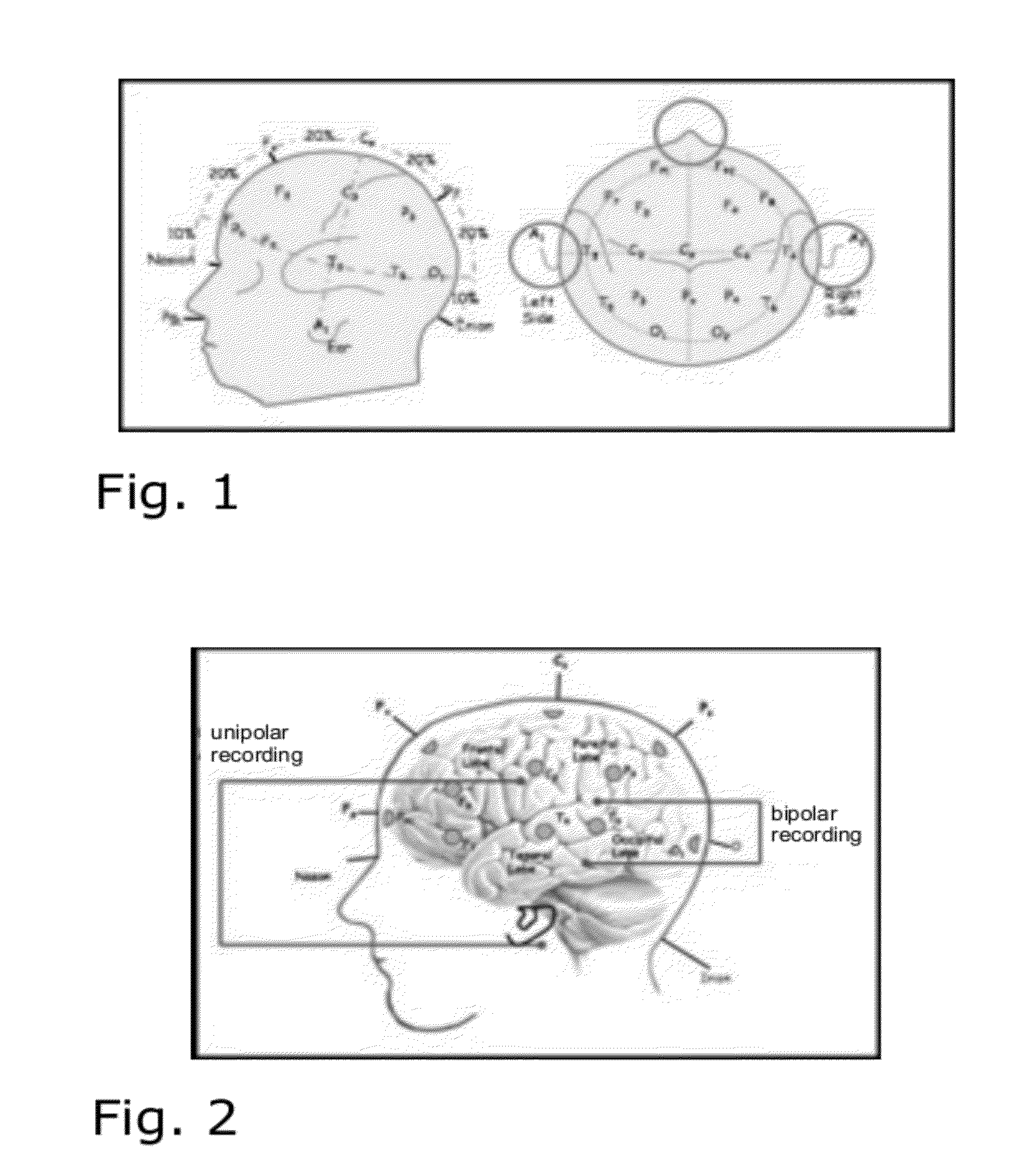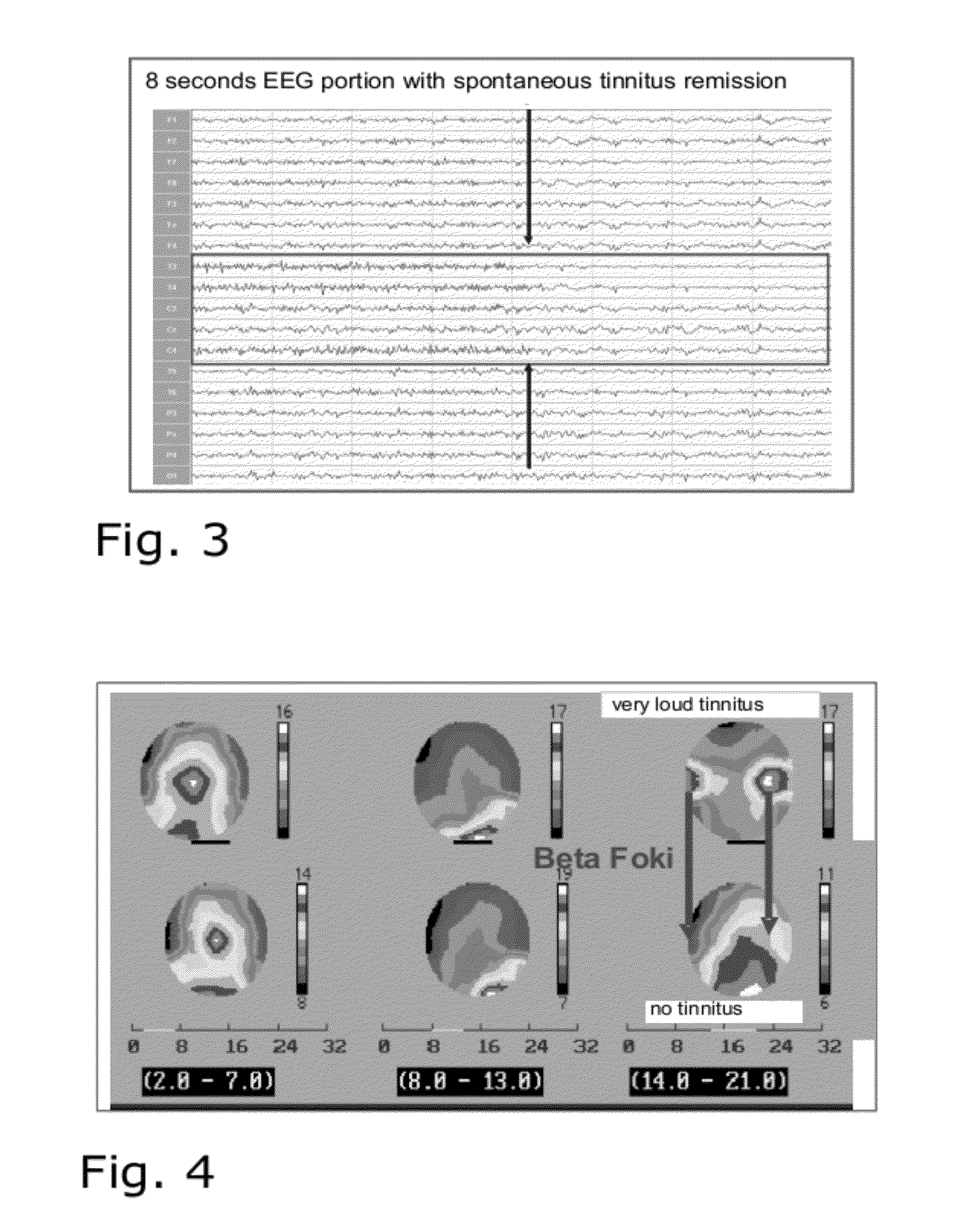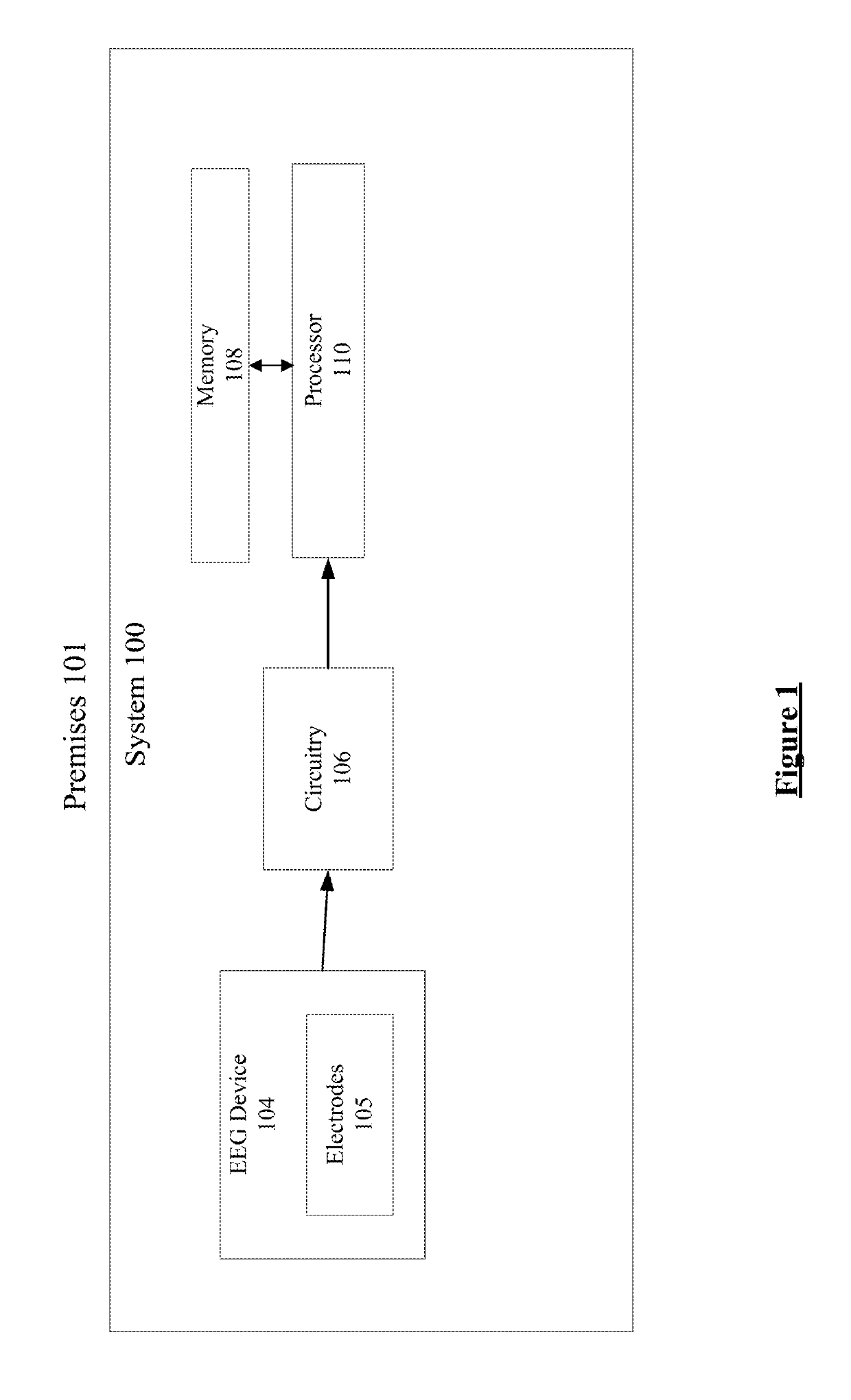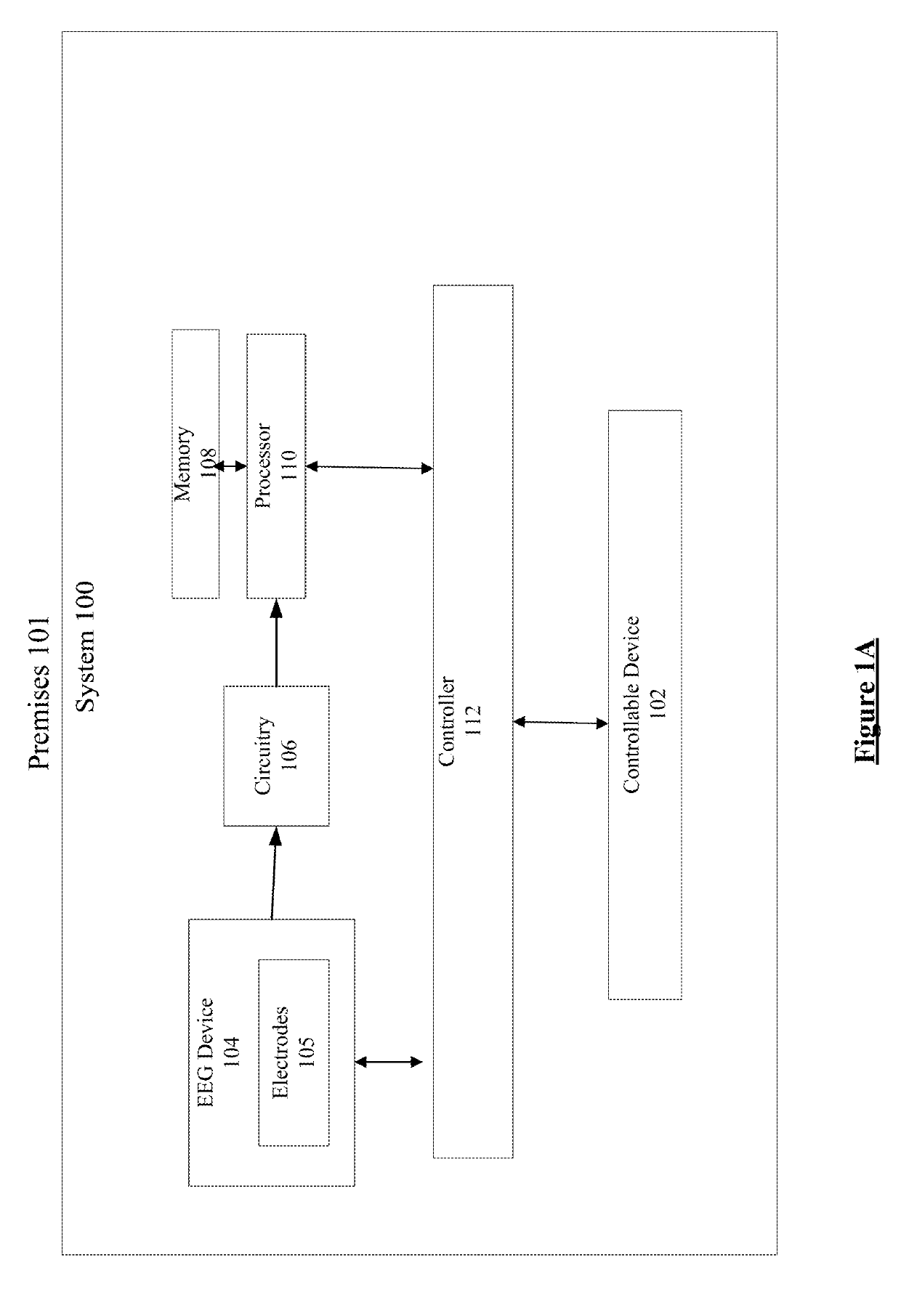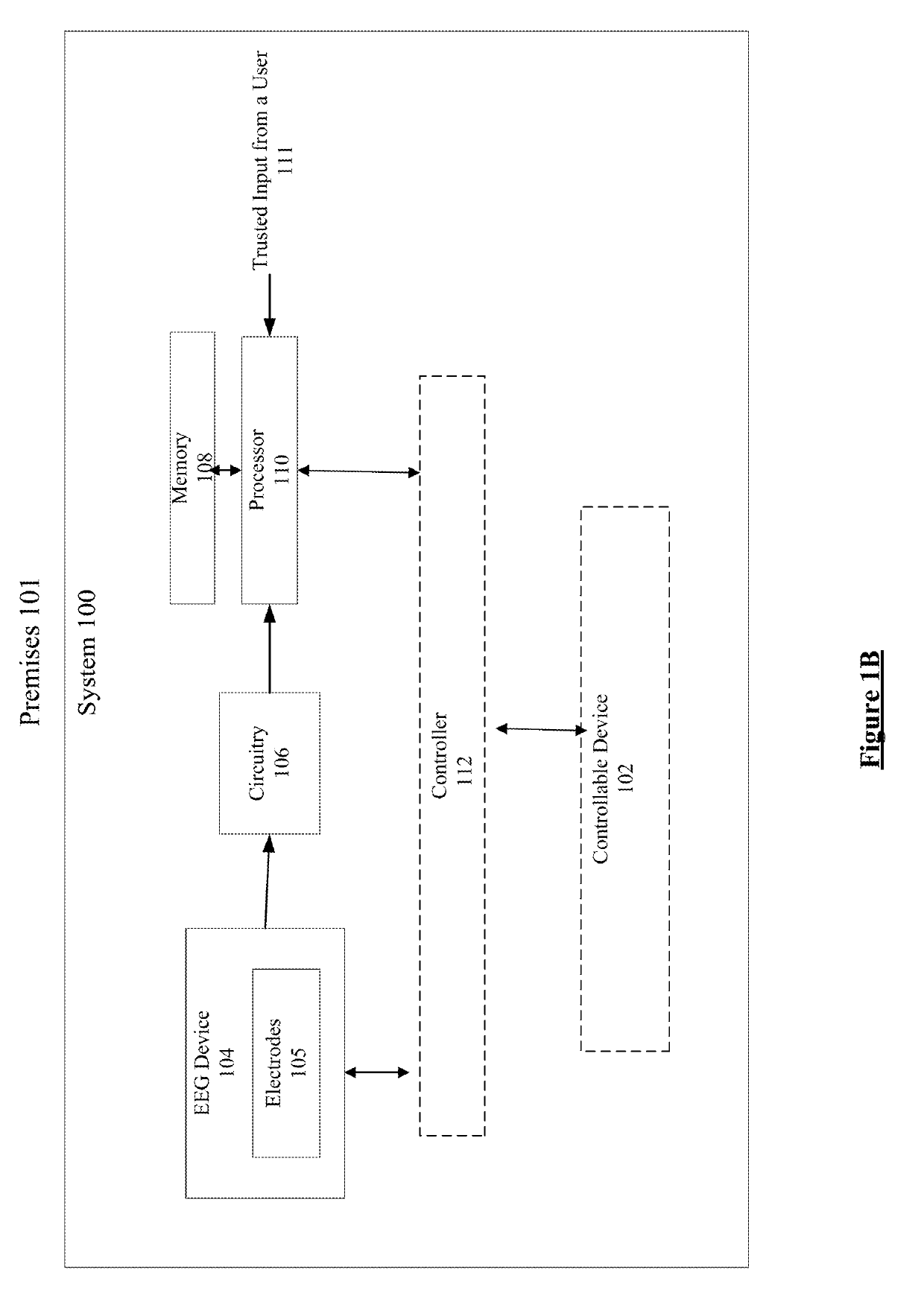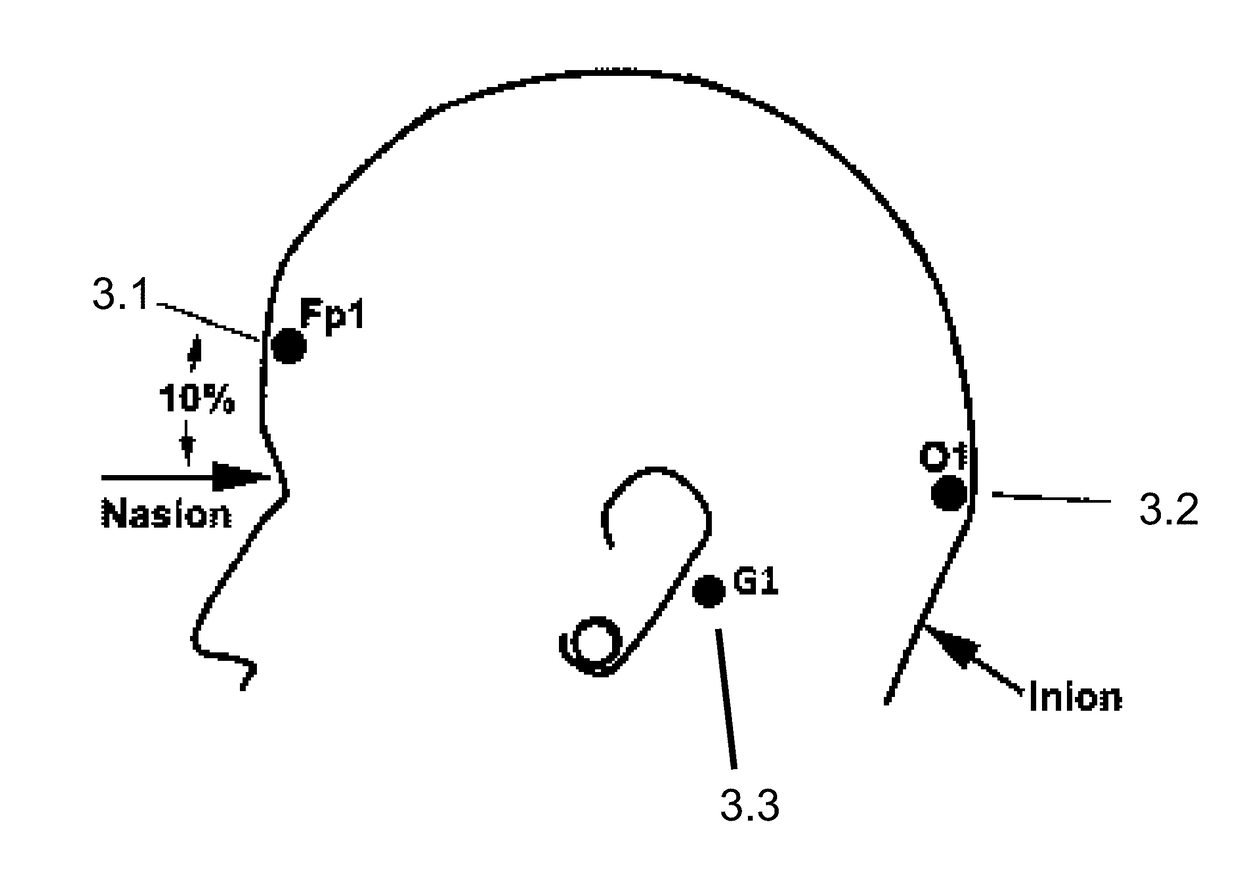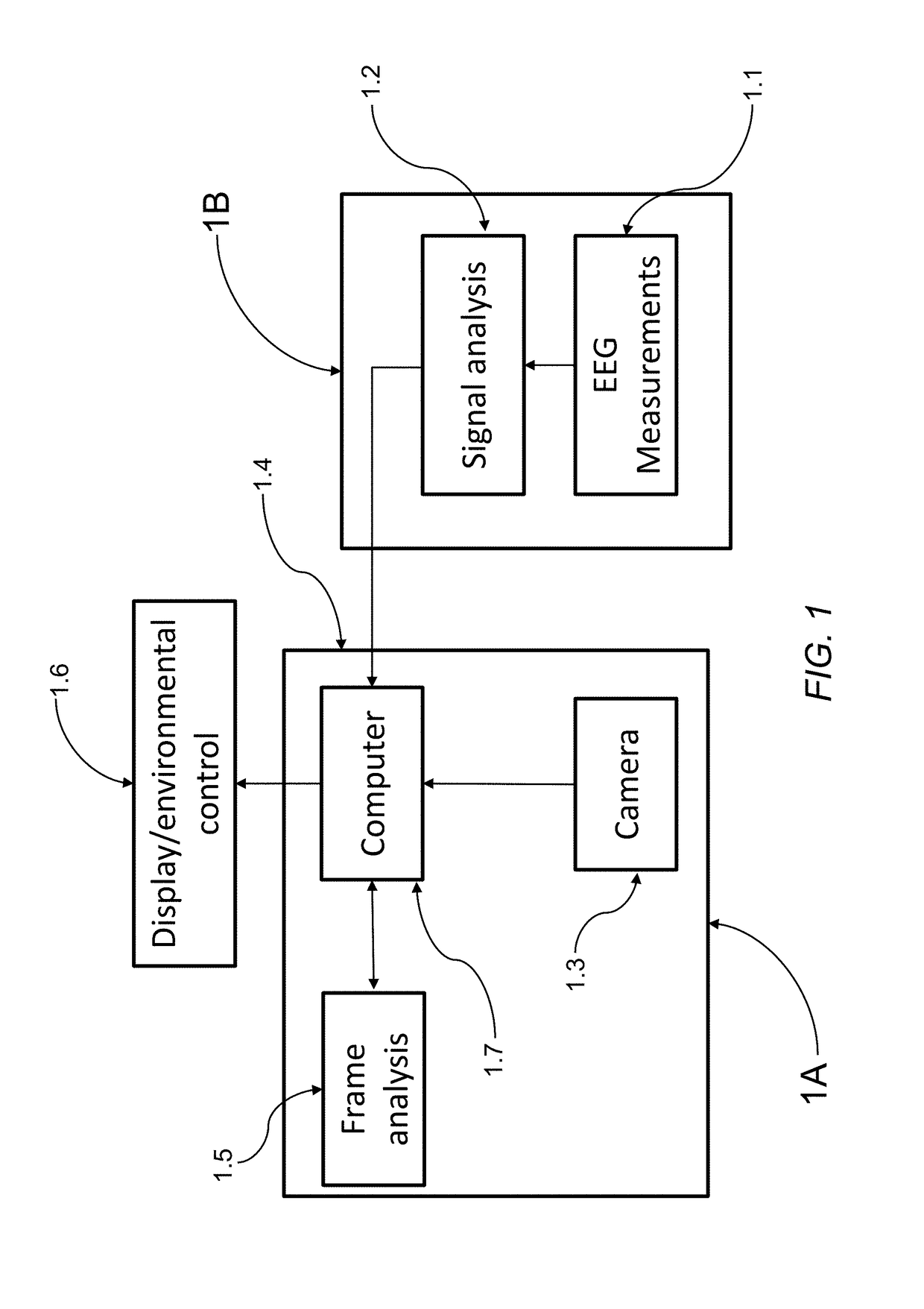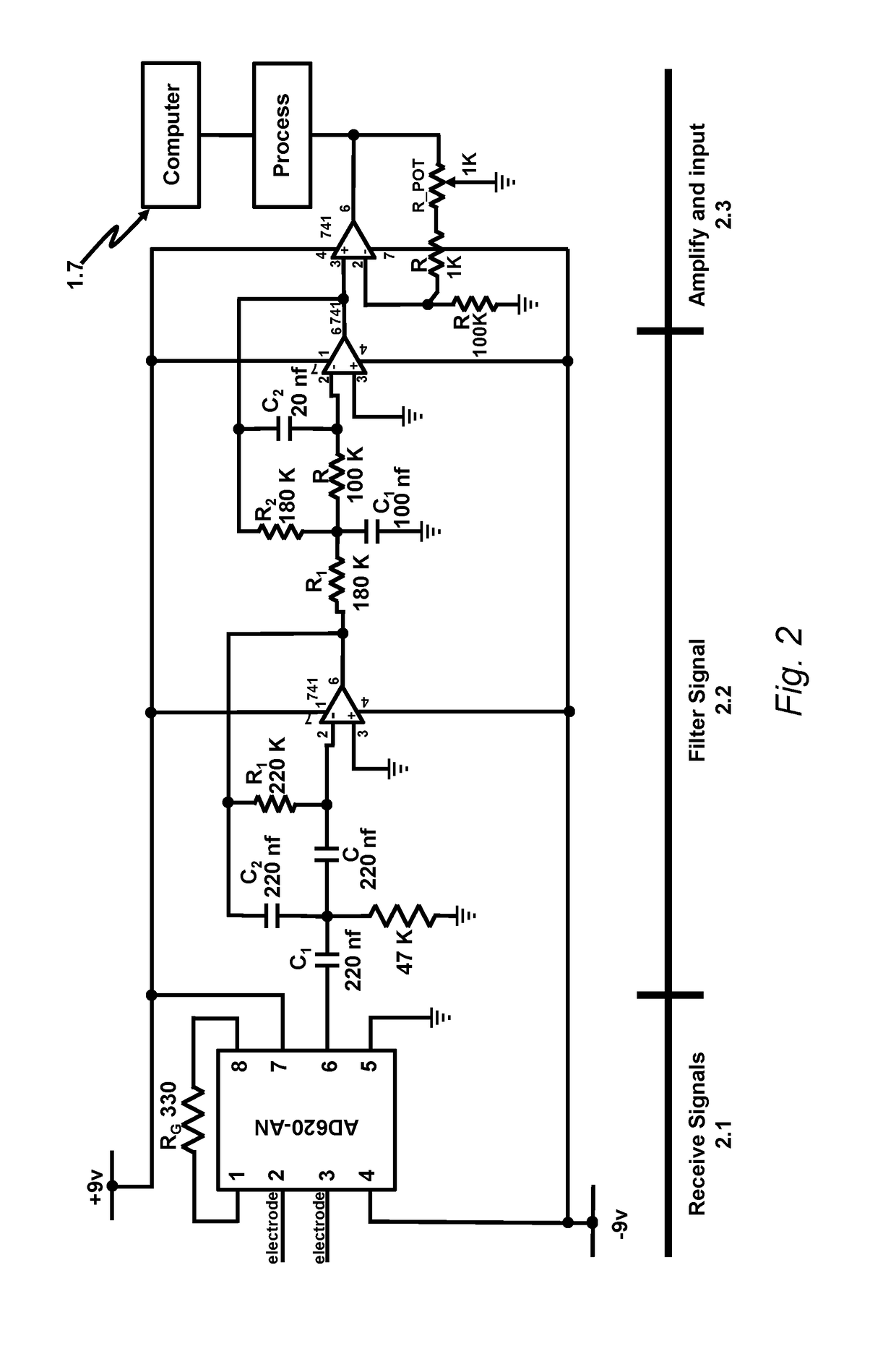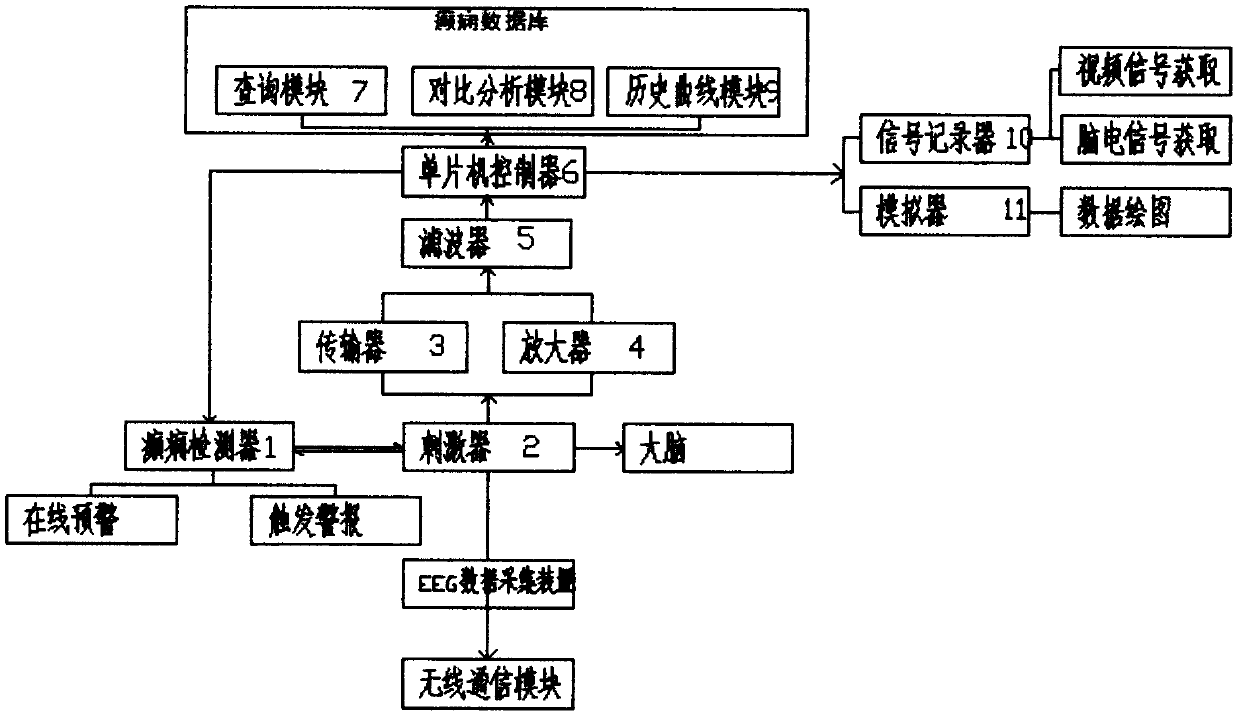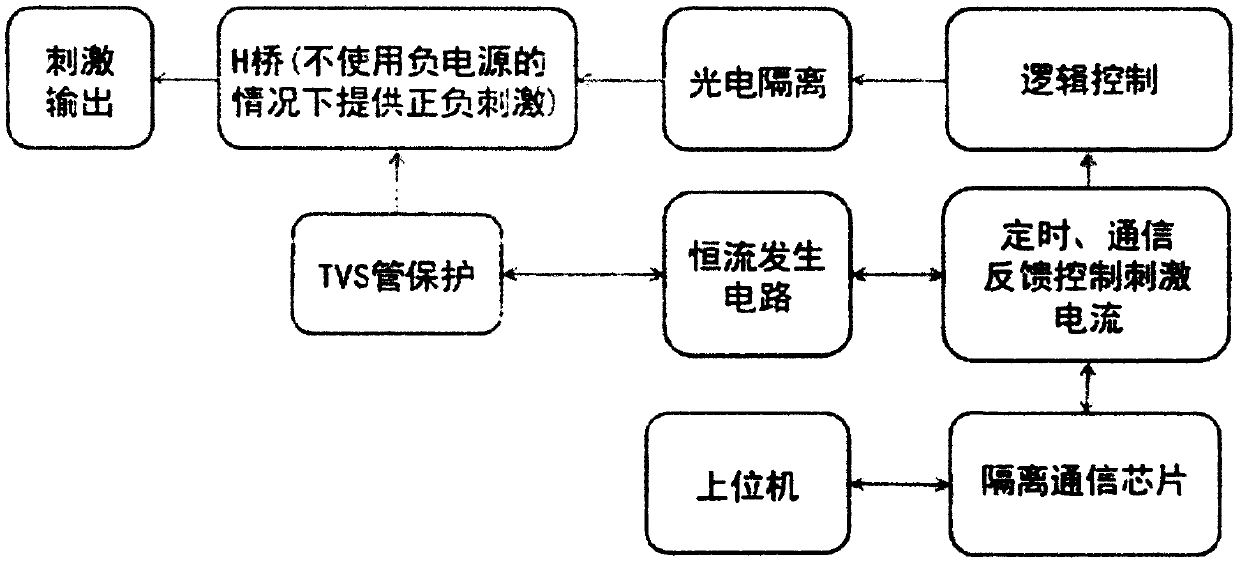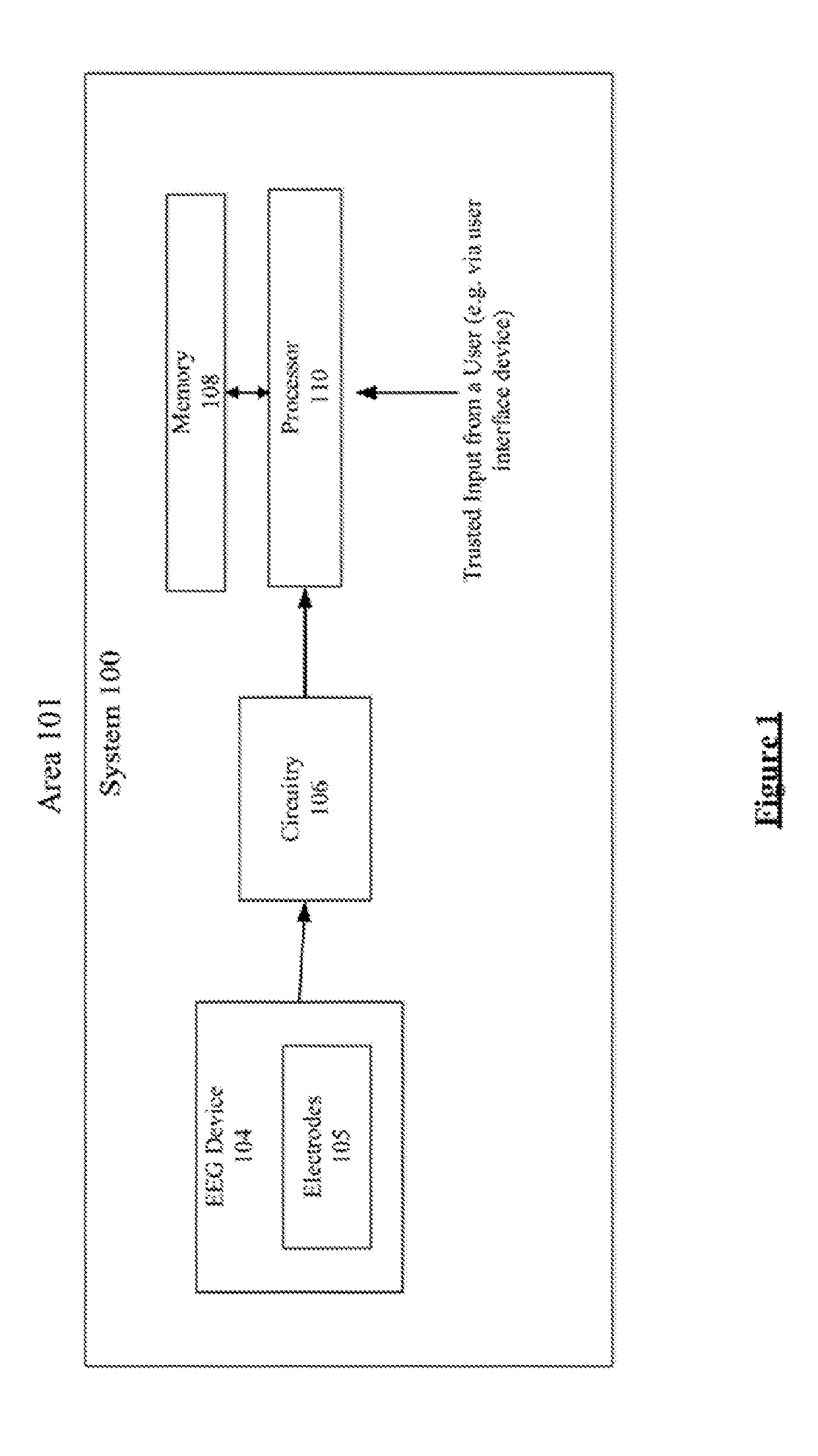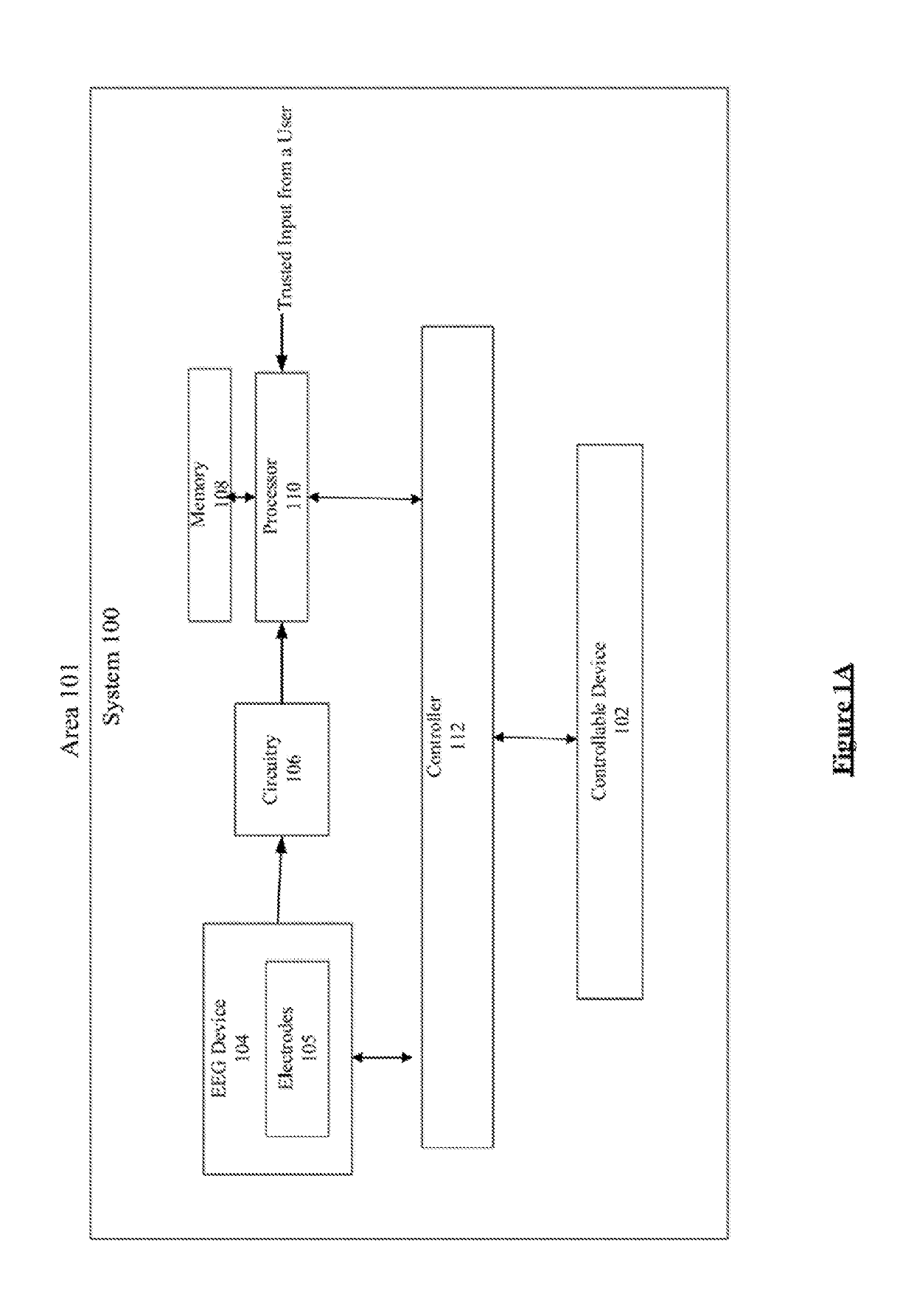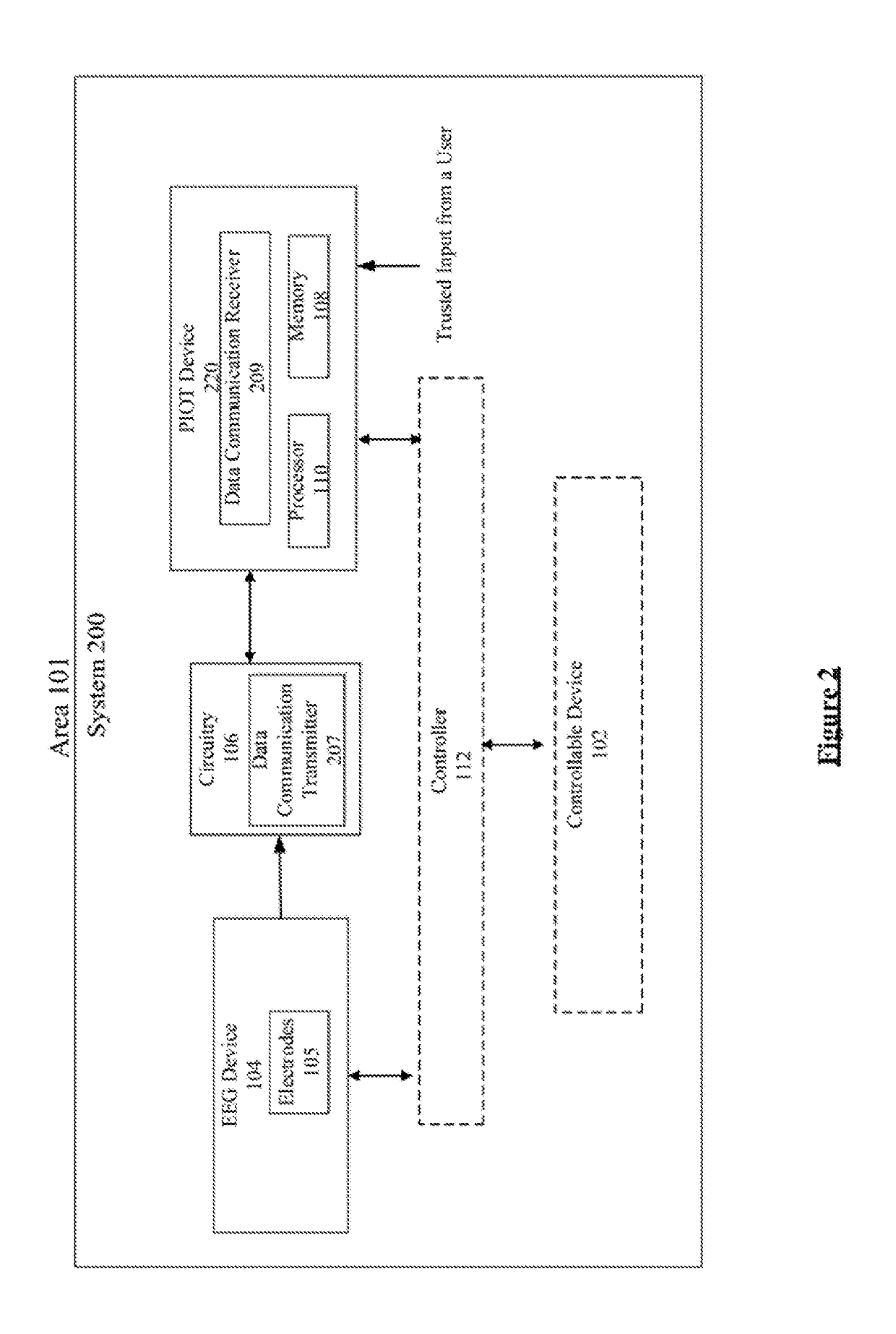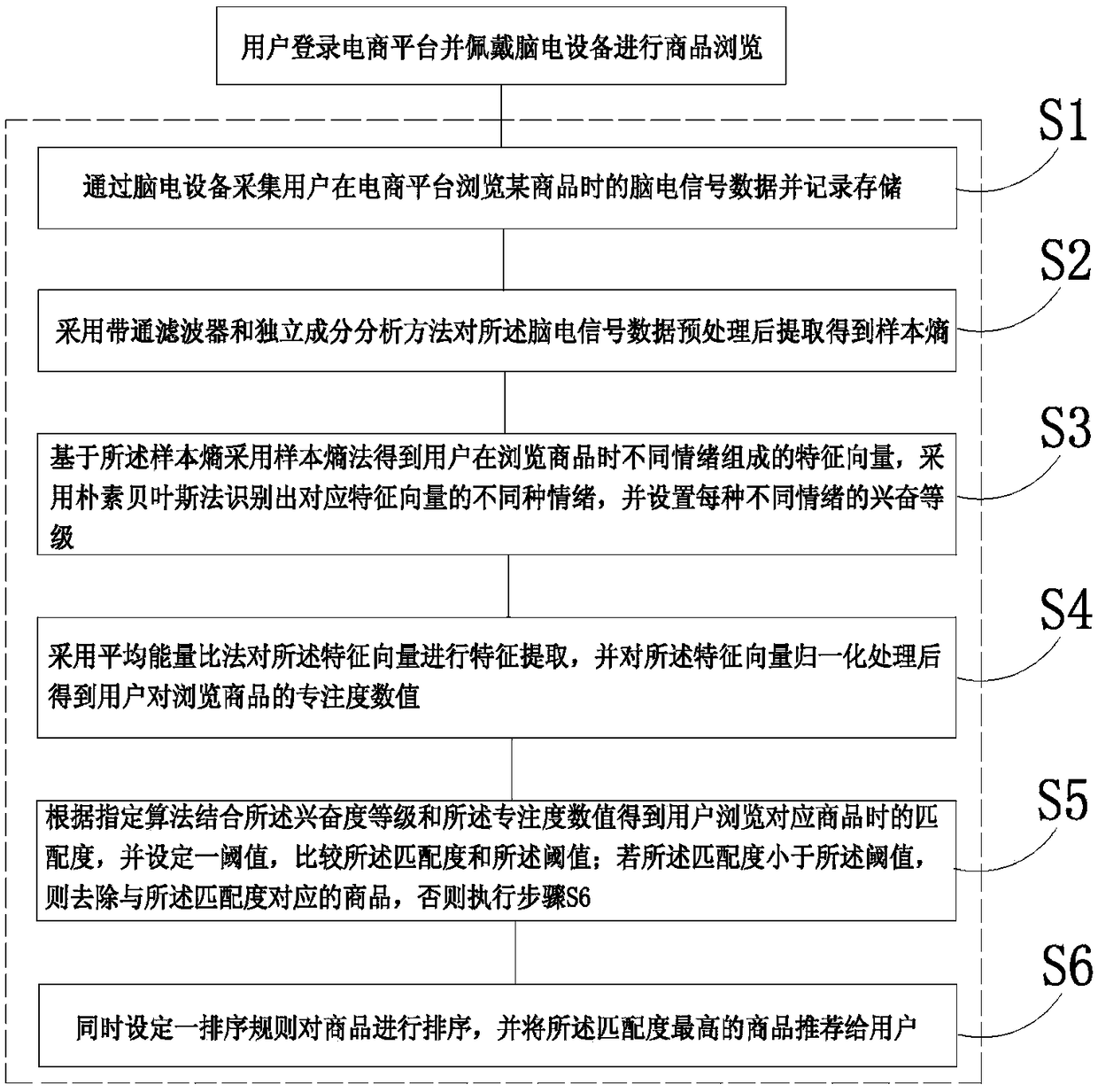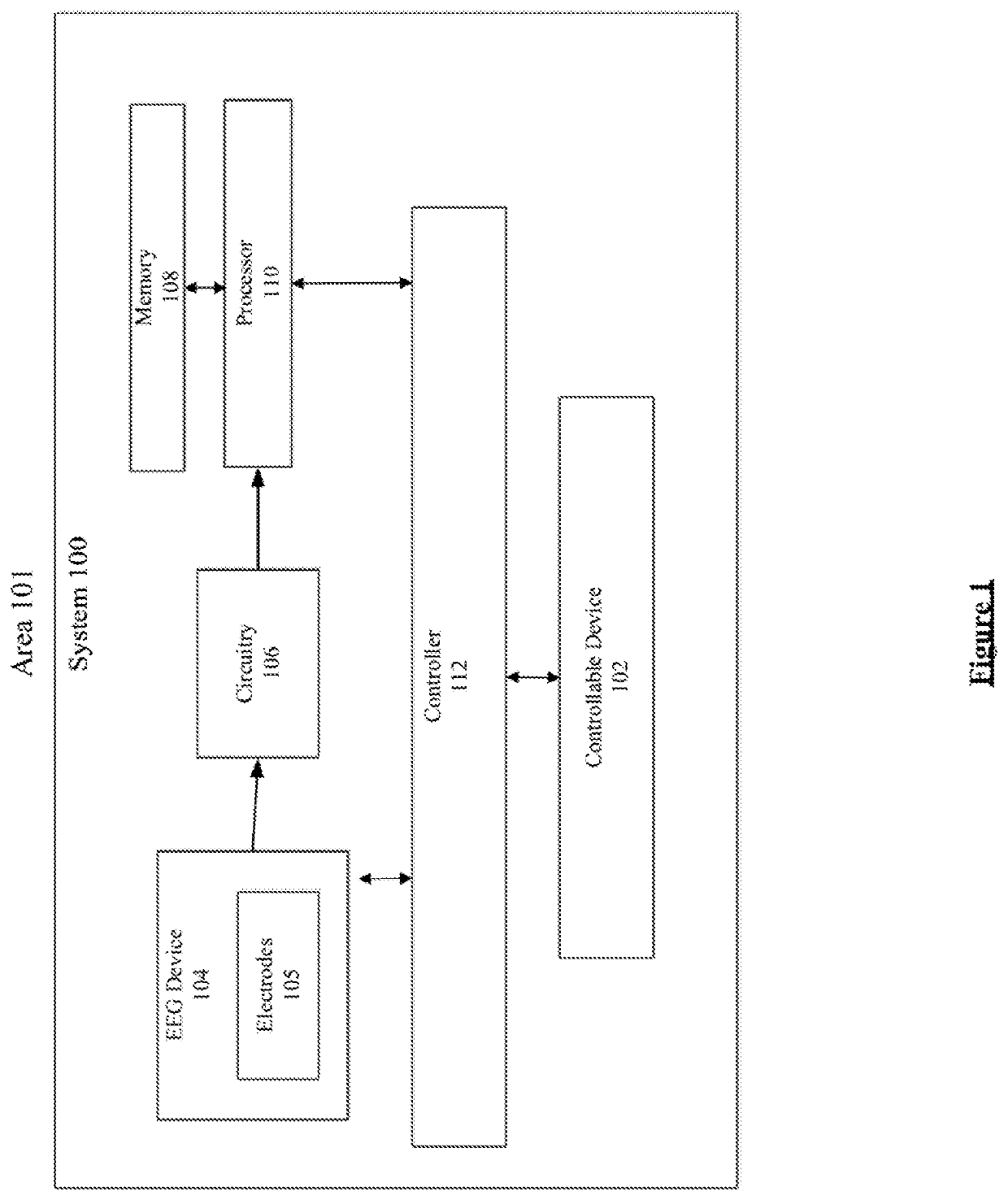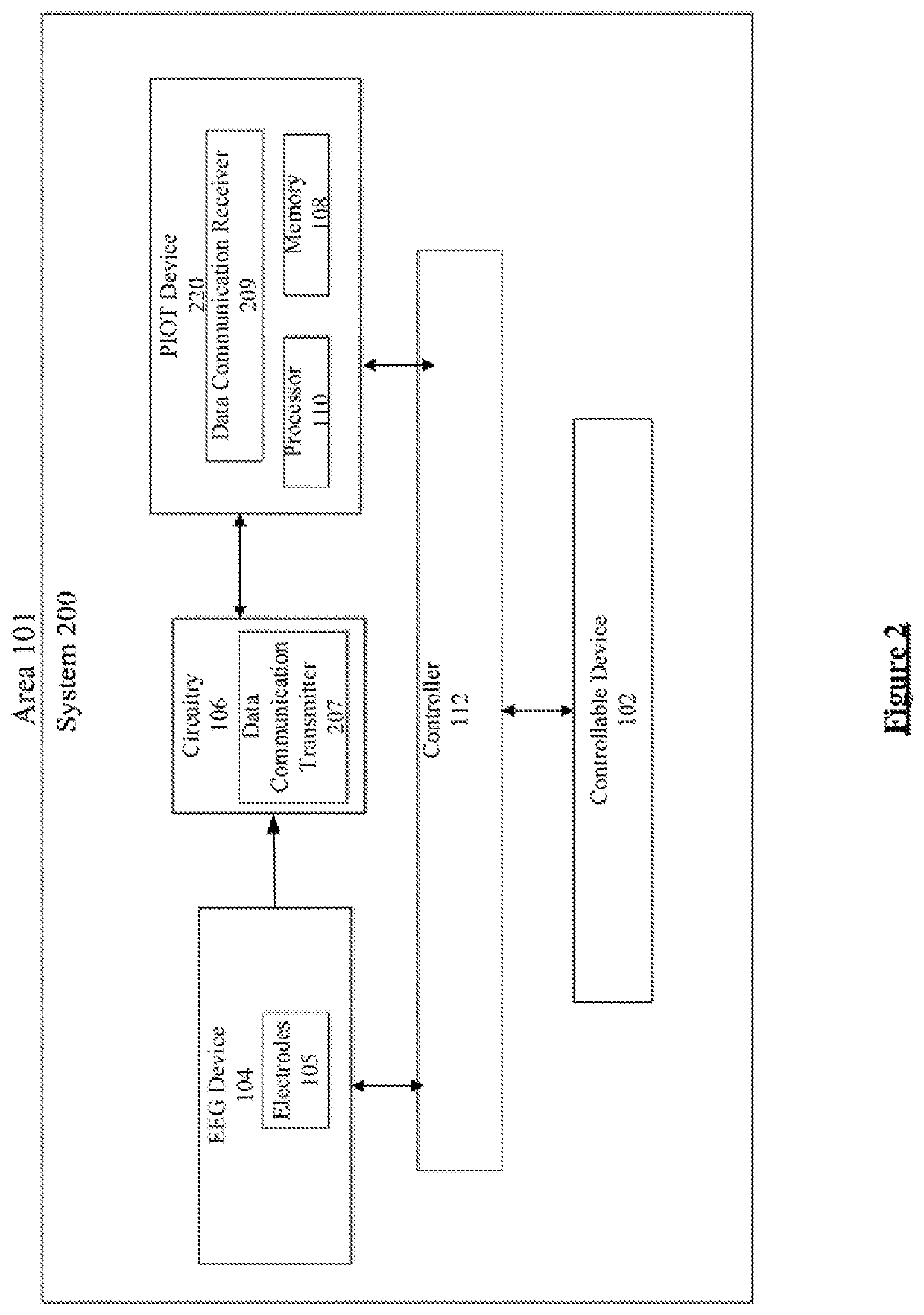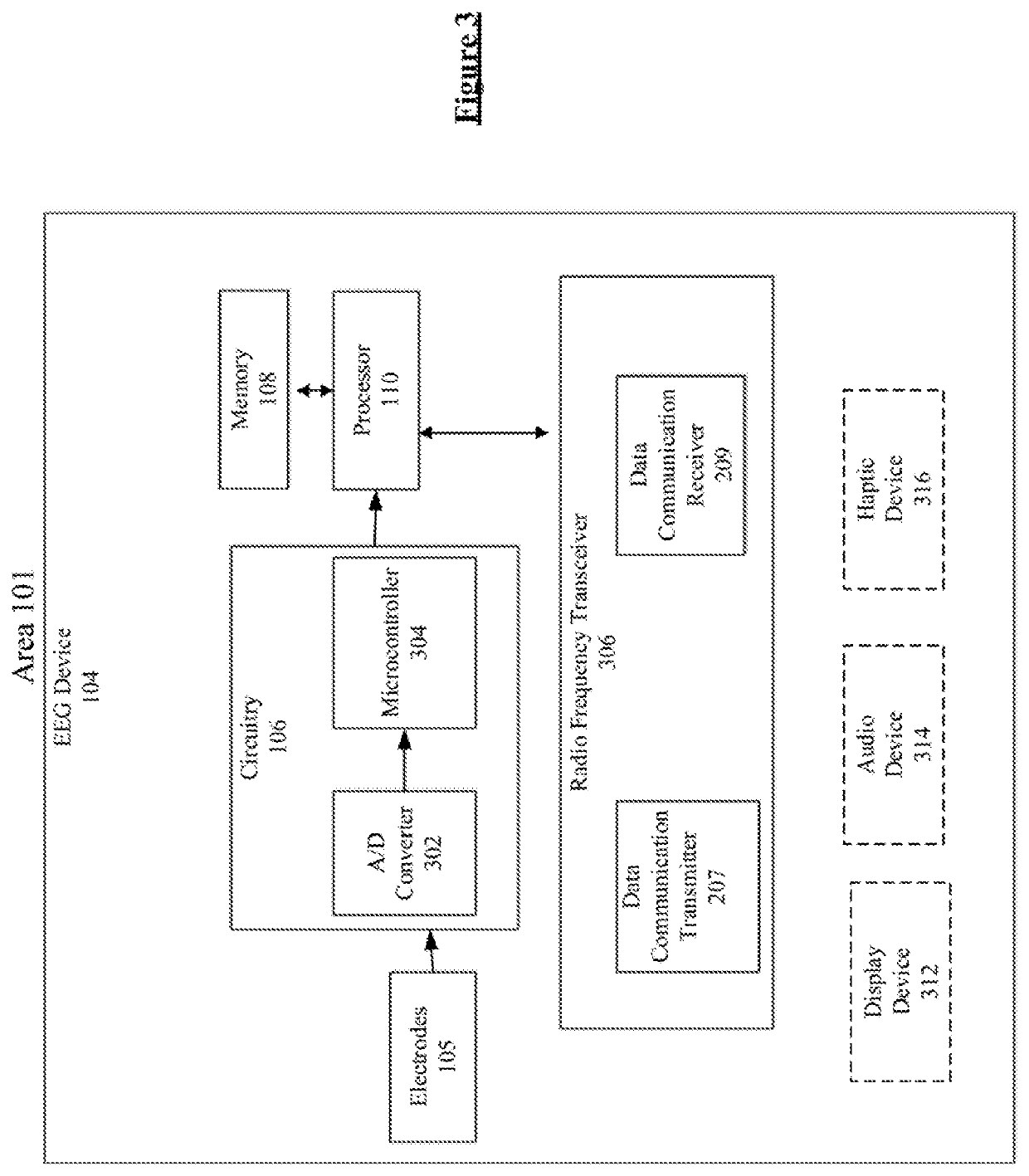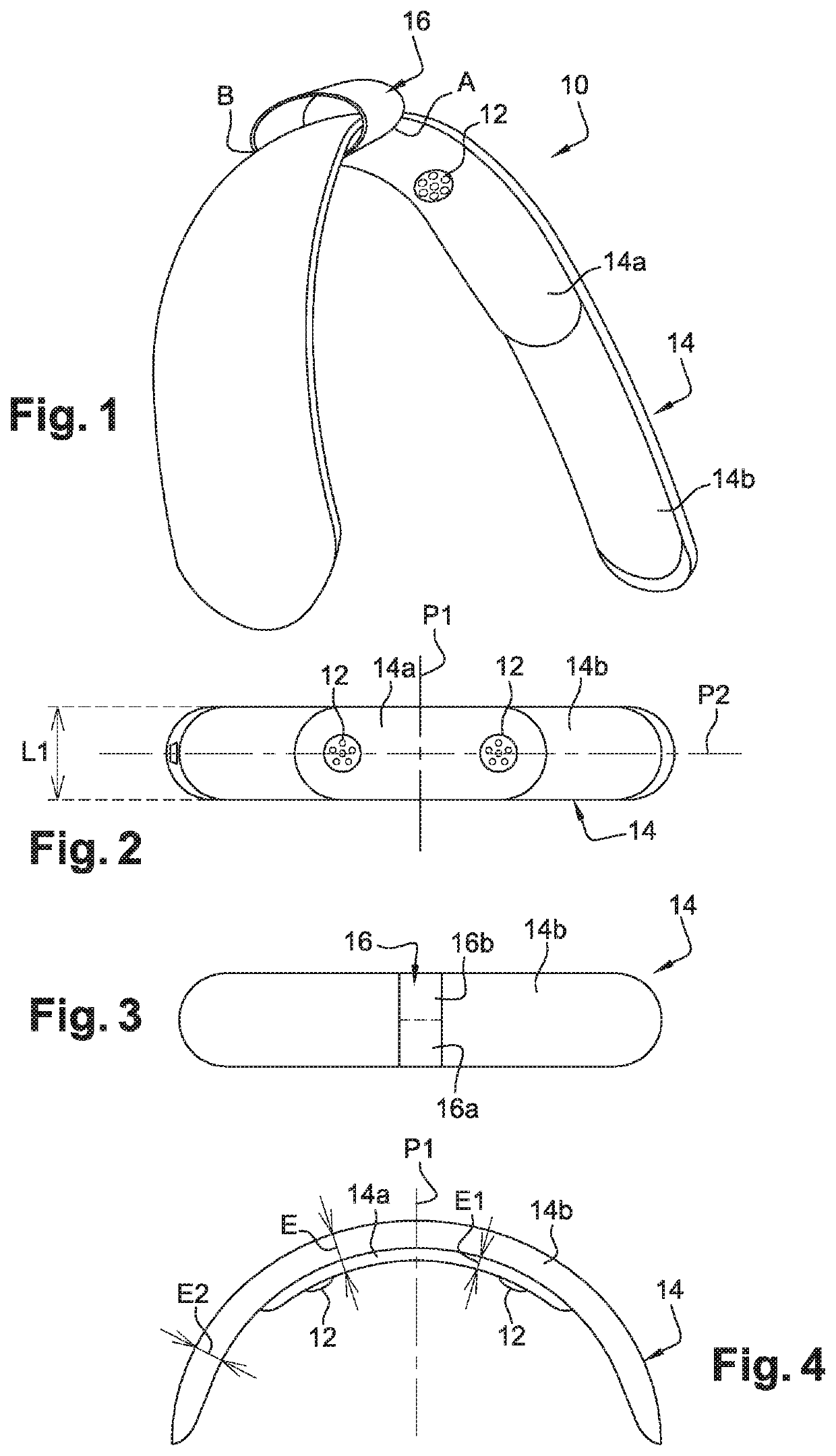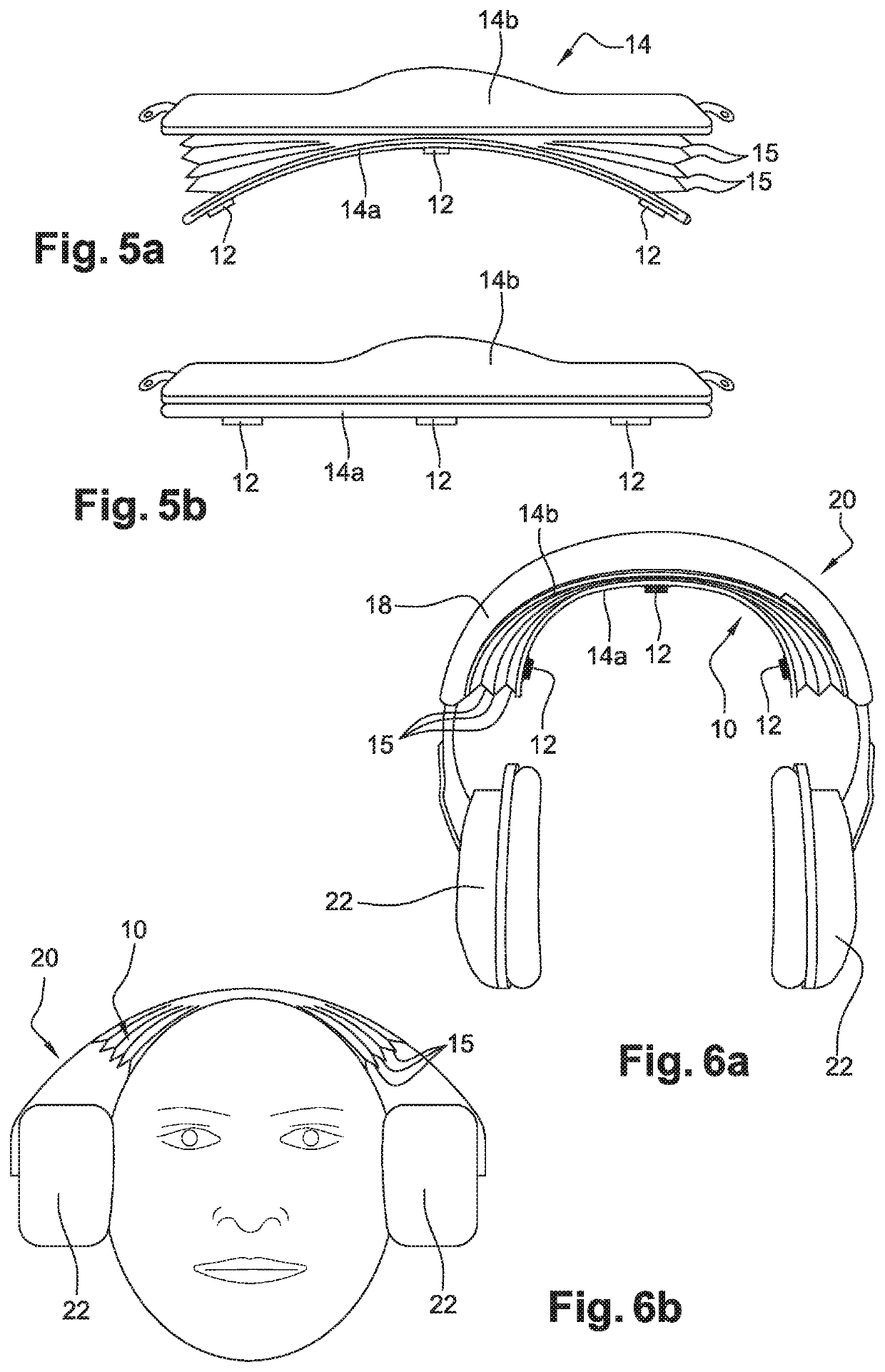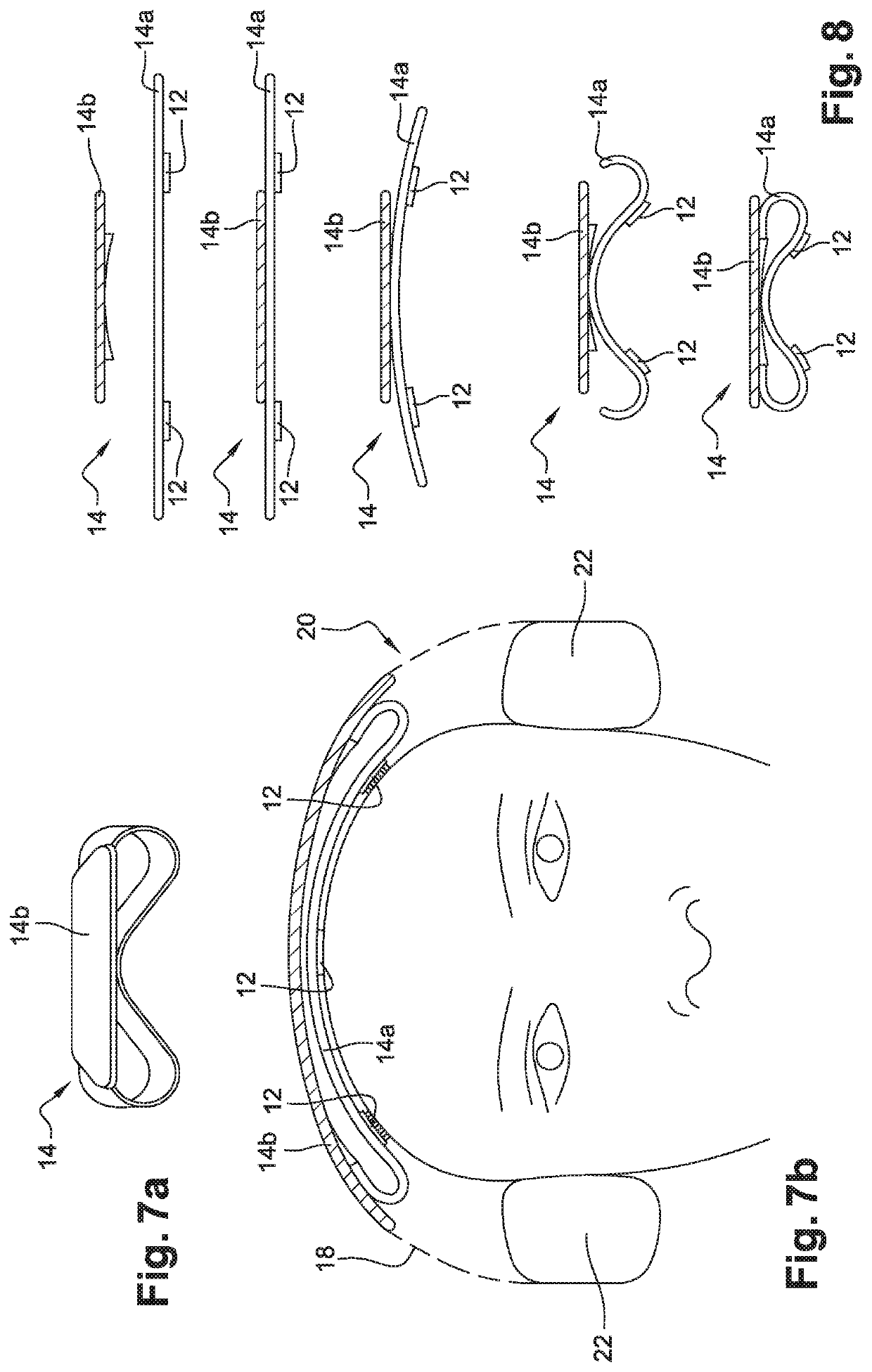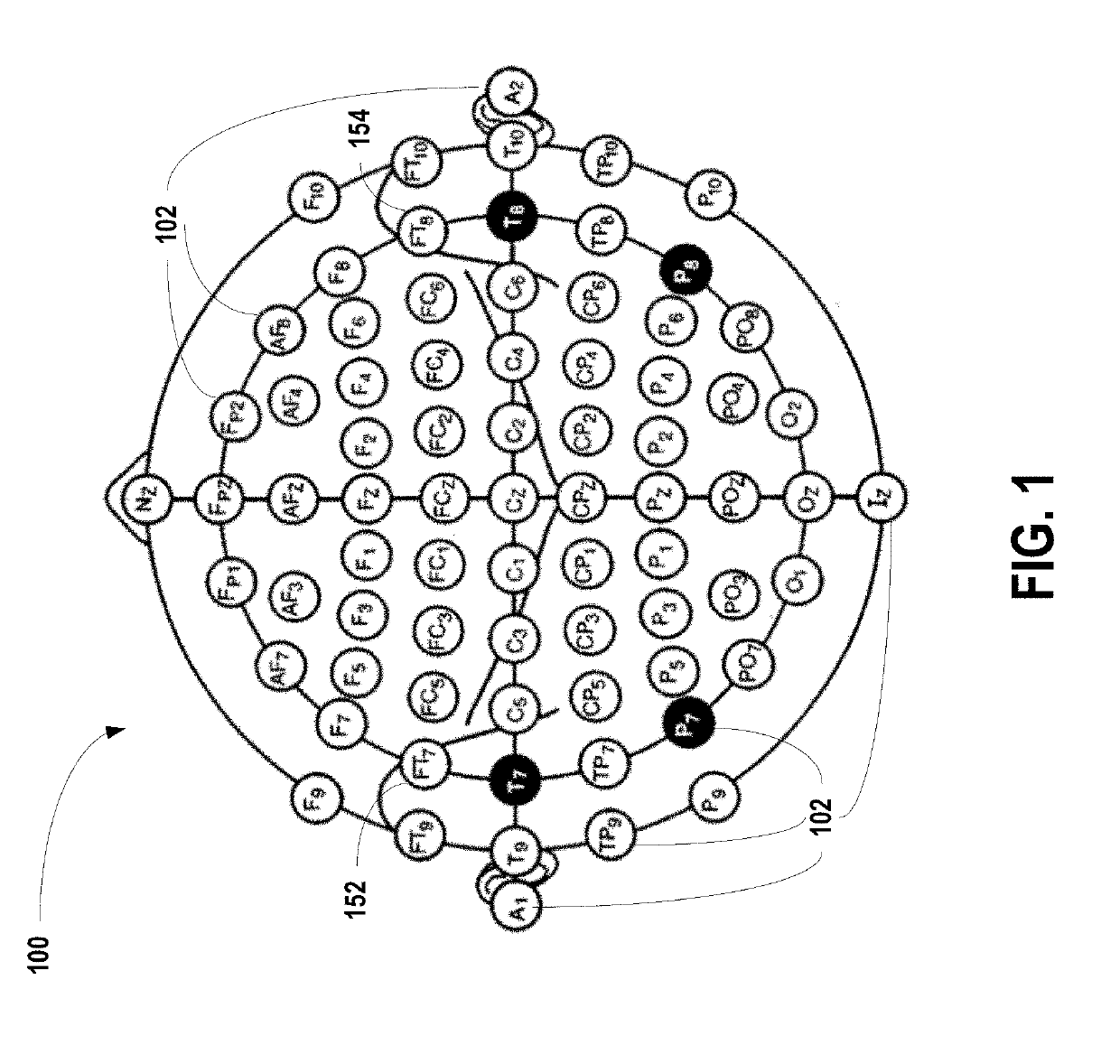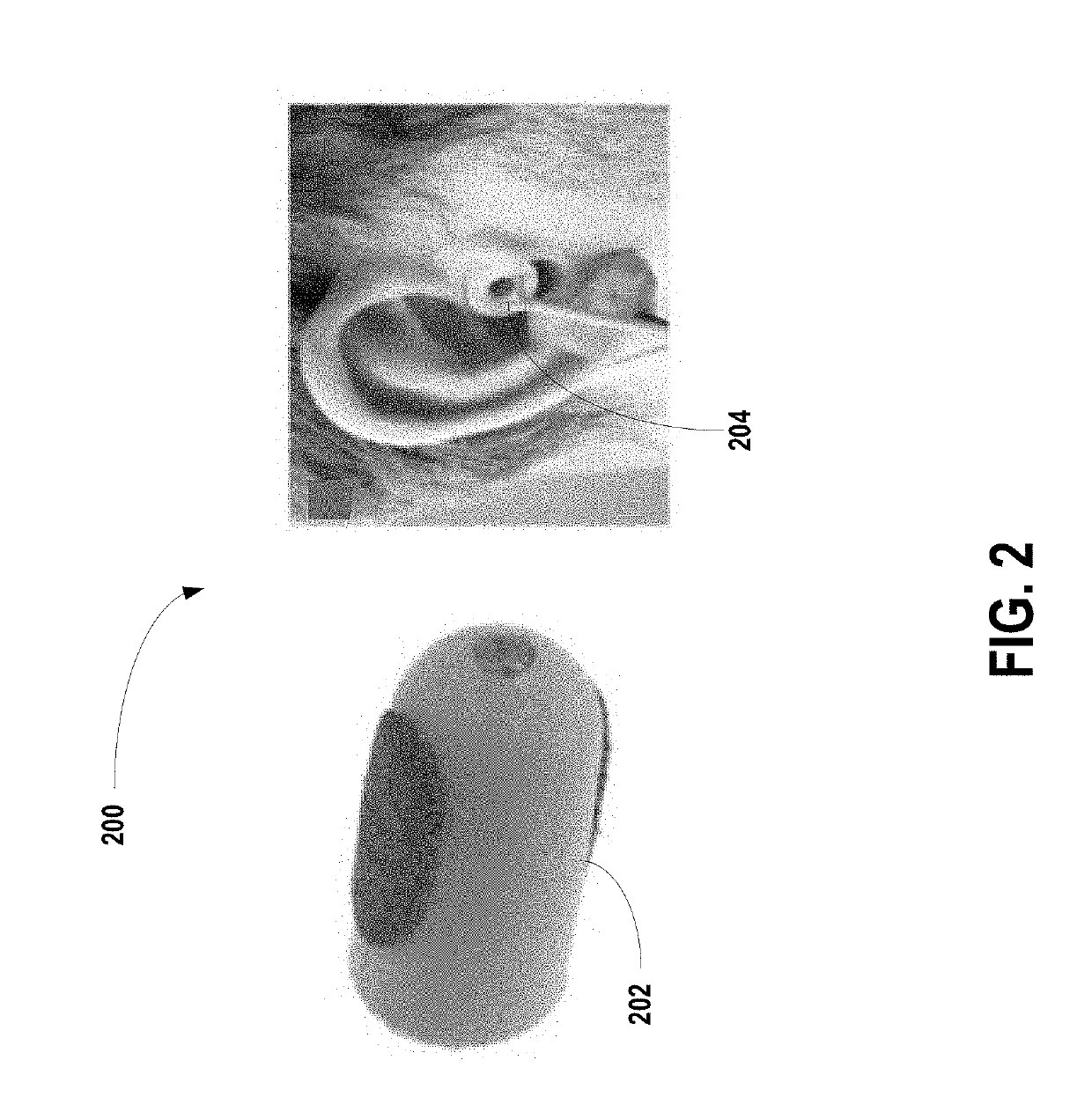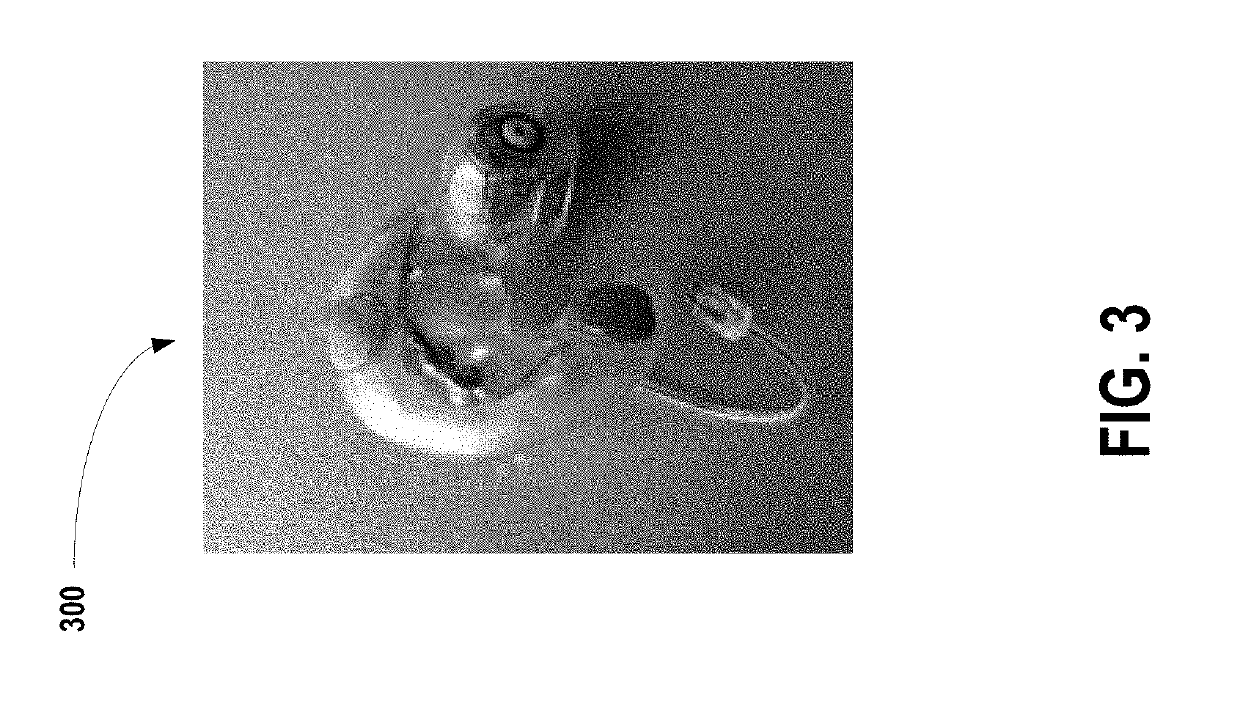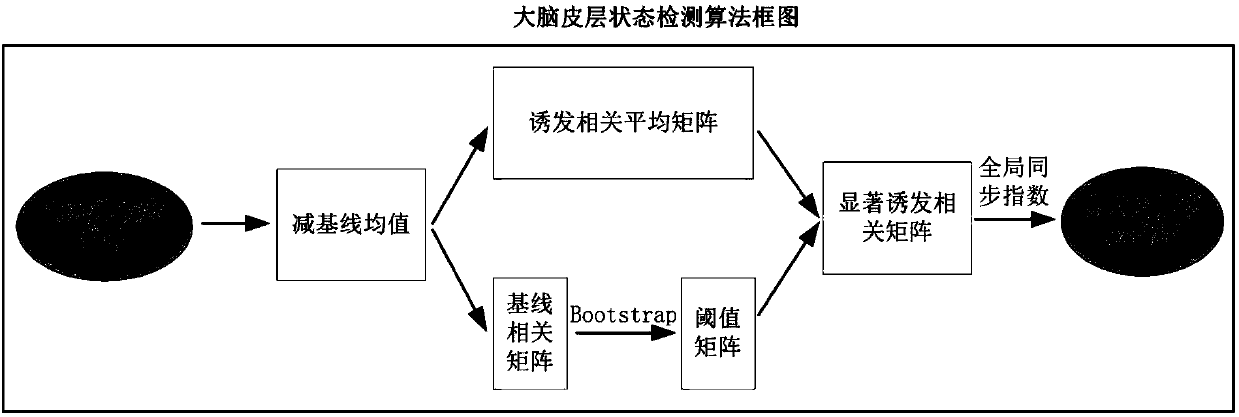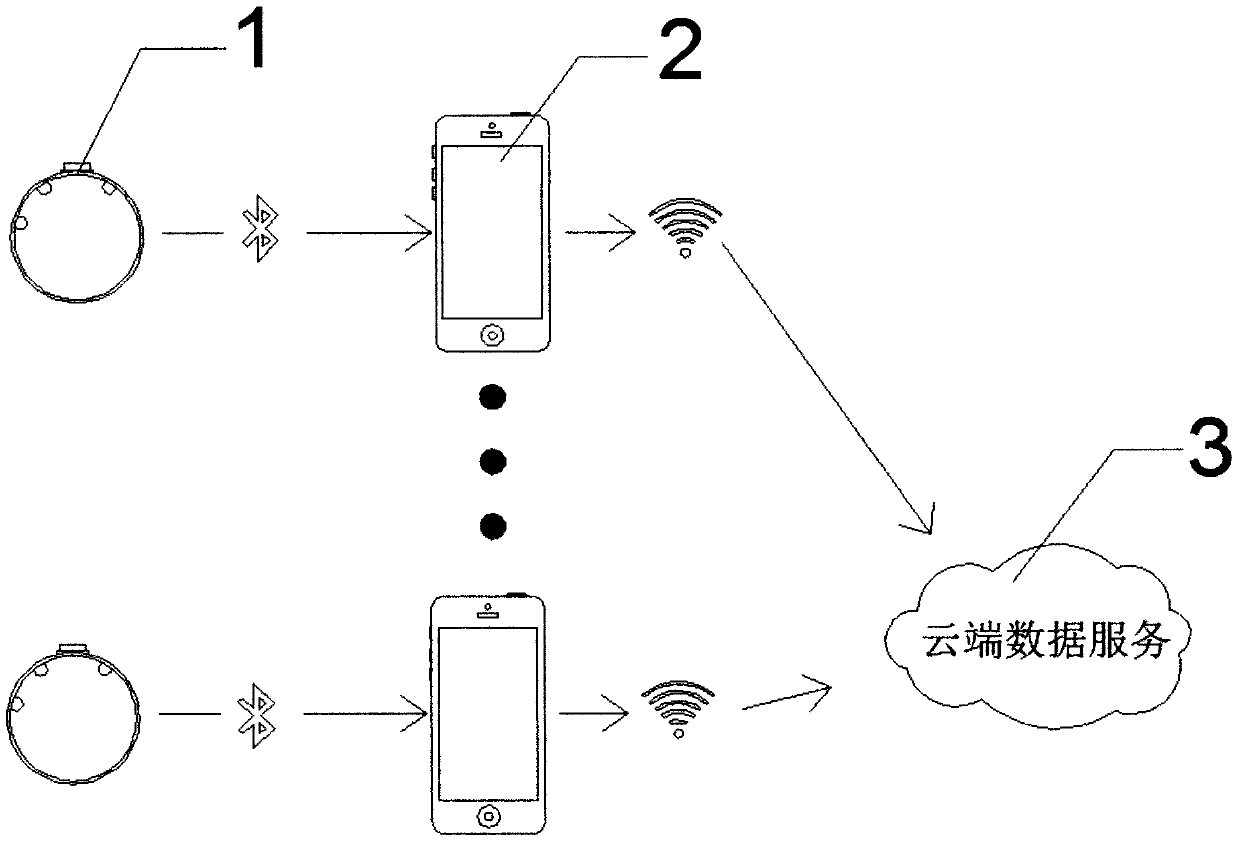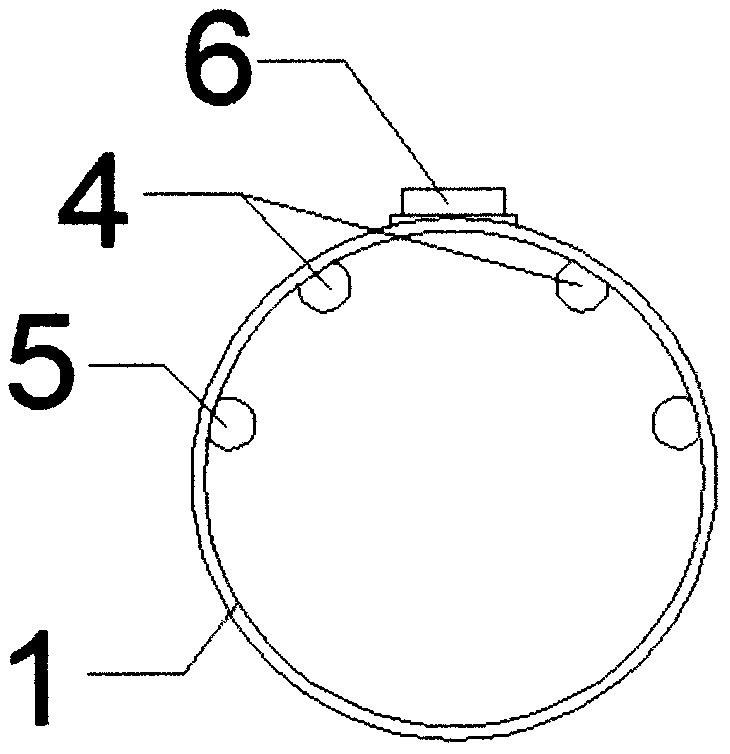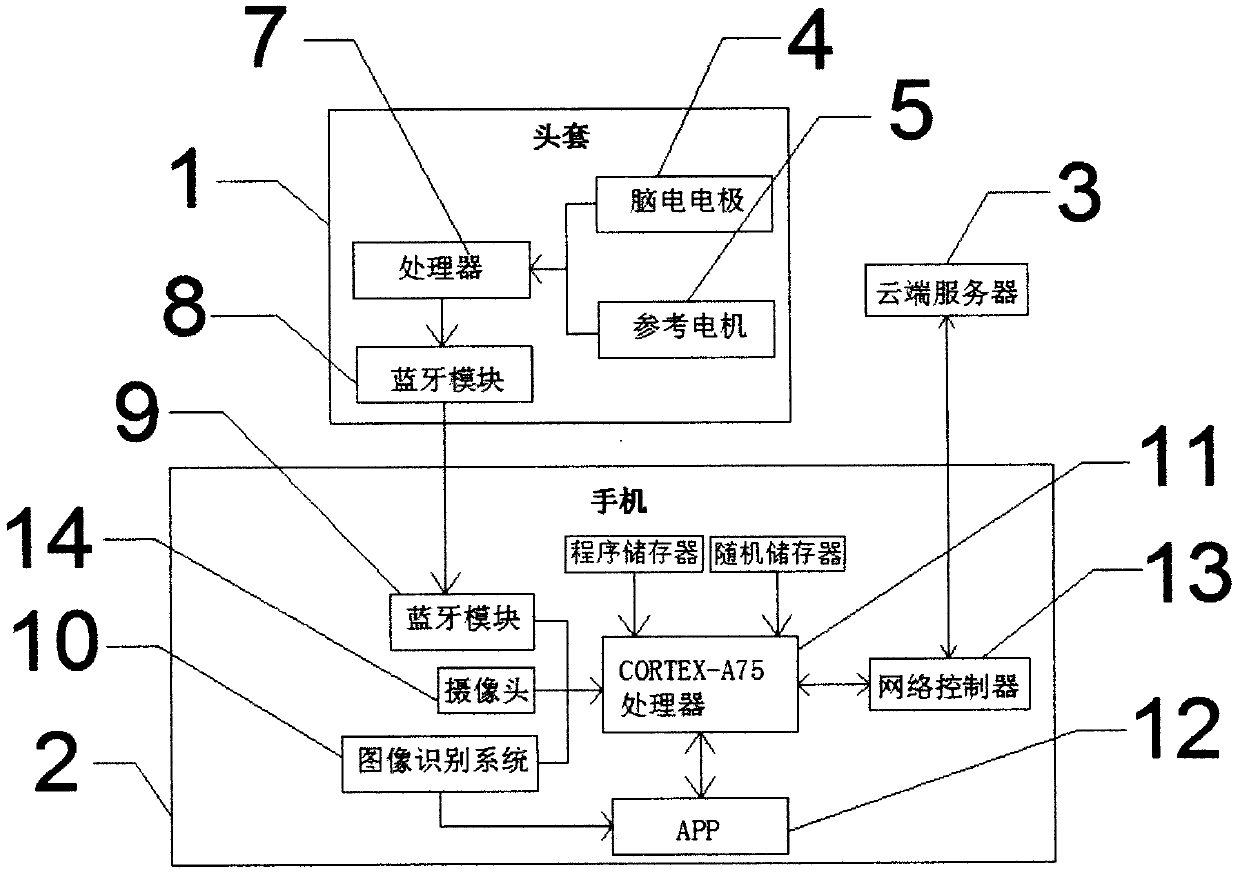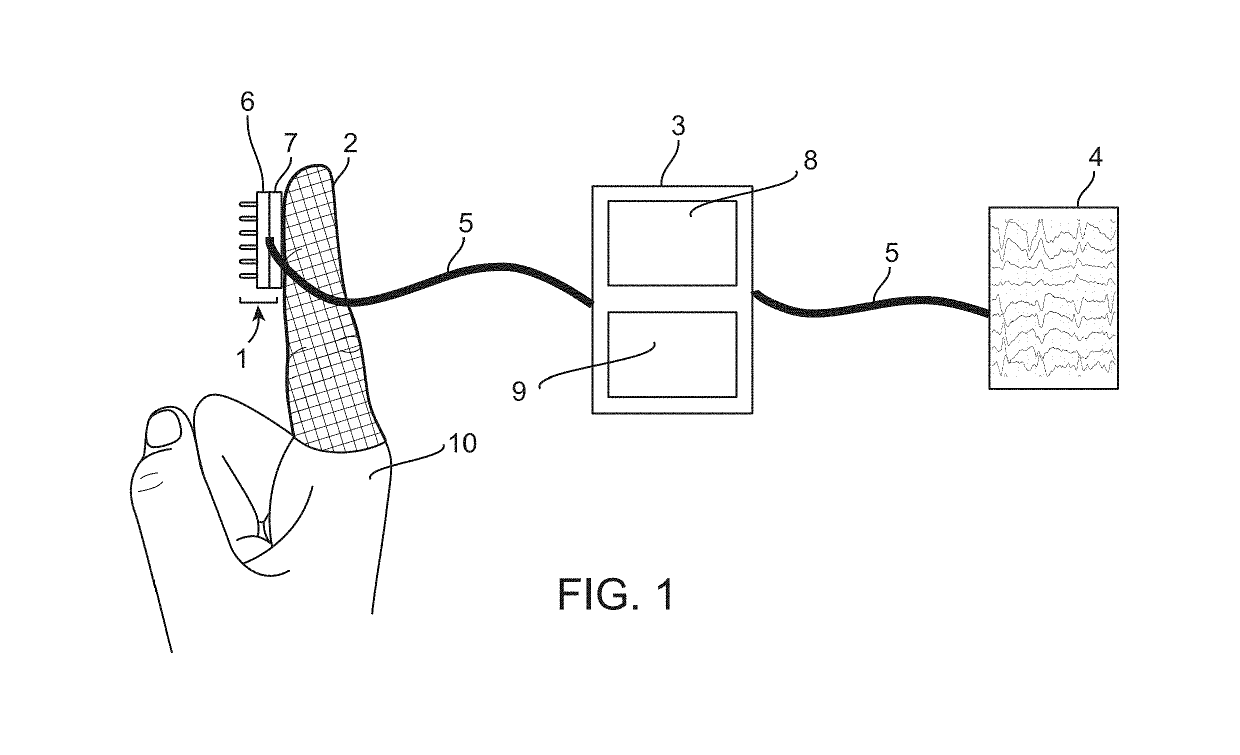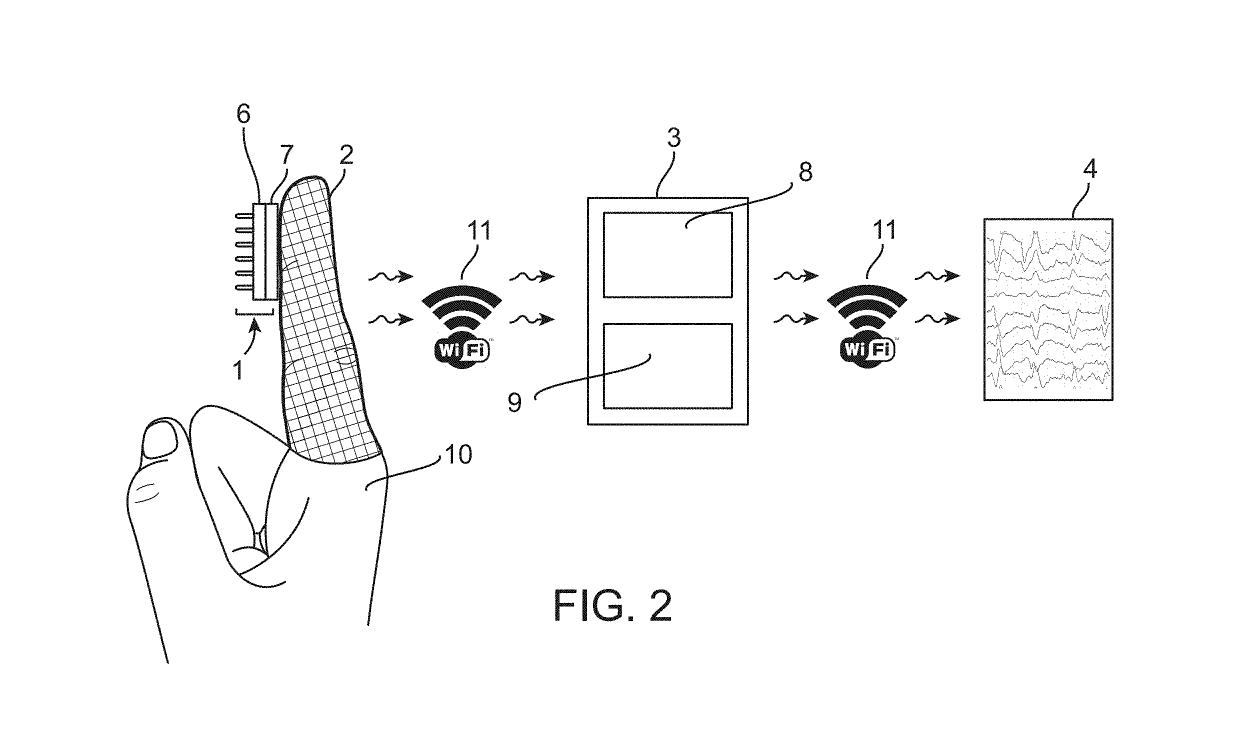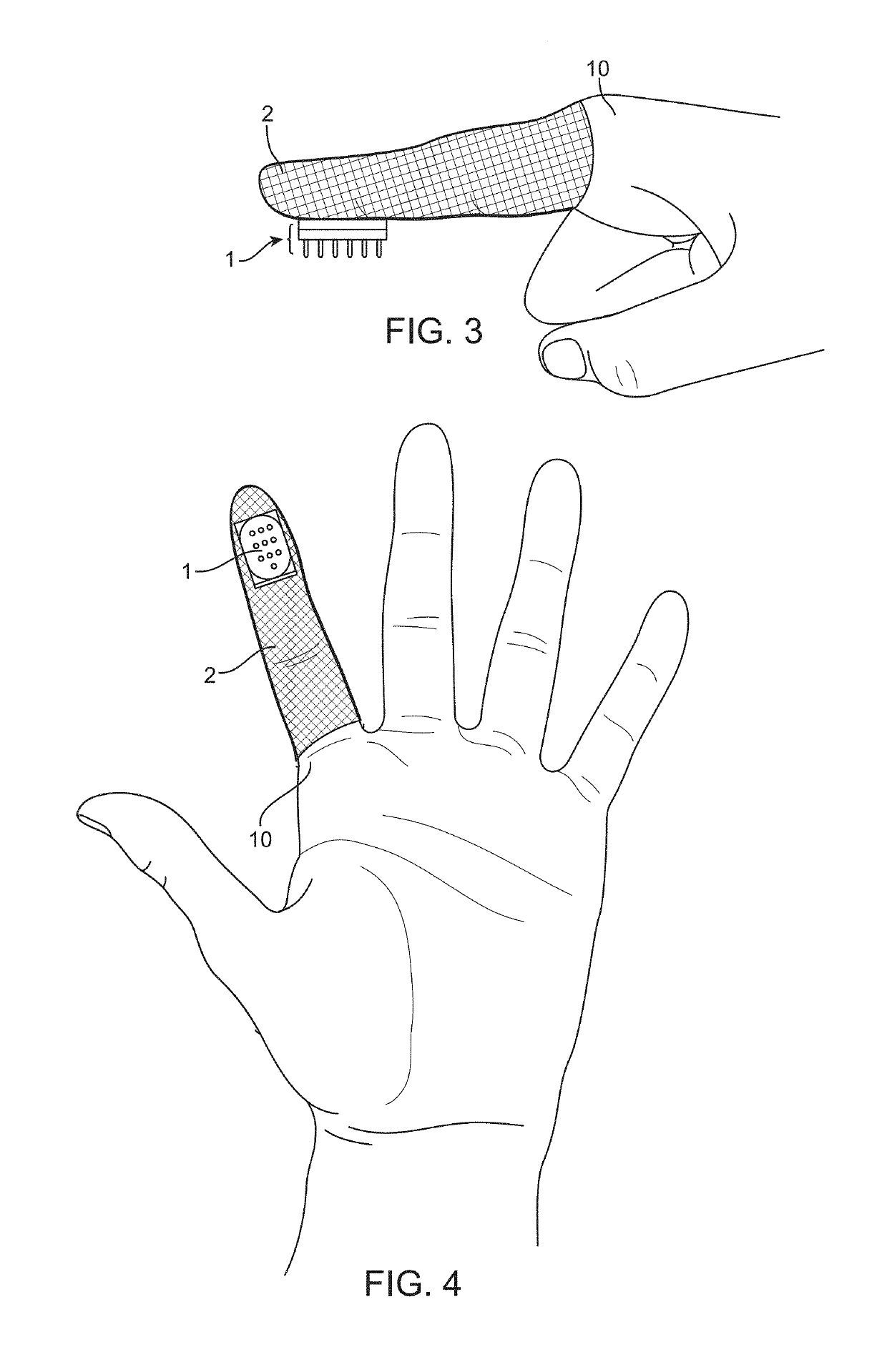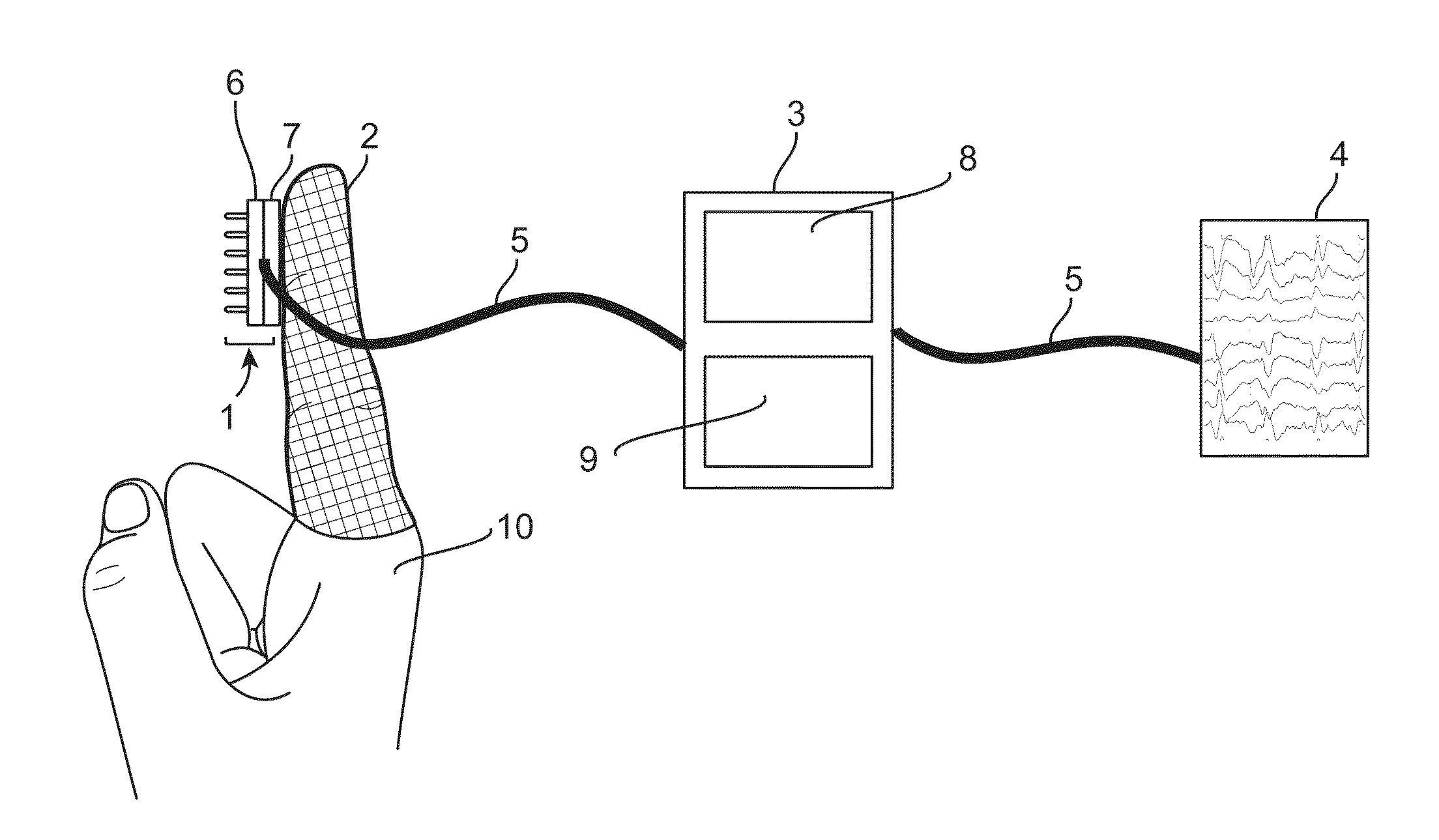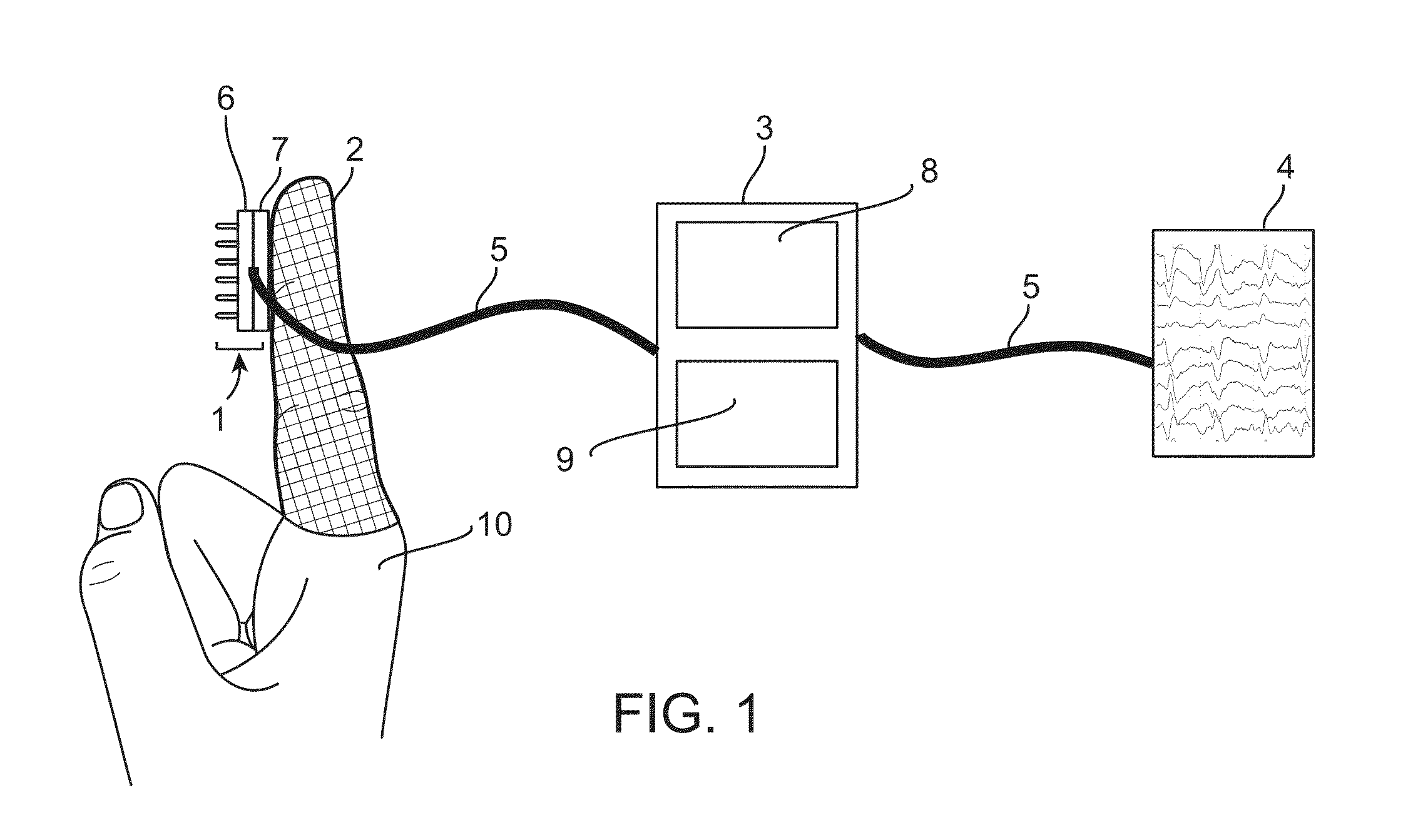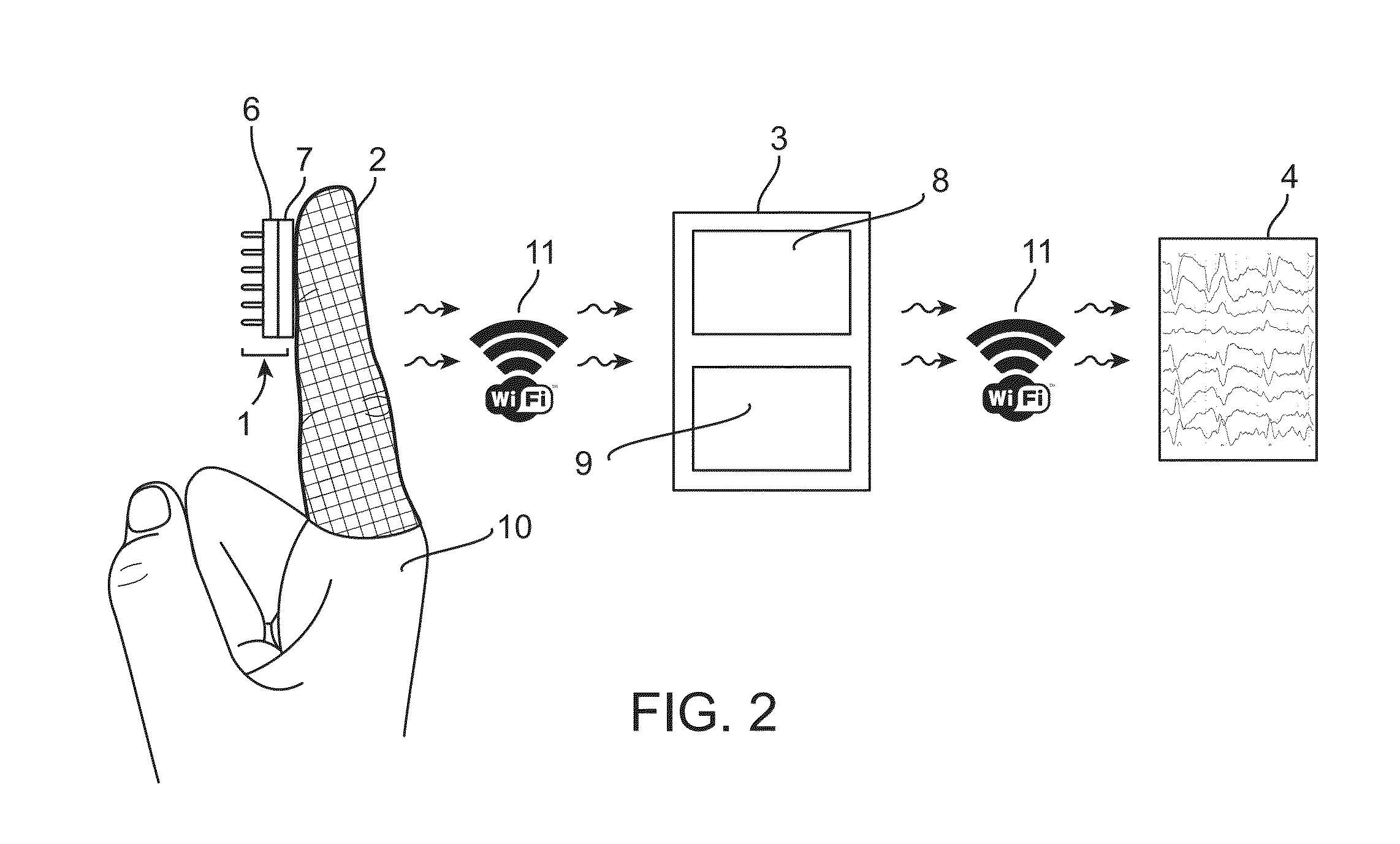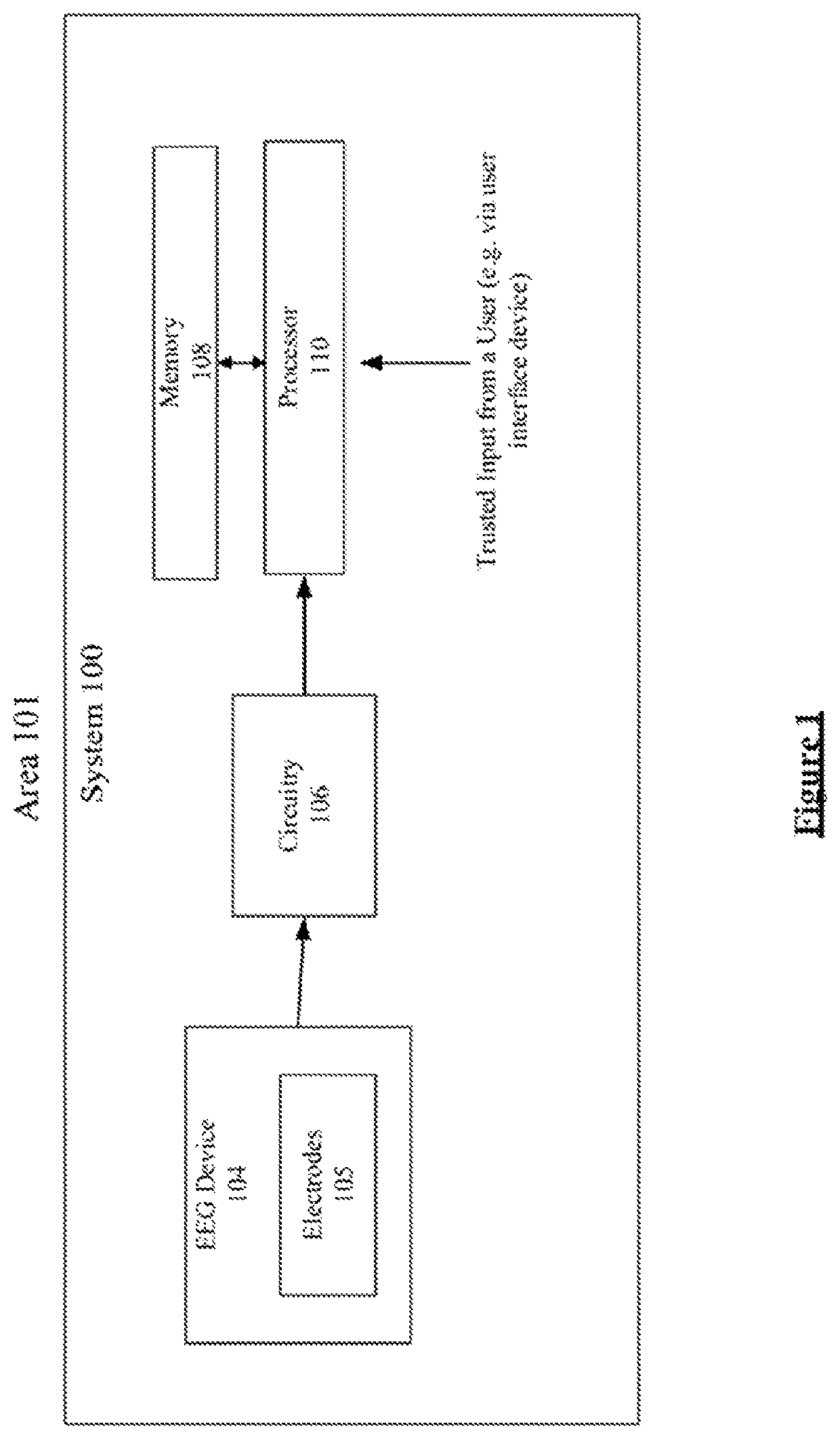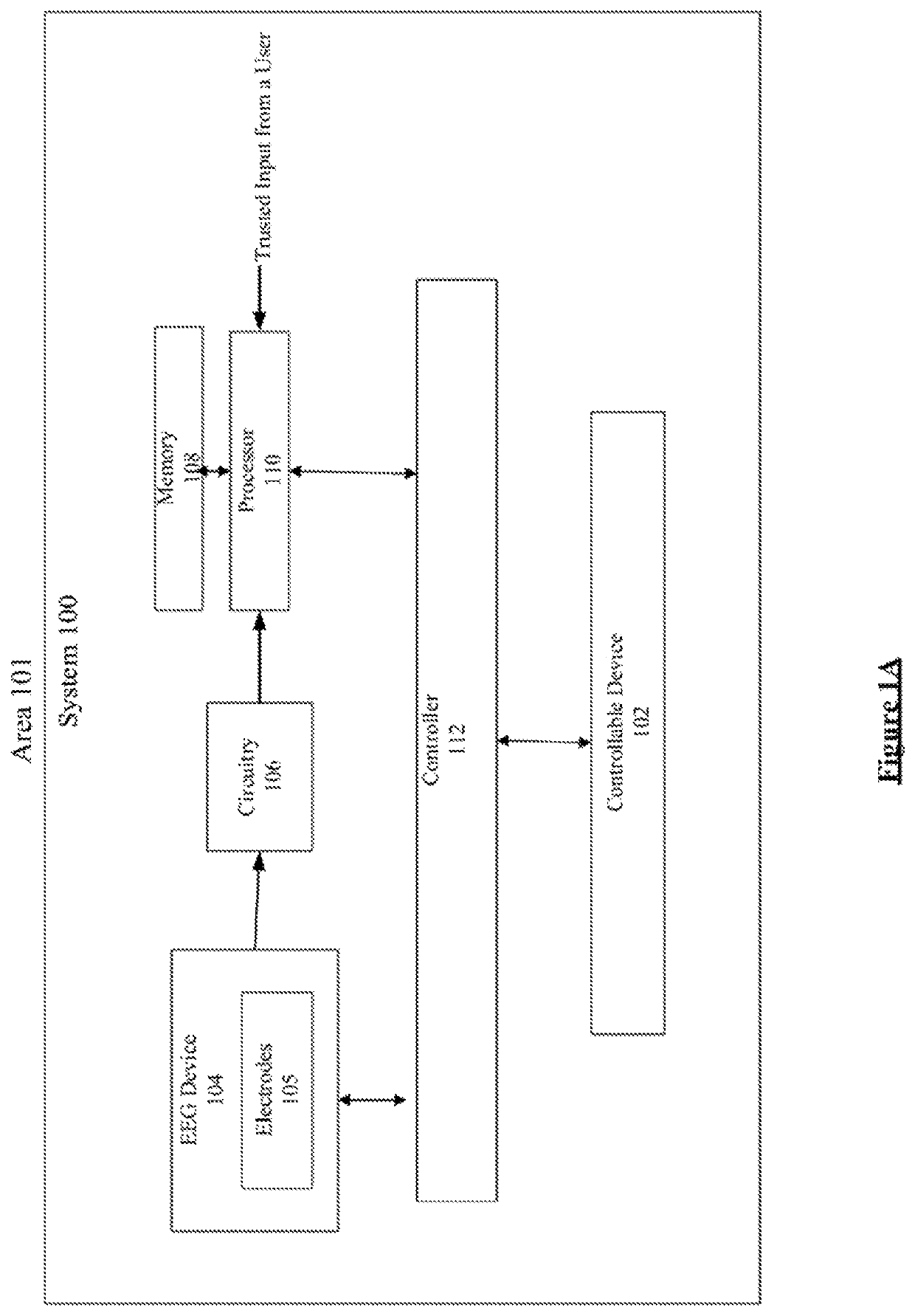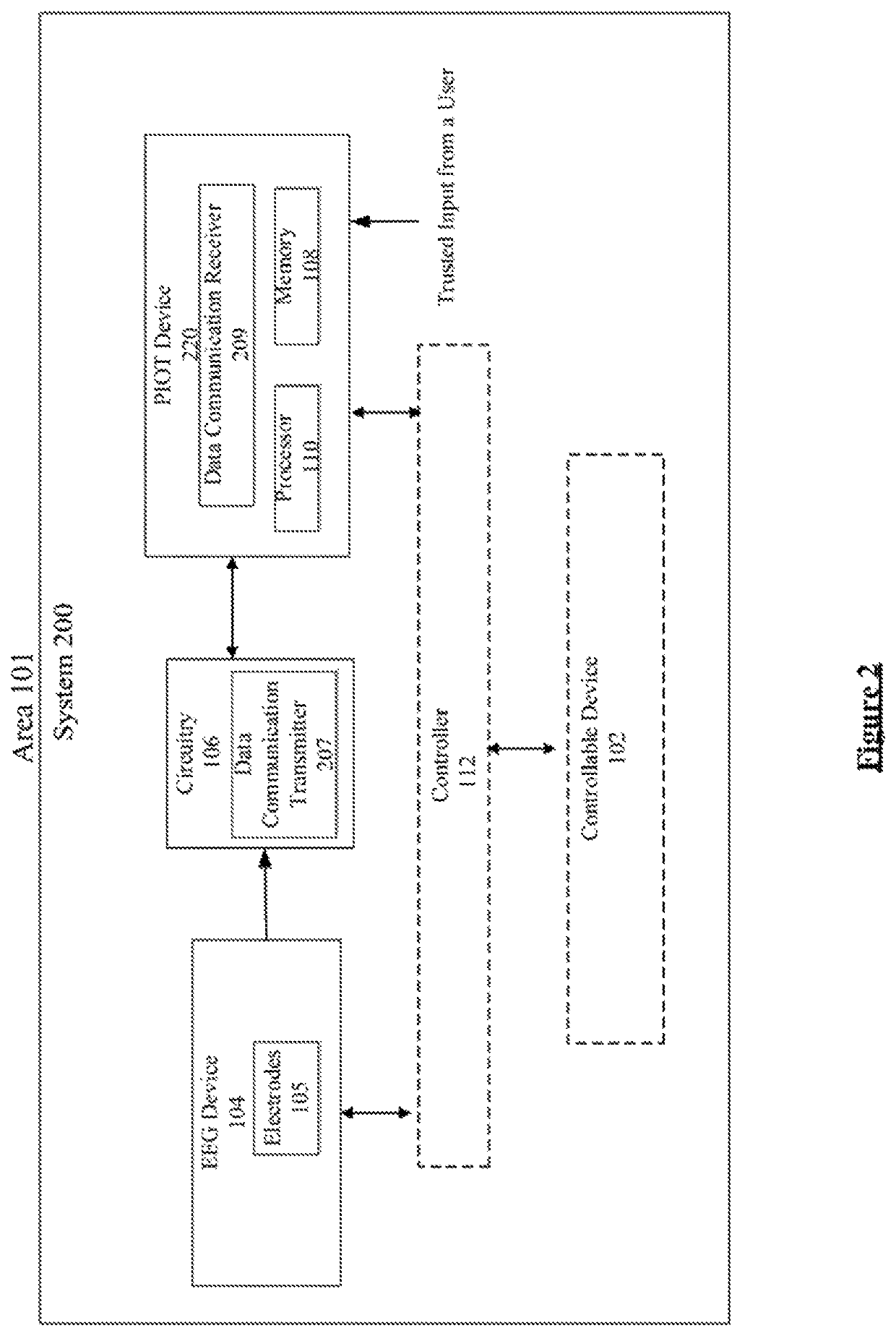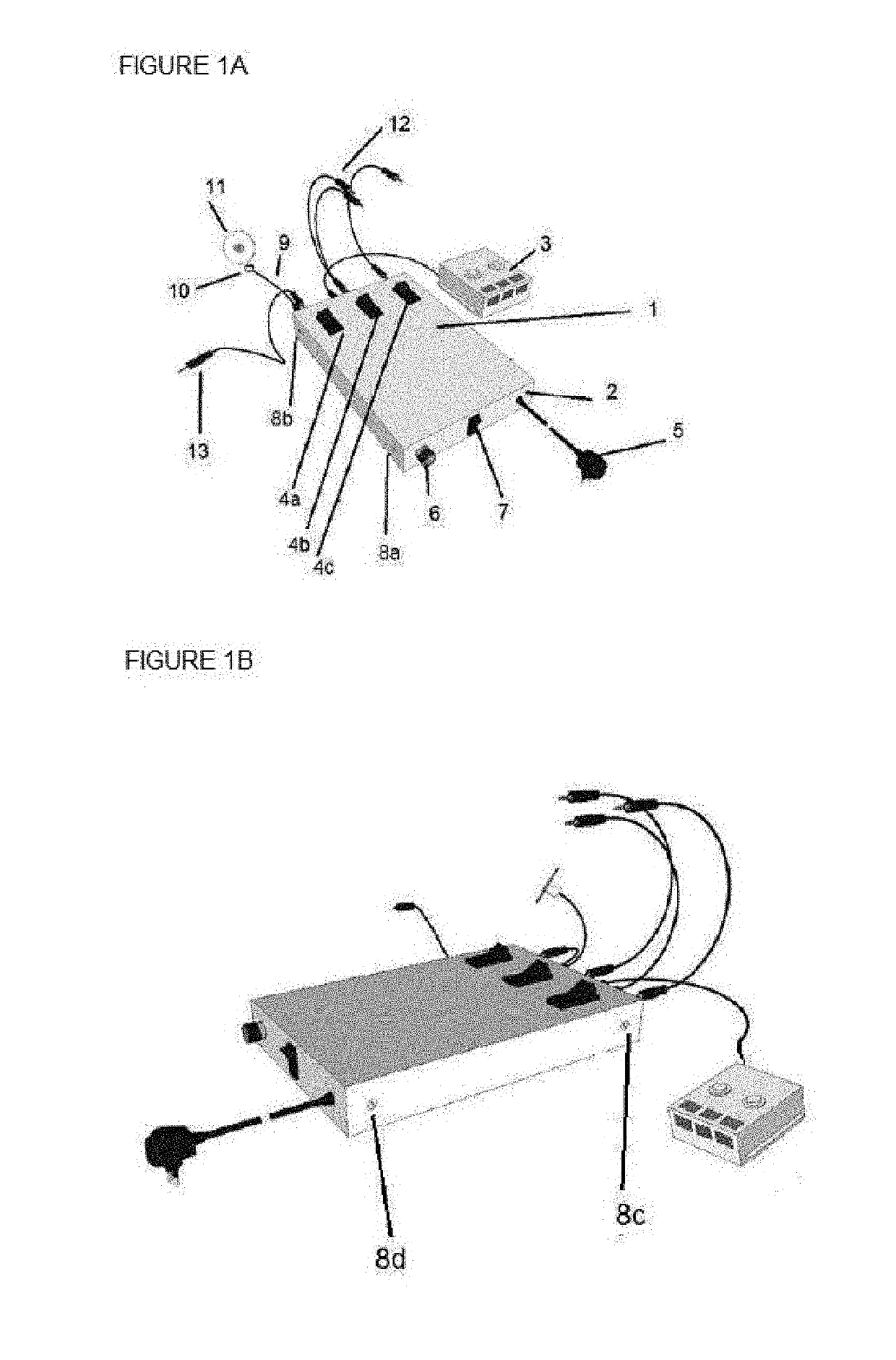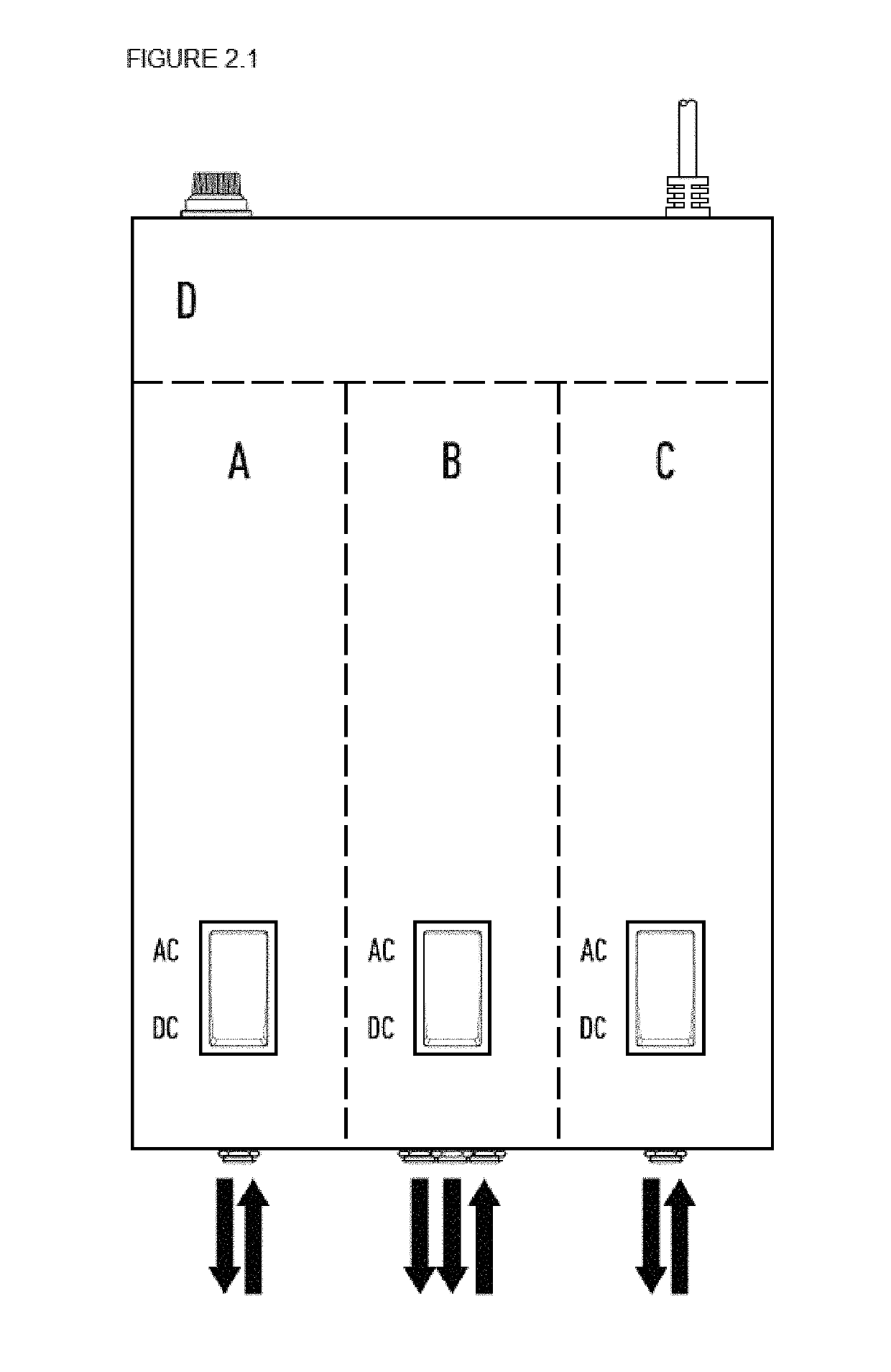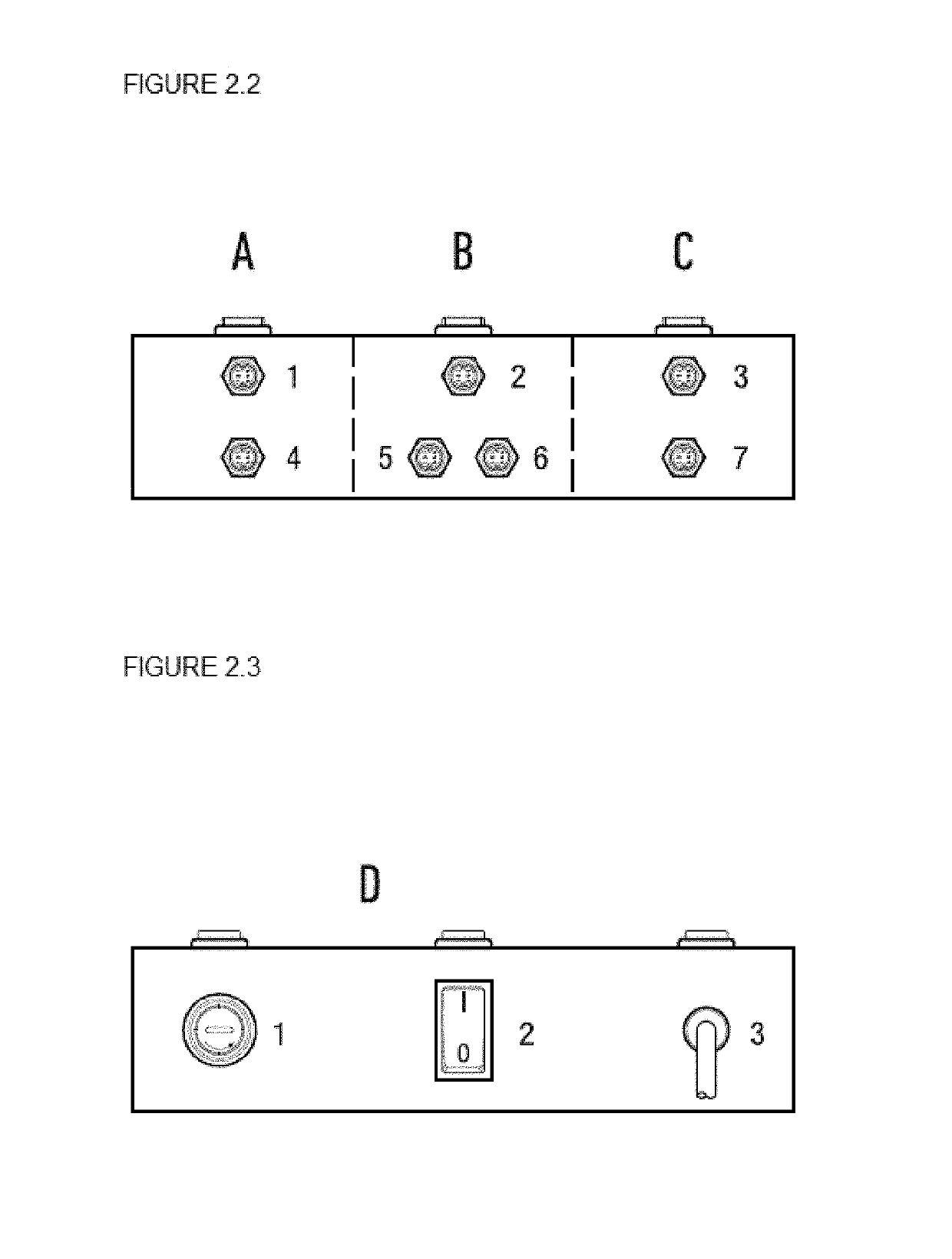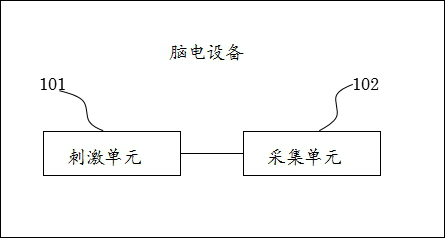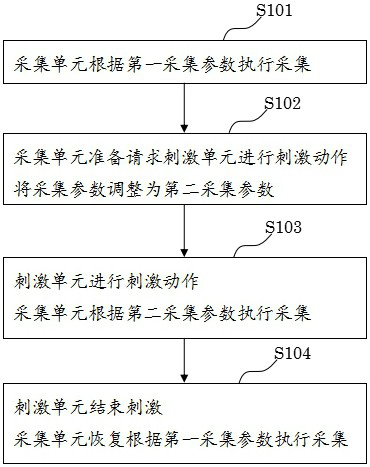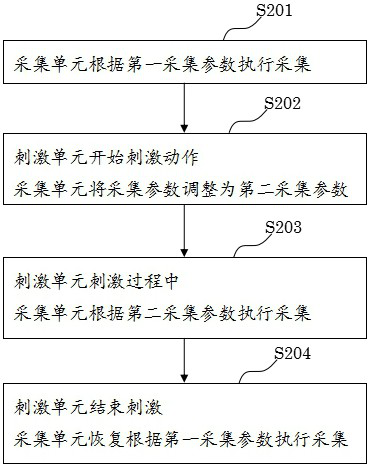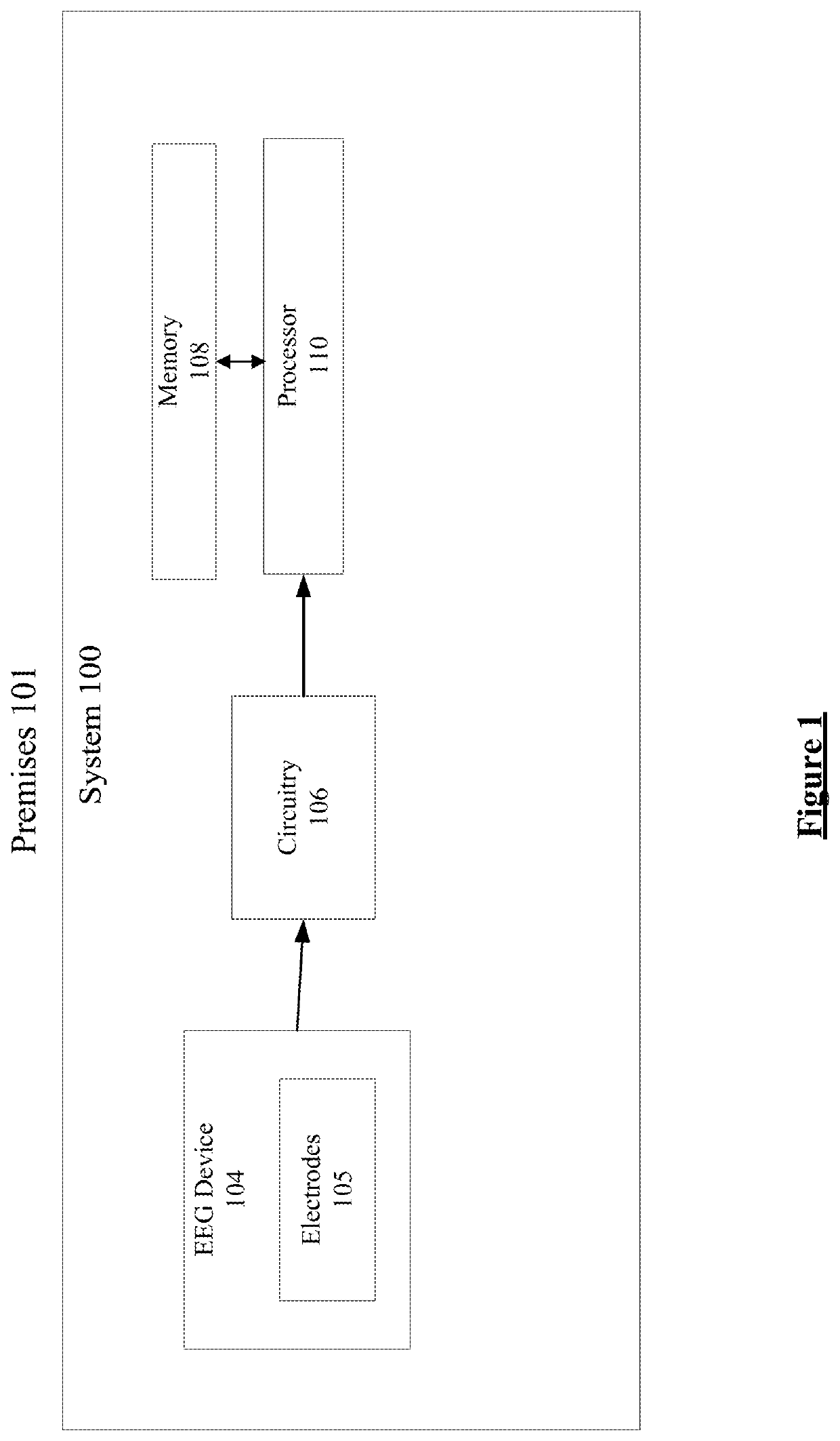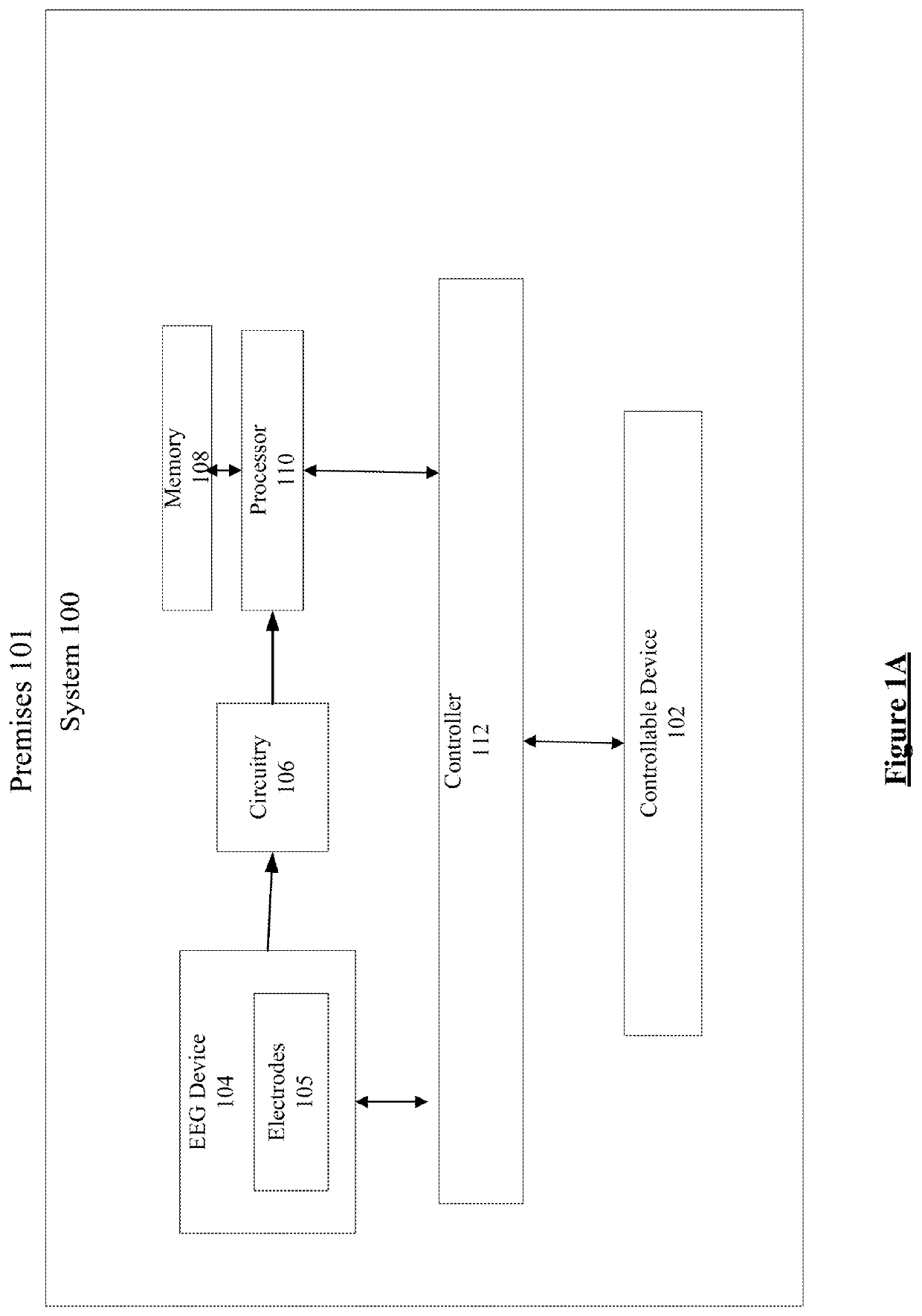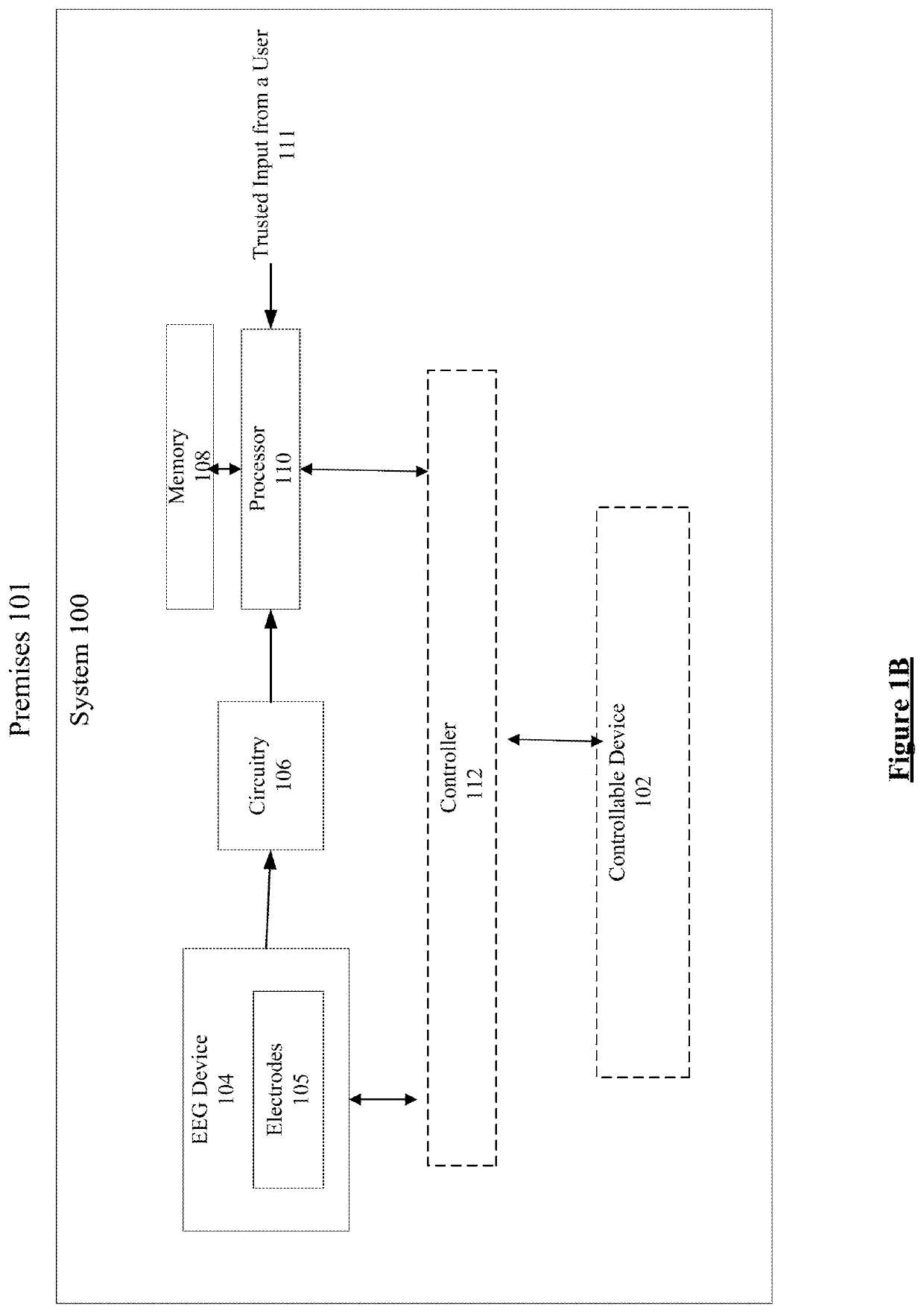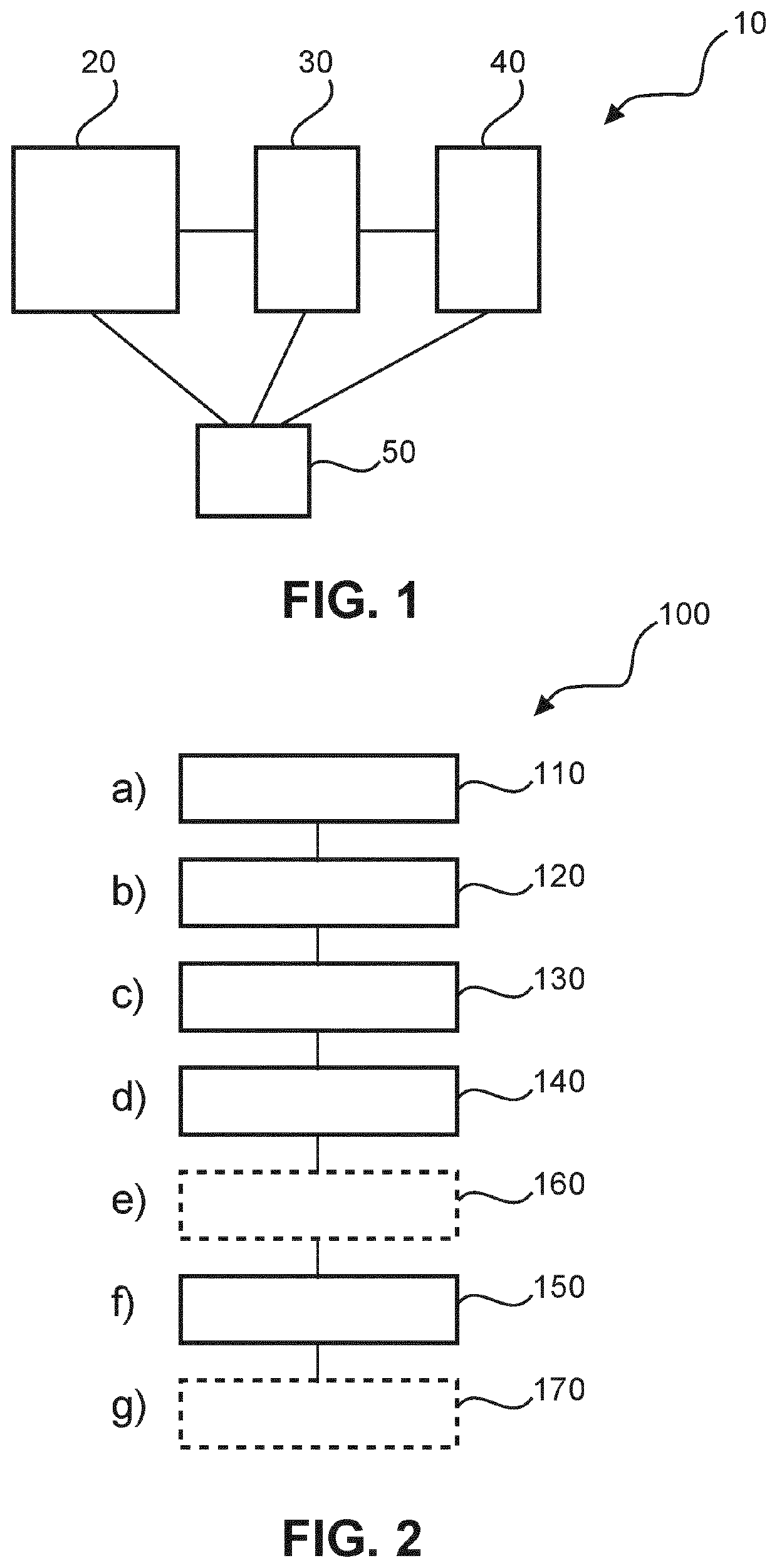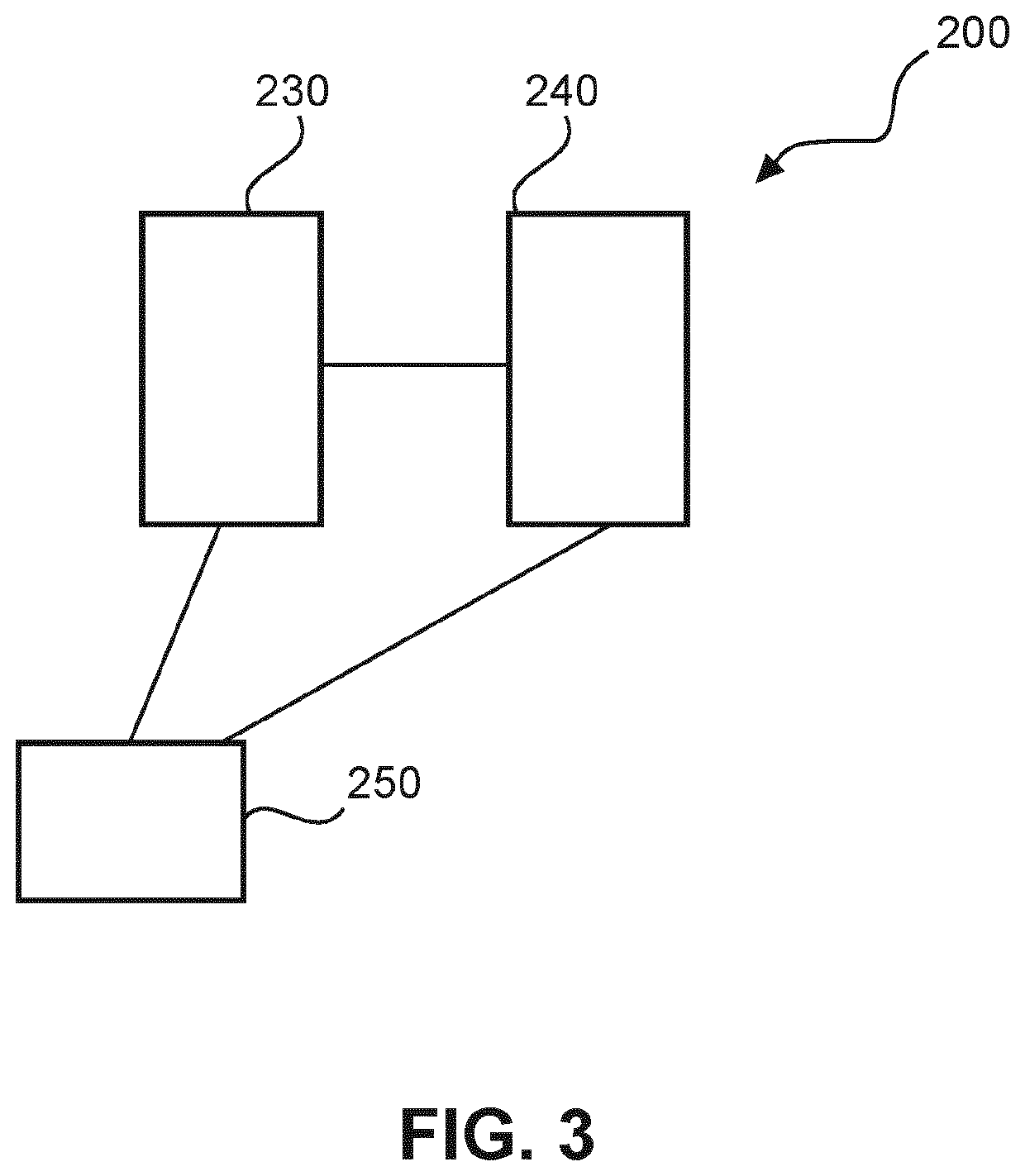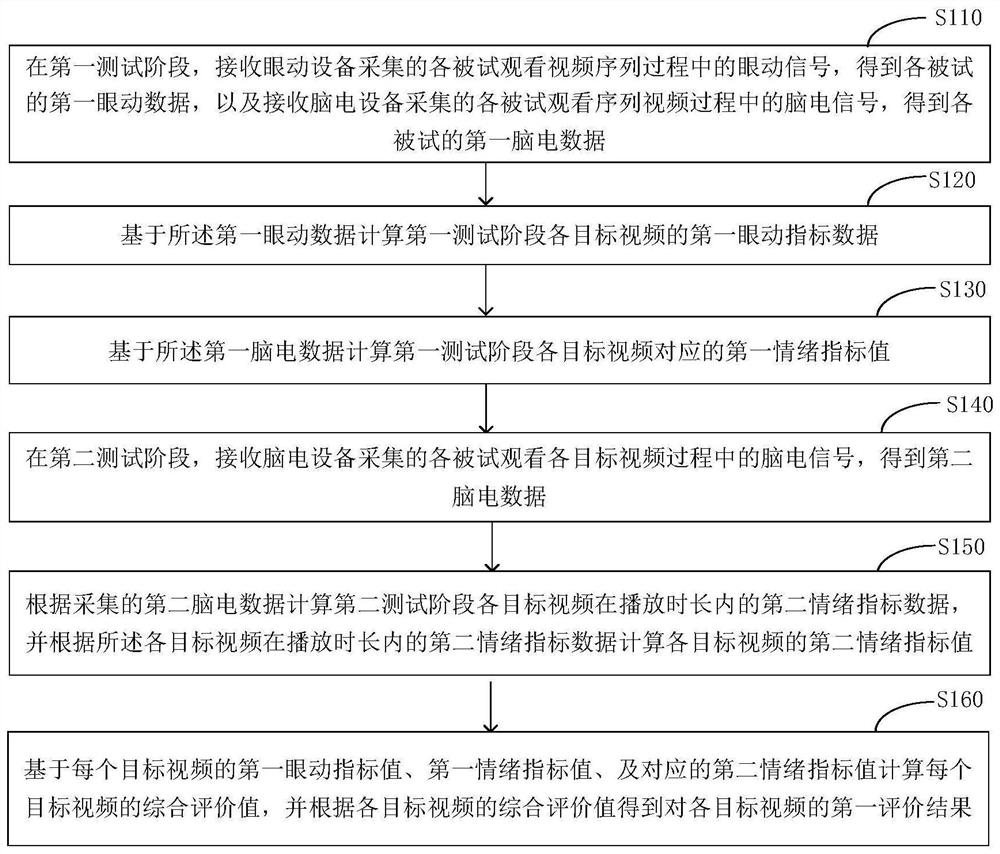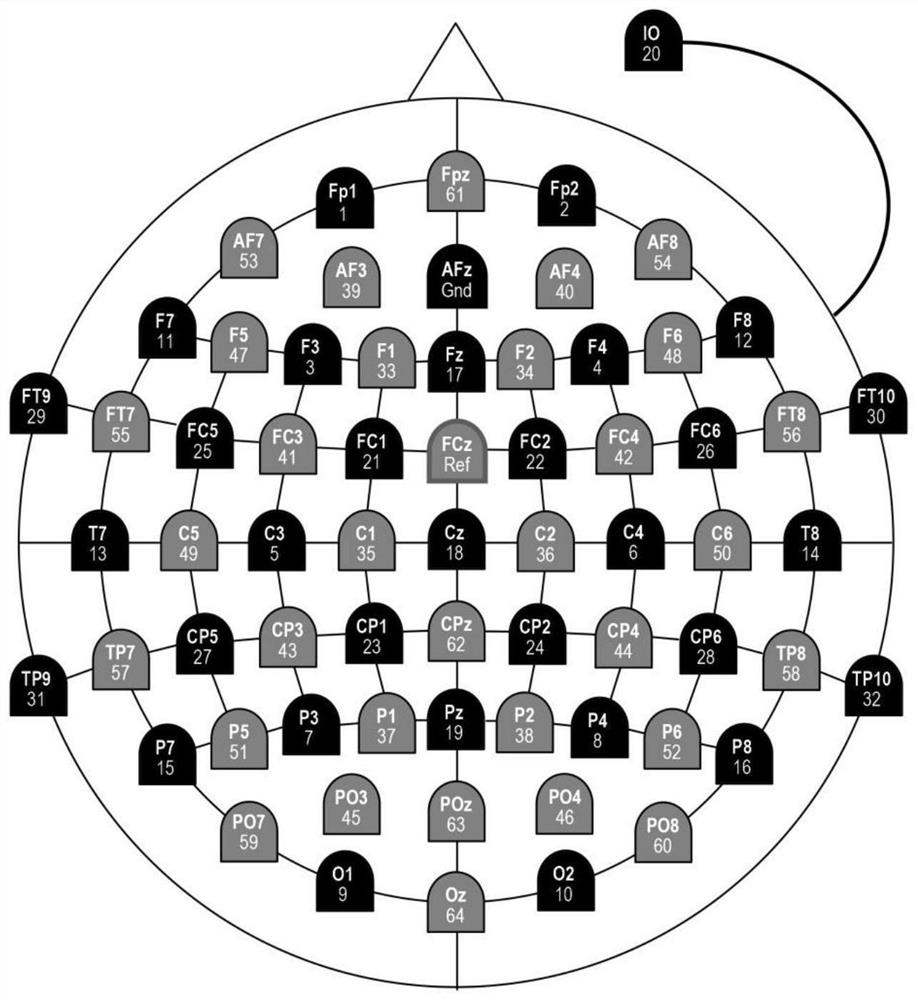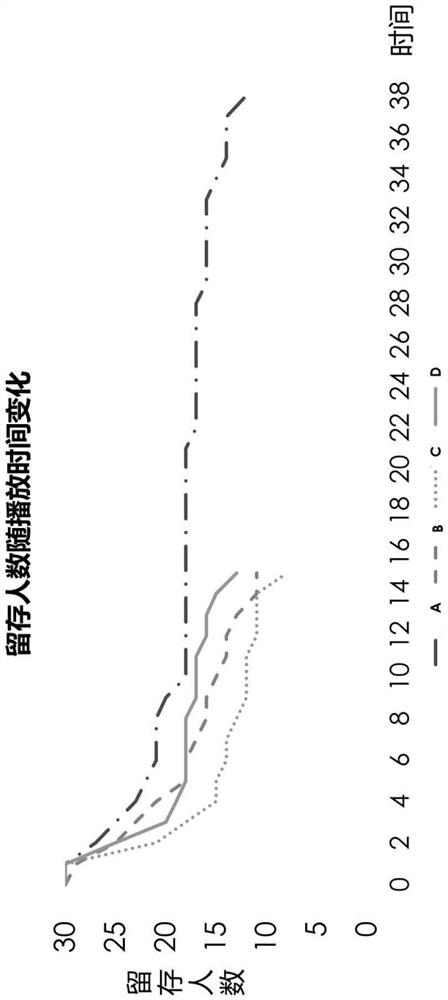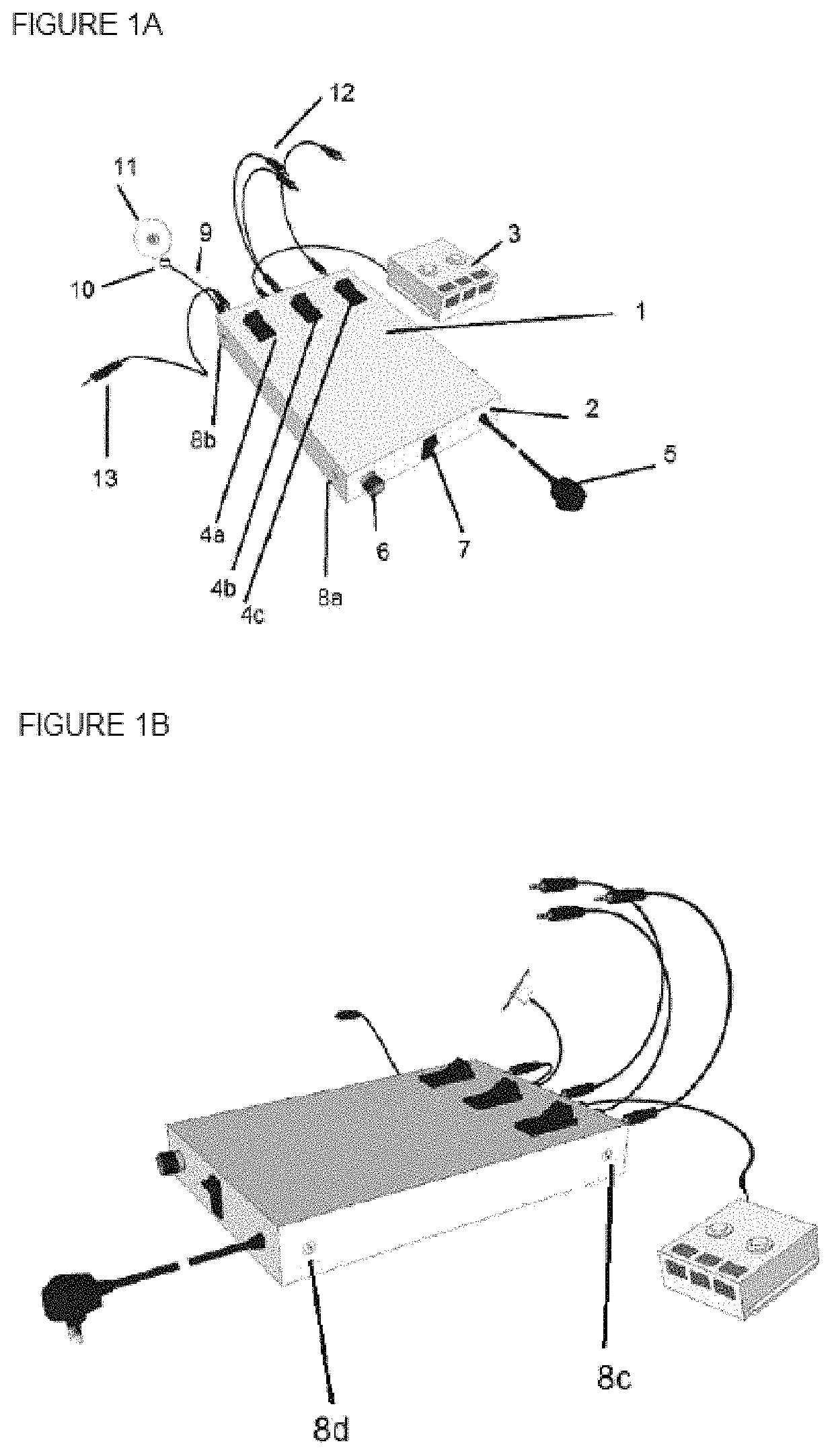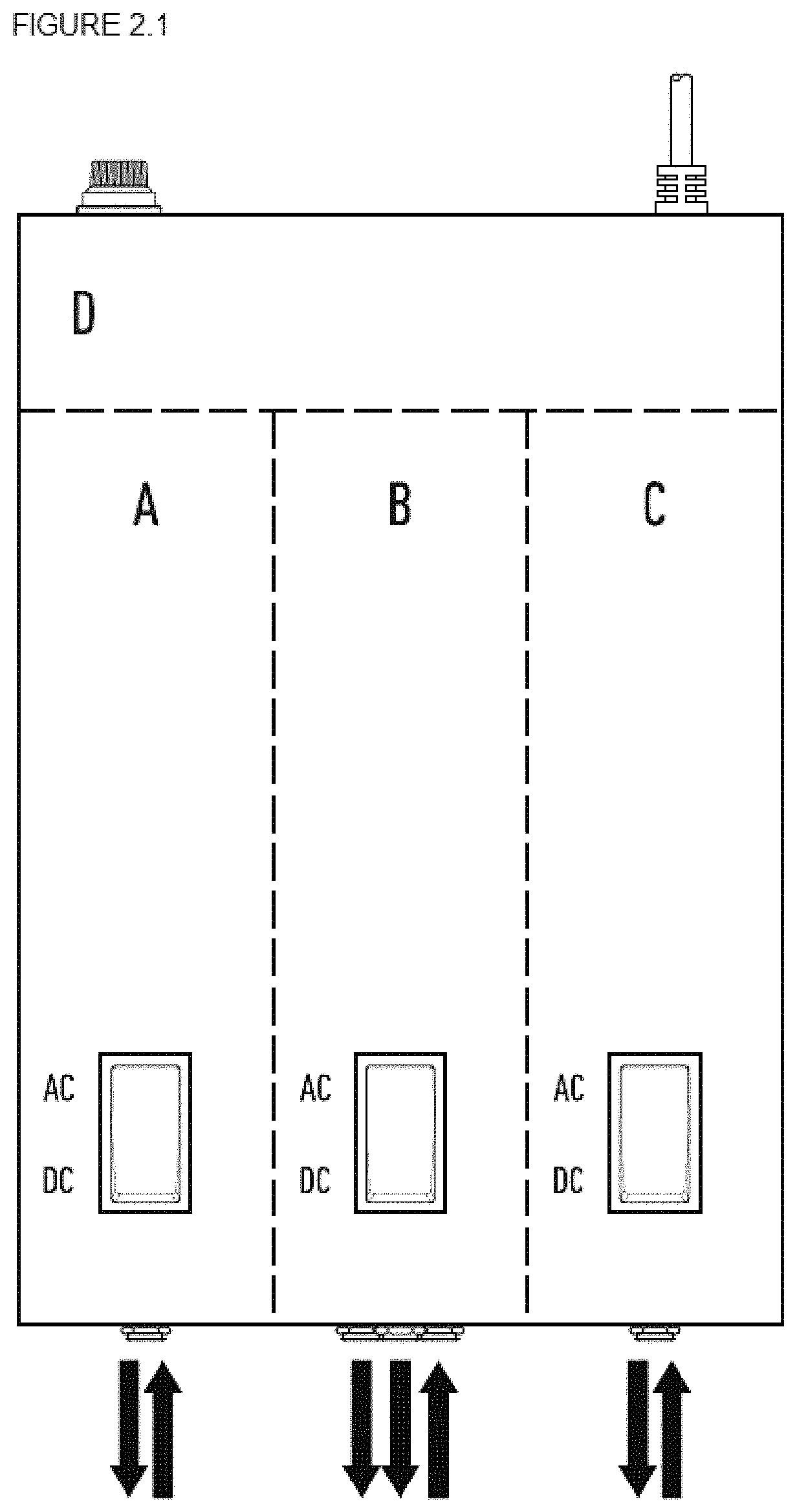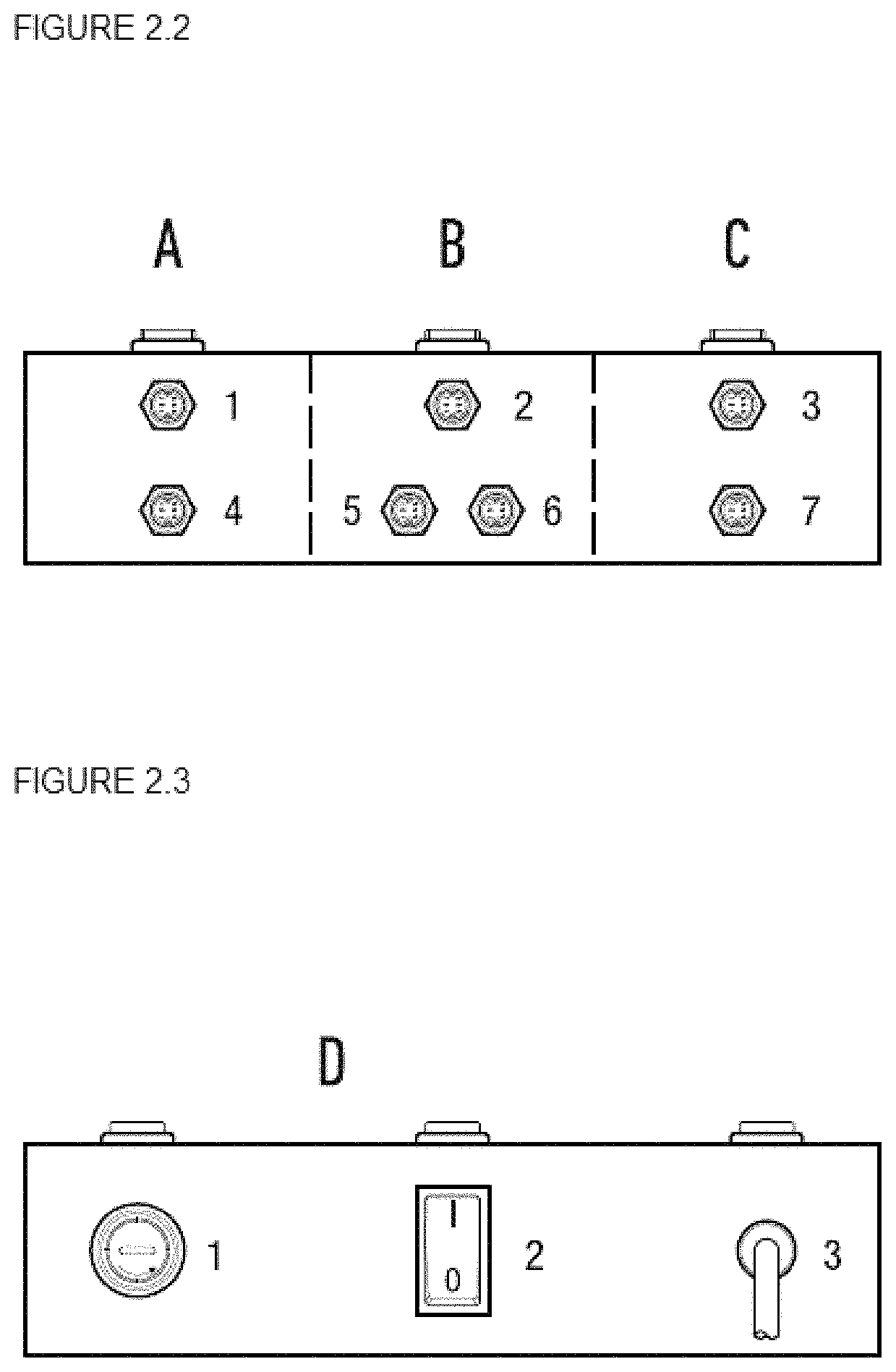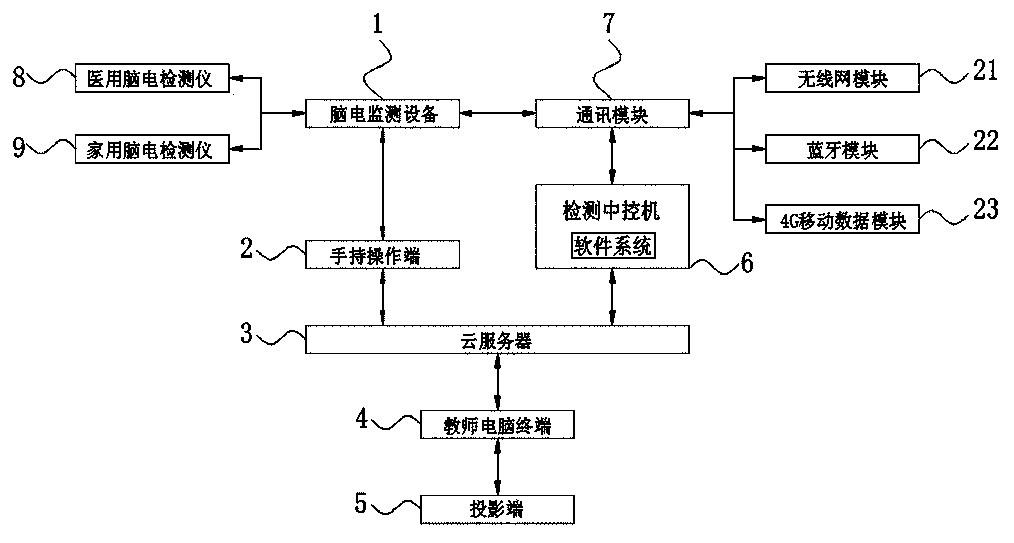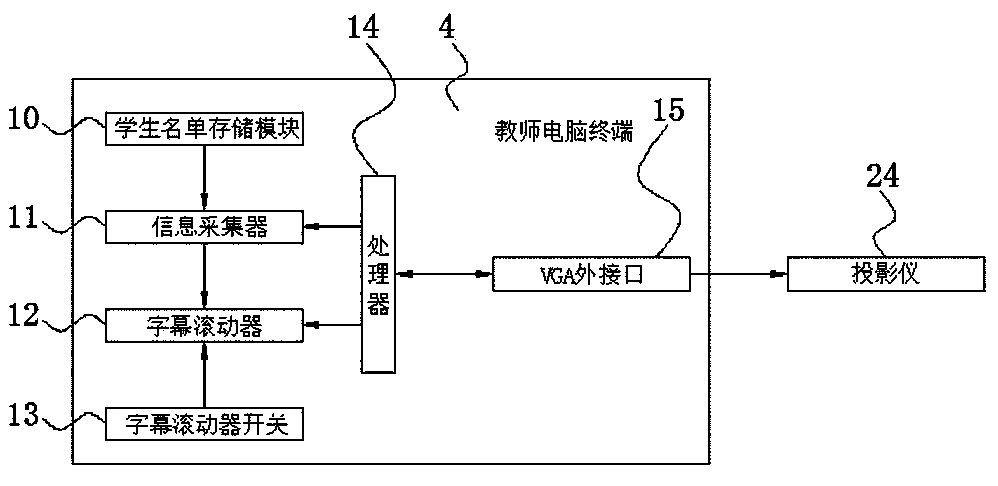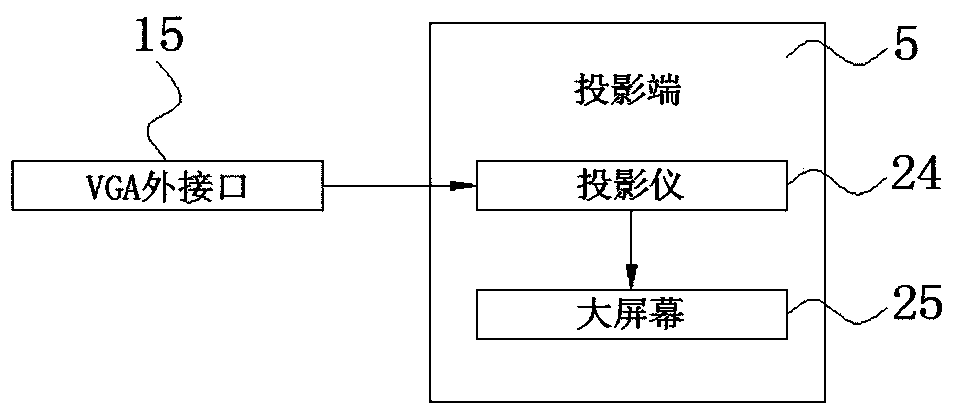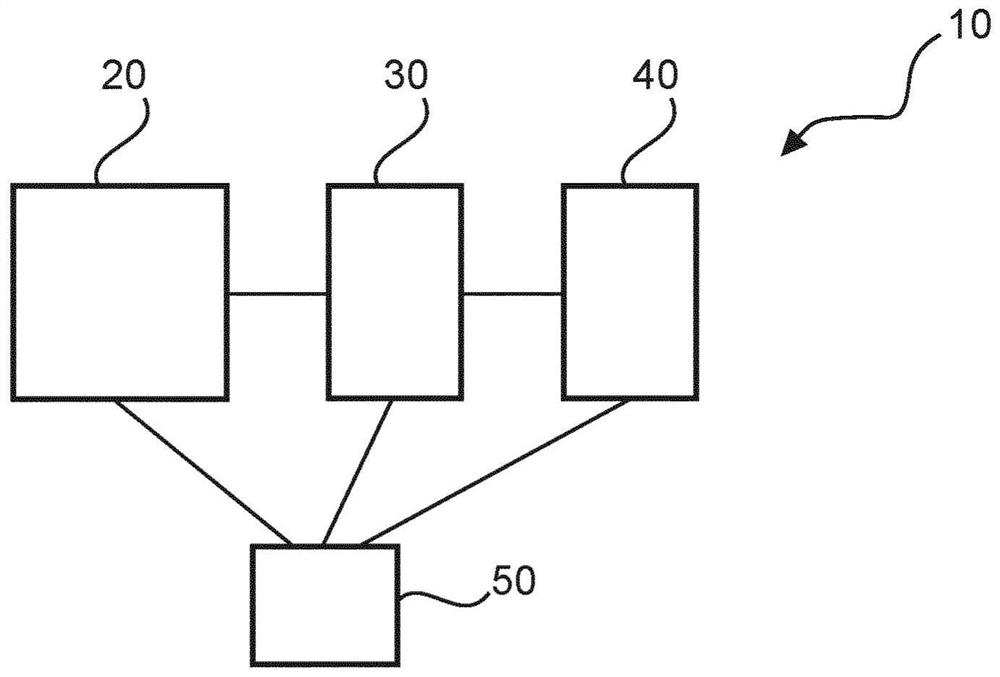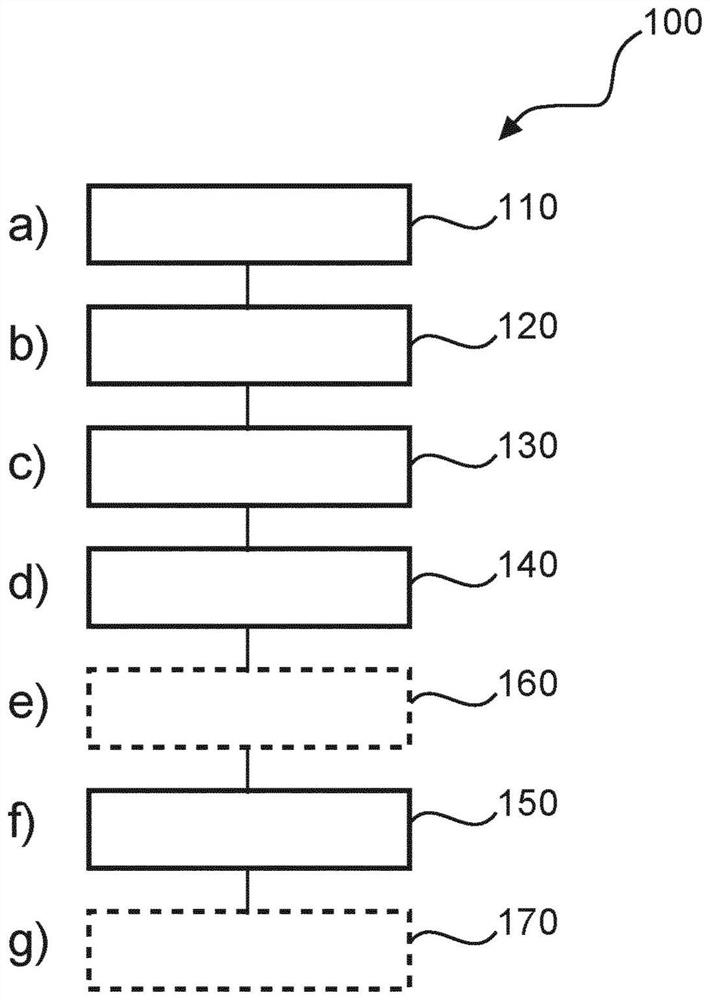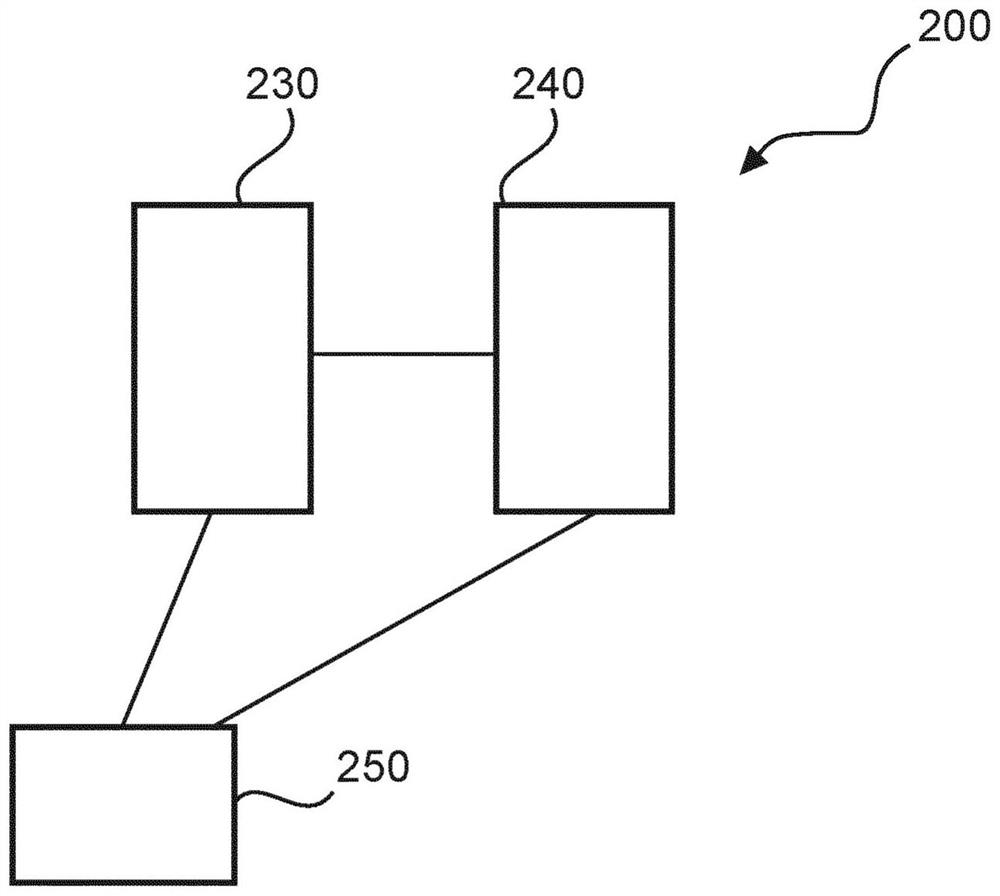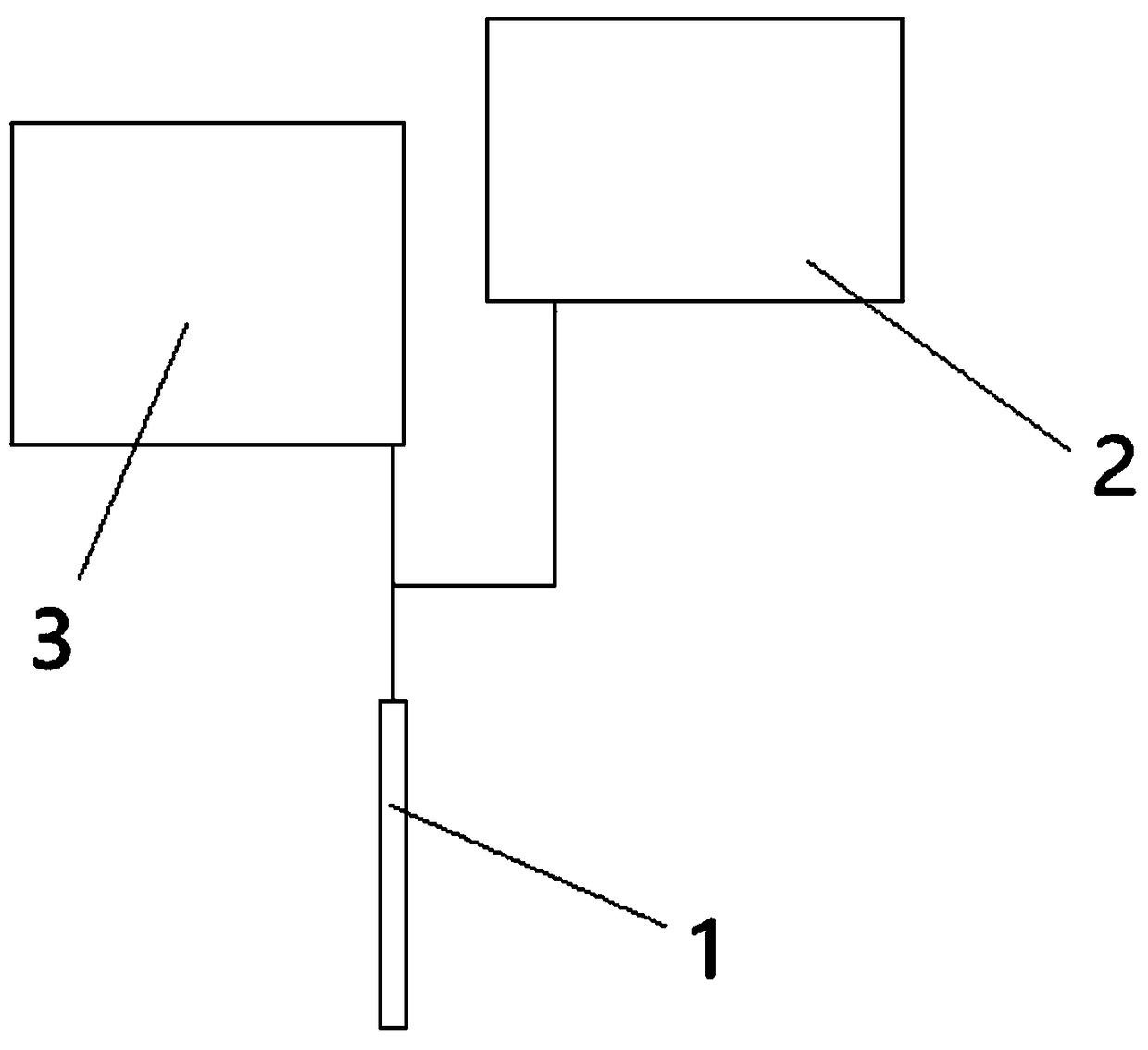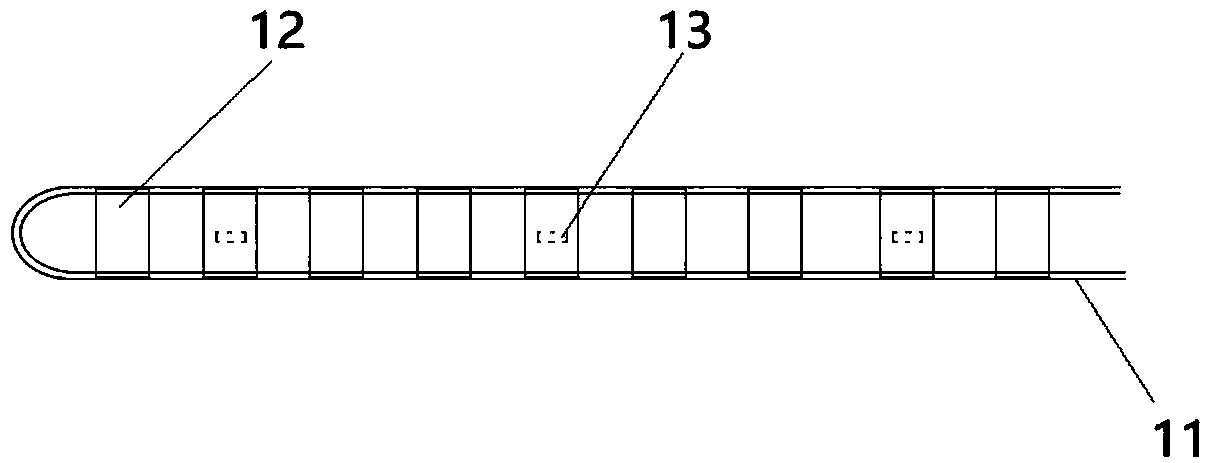Patents
Literature
35 results about "EEG device" patented technology
Efficacy Topic
Property
Owner
Technical Advancement
Application Domain
Technology Topic
Technology Field Word
Patent Country/Region
Patent Type
Patent Status
Application Year
Inventor
Methods and devices for brain activity monitoring supporting mental state development and training
InactiveUS20140316230A1Extensive analysisMitigate such drawbackElectroencephalographyMedical automated diagnosisEEG deviceEeg data
With explosive penetration of portable electronic devices (PEDs) recent focus into consumer EEG devices has been to bring advantages including localized wireless interfacing, portability, and a low-cost high-performance electronics platform to host the processing algorithms to bear. However, most development continues to focus on brain-controlled video games which are nearly identical to those created for earlier, more stationary consumer EEG devices and personal EEG is treated as of a novelty or toy. According to embodiments of the invention the inventors have established new technologies and solutions that address these limitations within the prior art and provide benefits including, but not limited to, global acquisition and storage of acquired EEG data and processed EEG data, development interfaces for expansion and re-analysis of acquired EEG data, integration to other non-EEG derived user data, and long-term user wearability.
Owner:PERSONAL NEURO DEVICES
Methods and devices for brain activity monitoring supporting mental state development and training
InactiveUS9532748B2Mitigate such drawbackElectroencephalographyMedical automated diagnosisEEG deviceEeg data
With explosive penetration of portable electronic devices (PEDs) recent focus into consumer EEG devices has been to bring advantages including localized wireless interfacing, portability, and a low-cost high-performance electronics platform to host the processing algorithms to bear. However, most development continues to focus on brain-controlled video games which are nearly identical to those created for earlier, more stationary consumer EEG devices and personal EEG is treated as of a novelty or toy. According to embodiments of the invention the inventors have established new technologies and solutions that address these limitations within the prior art and provide benefits including, but not limited to, global acquisition and storage of acquired EEG data and processed EEG data, development interfaces for expansion and re-analysis of acquired EEG data, integration to other non-EEG derived user data, and long-term user wearability.
Owner:PERSONAL NEURO DEVICES
Method and system for user authentication and identification using behavioral and emotional association consistency
InactiveUS20050022034A1Digital data processing detailsUser identity/authority verificationEEG deviceBehavioral response
A system and method for determining and authenticating a person's identity by generating a behavioral profile for that person by presenting that person with various stimulus and measuring that person's response characteristics in an enrollment stage. That person's response profile, once generated is stored. When that user subsequently needs to access a secure resource, that user to be authorized is presented with the stimulus that was presented at the time of generating that person's behavioral profile and the person's responses are detected and compared to his / her behavioral profile. If a match is detected, that user is identified. The user's behavioral response may be in the form of signals as detected by sensor means that detects visual or audible emotional cues or as signals resulting from that person's behavior as detected by polygraph or EEG devices.
Owner:IBM CORP
Head-mounted display eeg device
InactiveUS20180103917A1Facilitate detection and monitoring and assessmentReduce in quantityElectroencephalographyElectro-oculographyVisual field lossElectricity
Methods, systems, and devices are disclosed for monitoring electrical signals of the brain. In one aspect, a system for monitoring electrical brain activity associated with visual field of a user includes a sensor unit to acquire electroencephalogram (EEG) signals including a plurality of EEG sensors circumnavigating the head of a user, and a head-mounted frame for docking a personal electronic device over the user's eyes to present visual stimuli, in which the visual stimuli is configured to evoke EEG signals exhibited by the user, in which the assessment indicates if there is a presence of visual field defects in the user's visual field.
Owner:NGOGGLE
Method and system for user authentication and identification using behavioral and emotional association consistency
InactiveUS7249263B2Digital data processing detailsUser identity/authority verificationEEG deviceHuman behavior
A system and method for determining and authenticating a person's identity by generating a behavioral profile for that person by presenting that person with various stimulus and measuring that person's response characteristics in an enrollment stage. That person's response profile, once generated is stored. When that user subsequently needs to access a secure resource, that user to be authorized is presented with the stimulus that was presented at the time of generating that person's behavioral profile and the person's responses are detected and compared to his / her behavioral profile. If a match is detected, that user is identified. The user's behavioral response may be in the form of signals as detected by sensor means that detects visual or audible emotional cues or as signals resulting from that person's behavior as detected by polygraph or EEG devices.
Owner:IBM CORP
Methods and devices for brain activity monitoring supporting mental state development and training
InactiveUS20170071495A1Mitigate such drawbackElectroencephalographyMedical automated diagnosisEEG deviceEeg data
With explosive penetration of portable electronic devices (PEDs) recent focus into consumer EEG devices has been to bring advantages including localized wireless interfacing, portability, and a low-cost high-performance electronics platform to host the processing algorithms to bear. However, most development continues to focus on brain-controlled video games which are nearly identical to those created for earlier, more stationary consumer EEG devices and personal EEG is treated as of a novelty or toy. According to embodiments of the invention the inventors have established new technologies and solutions that address these limitations within the prior art and provide benefits including, but not limited to, global acquisition and storage of acquired EEG data and processed EEG data, development interfaces for expansion and re-analysis of acquired EEG data, integration to other non-EEG derived user data, and long-term user wearability.
Owner:PERSONAL NEURO DEVICES
Hands-free electroencephalography display enablement and unlock method and apparatus
A method for activating an operational mode change of a device. The method includes flashing at least one indicator, wherein each of the at least one indicator flashes at a particular initial frequency. The method also includes receiving electroencephalograph (EEG) data from an EEG device of a user. The method further includes recognizing a portion of the received EEG data to substantially match activation EEG data, wherein the activation EEG data corresponds to predicted or recorded EEG data of the user in observance of one of the at least one indicator flashing at the particular initial frequency. The method additionally includes activating an operational mode change for providing power to a display upon recognizing the portion of the received EEG data to substantially match the activation EEG data.
Owner:ROCKWELL COLLINS INC
Tinnitus Therapy Device
InactiveUS20120203130A1Reduce and suppress tinnitusReduce field strengthEar treatmentElectromyographyEEG deviceMedicine
The invention relates to a device for tinnitus therapy having an EEG device, particularly a Q-EEG device and a head piece having at least one applicator generating a low-frequency electromagnetic field in the frequency range 1-100 Hz and having a field strength below 20 mT.
Owner:BERNHARD ARMIN
User preference and user hierarchy in an electroencephalography based control system
A system including an electroencephalography (EEG) device configured to be positioned on a head of a user. The system also includes a processor in communication with the EEG device, a memory accessible by the processor and instructions stored in the memory for execution by the processor to, in configuration phase, for each respective location among a plurality of locations at a respective time among a plurality of times, obtain an identification (ID) associated with the respective premises at the respective time, determine a control instruction associated with the EEG signals detected from among a plurality of control instructions; store the determined control instruction in association with the obtained premises ID, as a user preference data relative to the respective location; and at a later time, during an operational phase at the respective location, utilize the stored user preference data to communicate a control data signal corresponding to the determined control instruction to a controllable device at the respective premises.
Owner:ABL IP HLDG
Hybrid computer interface system
InactiveUS20180081430A1Easy to useReduce complexityInput/output for user-computer interactionGraph readingEEG devicePhysical medicine and rehabilitation
A hybrid system is used to perform screen object manipulation and or external device control. In a first portion of the hybrid system a single camera is used to provide the tracking of a user's pupil. In a second portion of the hybrid system an EEG device is used to detect brain waves (EEG signals) and use them to control the on-screen display or one or more external devices. The present invention is particularly useful for handicapped and disabled individuals.
Owner:KONZ SEAN WILLIAM
Large-scale epilepsy automatic detection, early warning and treatment intelligent system based on EEG device
InactiveCN109875553AImprove the effect of stimulation therapyGood healing effectDiagnostic recording/measuringSensorsEEG deviceMicrocontroller
The invention discloses a large-scale epilepsy automatic detection, early warning and treatment intelligent system based on an EEG device. The system comprises a single chip microcomputer controller,a transmitter, a stimulator, an epileptic detector, a filter and an amplifier. The epileptic detector, the transmitter, the amplifier and the stimulator are connected by a signal line, the single chipmicrocomputer controller, the transmitter and the amplifier are electrically connected to the filter, and the single chip microcomputer controller is respectively connected with a query module, a comparison module and a history curve module via a wireless network. The single chip microcomputer controller is electrically connected to a signal recorder and the simulator, and the signal recorder includes video signal acquisition and EEG signal acquisition. The stimulator includes an EEG data acquisition device. The EEG data acquisition device is connected to a wireless communication module via the wireless network. The system has various functions, is simple in operation and convenient to produce, meets various needs in use, and is suitable for widespread promotion.
Owner:北京脑陆科技有限公司
Training of an electroencephalography based control system
ActiveUS20190290211A1ElectroencephalographyInput/output for user-computer interactionEEG deviceTraining phase
A system including an electroencephalography (EEG) device configured to be positioned on a head of a user and process detected EEG signals. The system also includes a processor in communication with the EEG device, a memory accessible by the processor and instructions stored in the memory for execution by the processor to generate, based on a control instruction, a control data signal, for control of an operation of a controllable device configured to provide a premises related service in an area of a premises. In the training phase, execution of the instructions configures the processor to determine whether or not that the control operation of the control data signal is consistent with the detected EEG signals based on a trusted input from the user, and upon determination that the control operation is consistent with the detected EEG signals, store, in the memory, recognition data characterizing the detected EEG signals as a predetermined set of signals in association with the control instruction.
Owner:ABL IP HLDG
Shopping decision-making method based on brain-computer interaction
ActiveCN108932511AEasy to browseFine assessmentCharacter and pattern recognitionBuying/selling/leasing transactionsEEG deviceFeature vector
The invention discloses a shopping decision-making method based on brain-computer interaction. The method can determine the user's preference for a commodity on the basis of EEG signal data of the user selecting an item in the e-commerce platform, and is applied to a commodity recommendation function of the e-commerce platform. The method comprises the following steps: acquiring the EEG signal data of the user through an EEG device and recording and storing the EEG signal data; using a band pass filter and the independent component analysis method to preprocess the EEG signal data, and performing extracting to obtain the sample entropy; obtaining a feature vector based on the sample entropy, using the Naive Bayes method to identify different emotions, and setting the excitement level for each of different emotions; using the average energy ratio method to extract features, and performing normalization to obtain a concentration value; and finally obtaining the matching degree when the user browses a corresponding commodity according to the excitement level and the concentration value, setting a threshold Th, comparing the matching degree and the threshold Th, and recommending the corresponding commodity to the user according to the comparison result. The method improves the shopping experience and shopping efficiency of the user, and facilitates selection.
Owner:NANJING UNIV OF POSTS & TELECOMM
Electroencephalography control of controllable device
ActiveUS10551921B2ElectroencephalographyInput/output for user-computer interactionEEG devicePhysical medicine and rehabilitation
A system including a controllable device configured to provide a premises related service in an area of a premises. The system includes an electroencephalography (EEG) device configured to be positioned with respect to a head of a user and process signals detected in real-time. The system also includes a processor in communication with the EEG device, a memory accessible by the processor and instructions stored in the memory for execution by the processor. A data is stored in the memory that associates each of a plurality of predetermined sets of signals from the brain detected via the EEG device with at least one control instruction. The execution of the instructions configures the processor to using the stored data, analyze the real-time detected signals to determine that the real-time detected signals correspond to one of the plurality of predetermined set of signals associated with the one control instruction and generate a control data signal based on the one control instruction.
Owner:ABL IP HLDG
Device for measuring and/or stimulating brain activity
ActiveUS20200060571A1High activityShorten operation timeElectroencephalographySensorsEEG deviceCerebral activity
A device for measuring and / or stimulating a brain activity, preferably an EEG device, comprising means for transmitting and / or detecting physiological signals produced by the brain of an individual, and a support for the transmission and / or detection means, wherein the support is configured to extend over the top of the individual's head, the support comprising means for removably attaching to an accessory intended to be worn by the individual, on his or her head, such as an audio headset, the support being configured such that, when the device is worn by the individual, the means for transmitting and / or detecting physiological signals are held in substantially close contact with the individual's head by the accessory.
Owner:CONSCIOUS LABS SAS
In-ear eeg device and brain-computer interfaces
An in-ear EEG device is provided. The in-ear EEG device comprises an over-ear support arm coupled to an enclosure, and an earpiece coupled to the enclosure. The enclosure has a power switch, an analog output, a power input, and a processor. The processor is configured to receive EEG data and generate output data for the analog output. The earpiece collects the EEG data and transmits the EEG data to the processor.
Owner:HOLLAND BLOORVIEW KIDS REHABILITATION HOSPITAL
Conscious disturbancecerebral cortex status detection system and method
ActiveCN107616794ALow clinical requirementsReduce computing costDiagnostic recording/measuringSensorsEEG deviceCapis
Theinvention discloses a conscious disturbancecerebral cortex status detection system, which comprises a brain response signalsynchronous collection module, a response signal noise processing module and a cerebral cortex status detection algorithmmodule. The response signalsynchronous collection moduleincludesatranscranial magnetic stimulationand magnetic-compatible EEG device, wherein an EEG capis a 64-channel high-density EEG cap,a transcranial magnetic stimulation coil is an 8-shaped coil. During implementation, the coil is arranged at the dorsolateral prefrontal areaof the left side of the patient(position of F3 electrode on the 10-20 EEG system) in a direction in which the magnetic field is perpendicular to the scalp. The conscious disturbancecerebral cortex status detection system and method fill the void of the conscious disturbancecerebral cortex status detection system and method. Compared with the current clinical research methods, the conscious disturbancecerebral cortex status detection system and method are cost-effective, convenient, simple in calculation, very applicable and suitable for clinical promotion.
Owner:BEIJING NORMAL UNIVERSITY
Application (APP) for brain monitoring and intervention through cooperation with electroencephalogram (EEG) device
PendingCN110575165AGuaranteed Automatic CollectionReal-time display of sleep interventionPhysical therapies and activitiesSubstation equipmentEEG deviceBluetooth
The invention discloses an application (APP) for brain monitoring and intervention through cooperation with an electroencephalogram (EEG) device. The APP includes a headgear, a mobile phone, a cloud server, and a brain monitoring APP, EEG electrodes are mounted on both sides of the top of the inside of the headgear by bolts, reference electrodes are mounted on both sides of the inside of the headgear, a processor A and a Bluetooth module A are mounted on the top of the headgear through mounting boxes, the processor A is electrically connected with the Bluetooth module A, the reference electrodes, and the EEG electrodes, the mobile phone is provided with a Bluetooth module B, a processor B, a network controller, a brain monitoring APP, and a camera, and the brain monitoring APP is providedwith an image recognition system and a data analysis module. The head-mounted EEG device is used for reading brain waves of a user in real time, data screening and algorithms are used for obtaining the true EEG state of the user to judge the emotions and attention of the user and the physical state of the user before and during sleep, and thus accuracy, instantaneity, and practicality are more guaranteed.
Owner:北京脑陆科技有限公司
Wearable electroencephalography device and methods of use thereof
The invention provided herein relates to a wearable medical device and methods of use thereof for monitoring brain signals by electroencephalography technology in critically ill subjects suspected of having abnormal brain wave patterns including but not limited to electrographic seizures, spike and waves, periodic discharges and rhythmic delta activity.
Owner:MUNIZ CARLOS FEDERICO
Wearable electroencephalography device and methods of use thereof
The invention provided herein relates to a wearable medical device and methods of use thereof for monitoring brain signals by electroencephalography technology in critically ill subjects suspected of having abnormal brain wave patterns including but not limited to electrographic seizures, spike and waves, periodic discharges and rhythmic delta activity.
Owner:MUNIZ CARLOS FEDERICO
Training of an electroencephalography based control system
ActiveUS10682099B2Input/output for user-computer interactionElectroencephalographyEEG deviceTraining phase
A system including an electroencephalography (EEG) device configured to be positioned on a head of a user and process detected EEG signals. The system also includes a processor in communication with the EEG device, a memory accessible by the processor and instructions stored in the memory for execution by the processor to generate, based on a control instruction, a control data signal, for control of an operation of a controllable device configured to provide a premises related service in an area of a premises. In the training phase, execution of the instructions configures the processor to determine whether or not that the control operation of the control data signal is consistent with the detected EEG signals based on a trusted input from the user, and upon determination that the control operation is consistent with the detected EEG signals, store, in the memory, recognition data characterizing the detected EEG signals as a predetermined set of signals in association with the control instruction.
Owner:ABL IP HLDG
Modular device and method for analog electroencephalography synchronization with oscillating electrical light-related events, and motor behaviors
ActiveUS20190104960A1Easily offsetSafe and low-costElectroencephalographyMental therapiesEEG deviceVocal response
This invention relates to a device that is intended to synchronize electroencephalograms (EEGs), recorded by any digital equipment, to physical events (sensorial, visual or auditory stimuli) and behavioral events (motor response, vocal response), in order to allow EEG signal mediation for the purpose of visualizing Evoked Potentials or Event-Related Potentials, which are important research subjects in the neurosciences and clinical investigations into neurological and psychiatric pathologies. This invention allows any digital EEG device to be transformed into equipment that can record Evoked Potentials. This invention also provides a method for analog synchronization of EEGs with oscillating electric light-related events and motor behaviors.
Owner:FUNDACAO OSWALDO CRUZ FIOCRUZ
EEG equipment, system, computer equipment and storage medium
ActiveCN112445343BImprove readabilityHigh acquisition frequencyInput/output for user-computer interactionGraph readingEEG deviceHuman body
The disclosure relates to the field of electronic medical technology, and provides an EEG device, a system, a computer device and a storage medium. The EEG equipment includes: a stimulation unit for generating stimulation signals; an acquisition unit for collecting physiological electrical signals of the human brain; wherein the acquisition unit for collecting physiological electrical signals of the human brain includes: When the stimulation signal is mentioned above, the collection unit collects the physiological electrical signal of the human brain according to the first collection parameter; during the process of applying the stimulation signal to the human body by the stimulation unit, the collection unit collects the physiological electrical signal of the human brain according to the second collection parameter; wherein, The first collection parameter is different from the second collection parameter. With the technical solution of the present disclosure, the acquisition unit uses different acquisition parameters to acquire brain physiological electrical signals during the stimulation process and the non-stimulation process, so as to reduce the influence of aliasing noise and signal saturation on the acquisition signal during the stimulation process, and then Effective EEG data can be collected.
Owner:NEURACLE TECH CHANGZHOU CO LTD
User preference and user hierarchy in an electroencephalography based control system
A system including an electroencephalography (EEG) device configured to be positioned on a head of a user. The system also includes a processor in communication with the EEG device, a memory accessible by the processor and instructions stored in the memory for execution by the processor to, in configuration phase, for each respective location among a plurality of locations at a respective time among a plurality of times, obtain an identification (ID) associated with the respective premises at the respective time, determine a control instruction associated with the EEG signals detected from among a plurality of control instructions; store the determined control instruction in association with the obtained premises ID, as a user preference data relative to the respective location; and at a later time, during an operational phase at the respective location, utilize the stored user preference data to communicate a control data signal corresponding to the determined control instruction to a controllable device at the respective premises.
Owner:ABL IP HLDG
System for functional magnetic resonance image data acquisition
PendingUS20220317215A1Simple technologyEasy to analyzeDiagnostic recording/measuringSensorsEEG deviceEeg data
The present invention relates to a system (10) for functional magnetic resonance image data acquisition. The system comprises an input unit (20), a magnetic resonance imaging “MRI” device (30), an electroencephalography “EEG” data acquisition device (40), and a processing unit (50). The input unit is configured to provide task based information to a patient, wherein the task based information extends over a period of time. The MRI device is configured to acquire functional magnetic resonance imaging “fMRI” data relating to brain activity of the patient, wherein the fMRI data extends over the period of time. The EEG device is configured to acquire EEG data relating to electrical activity of the brain of the patient, wherein the EEG data extends over the period of time. The processing unit is configured to utilize the task based information that extends over the period of time and the EEG data that extends over the period of time to determine at least one first sub-set period of time over the period of time. The processing unit is configured to determine an action associated with acquisition of the fMRI data over the at least one first sub-set period of time.
Owner:KONINKLJIJKE PHILIPS NV
Video content evaluation method and video content evaluation system
ActiveCN112637688BThe result is objectiveWith real-time monitoringTelevision systemsSelective content distributionEEG deviceEvaluation result
Owner:北京意图科技有限公司
Modular device and method for analog electroencephalography synchronization with oscillating electrical light-related events, and motor behaviors
This invention relates to a device that is intended to synchronize electroencephalograms (EEGs), recorded by any digital equipment, to physical events (sensorial, visual or auditory stimuli) and behavioral events (motor response, vocal response), in order to allow EEG signal mediation for the purpose of visualizing Evoked Potentials or Event-Related Potentials, which are important research subjects in the neurosciences and clinical investigations into neurological and psychiatric pathologies. This invention allows any digital EEG device to be transformed into equipment that can record Evoked Potentials. This invention also provides a method for analog synchronization of EEGs with oscillating electric light-related events and motor behaviors.
Owner:FUNDACAO OSWALDO CRUZ FIOCRUZ
Educational cognitive system based on EEG device
The invention discloses an educational cognitive system based on an electroencephalography device. The system includes an electroencephalography monitoring device, a hand-held operation terminal, a cloud server, a teacher computer terminal, a projection terminal, a detection center computer and a communication module. The electroencephalography monitoring device is connected with the cloud serverthrough the hand-held operation terminal, the electroencephalography monitoring device is connected with the detection center computer through the communication module, the cloud server is connected with the projection terminal through the teacher computer terminal, the communication module includes a wireless network module, a Bluetooth module and a 4G mobile data module, the electroencephalography monitoring device includes a medical electroencephalography detector and a domestic electroencephalography detector, and the electroencephalography monitoring device includes a master control module, a central processor, a data analysis module, a data acquisition terminal and an input module. According to the educational cognitive system based on the electroencephalography device, the design isreasonable, the system is convenient to use, the teaching effect is easily improved, and the enthusiasm of students is effectively aroused.
Owner:CHENGDU TECHCAL UNIV
System for functional magnetic resonance image data acquisition
Owner:KONINKLJIJKE PHILIPS NV
Electroencephalogram device with radio frequency thermocoagulation
PendingCN109171717ATemperature can be monitoredThe operation site is accurateDiagnostic recording/measuringSensorsEEG devicePower flow
The invention relates to an electroencephalograph device with radio frequency thermocoagulation, comprising an electrode and a current generating device. The electrode comprises a tube body, at leastsix ring-shaped metal contacts arranged in parallel on the outer wall of the tube body, and a temperature sensor arranged in the tube body at positions corresponding to the 3n +2 ring-shaped metal contacts from the end of the tube body. The current generating device is configured to receive the temperature value monitored by the temperature sensor and to control the RF thermocondensation current to be formed between the ring metal contact corresponding to the temperature sensor and the one or two ring metal contacts closest to the ring metal contact or to be formed respectively. The RF thermocondensation current is generated by the RF thermocondensation current. The EEG device provided by the invention is provided with temperature sensors at positions corresponding to the 3n+2 ring-shapedmetal contacts, and a plurality of temperature sensors are arranged, so that the electrodes can monitor the temperatures of a plurality of parts, thereby performing radio frequency ablation accordingto the temperatures, and the performing parts are accurate.
Owner:CHANGZHOU RUISHENAN MEDICAL DEVICES
Features
- R&D
- Intellectual Property
- Life Sciences
- Materials
- Tech Scout
Why Patsnap Eureka
- Unparalleled Data Quality
- Higher Quality Content
- 60% Fewer Hallucinations
Social media
Patsnap Eureka Blog
Learn More Browse by: Latest US Patents, China's latest patents, Technical Efficacy Thesaurus, Application Domain, Technology Topic, Popular Technical Reports.
© 2025 PatSnap. All rights reserved.Legal|Privacy policy|Modern Slavery Act Transparency Statement|Sitemap|About US| Contact US: help@patsnap.com
